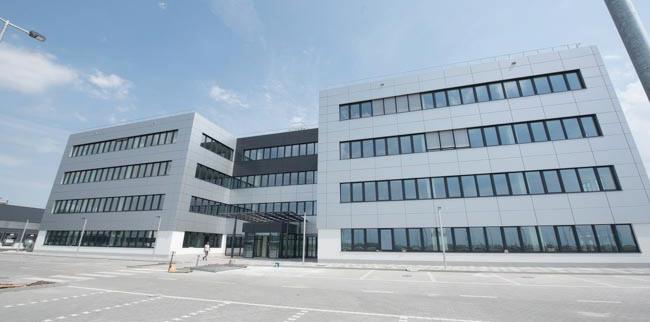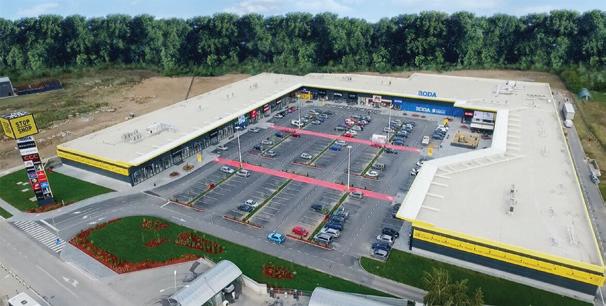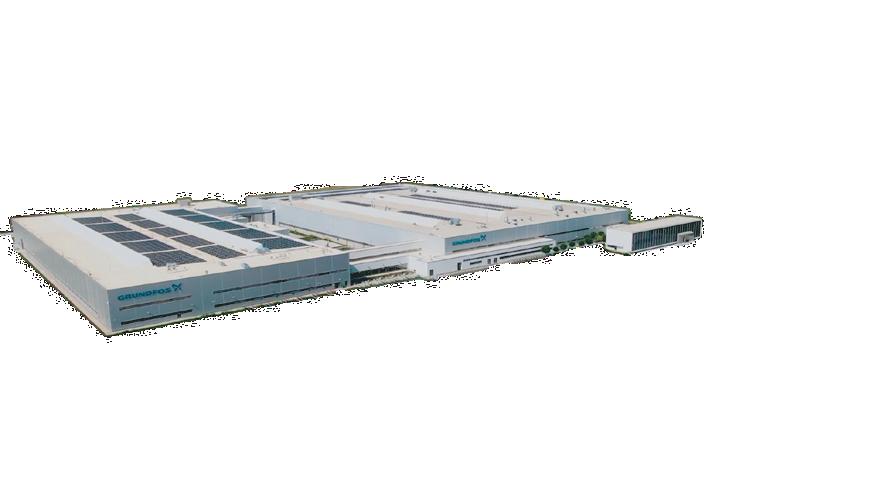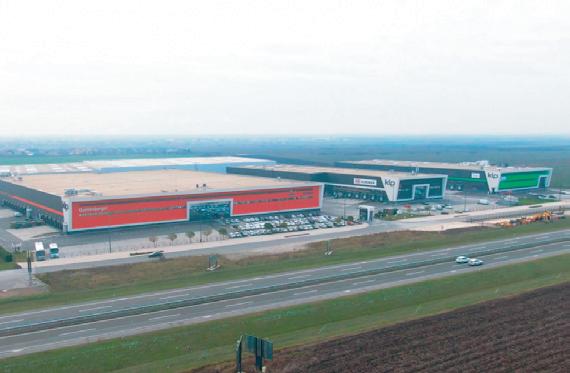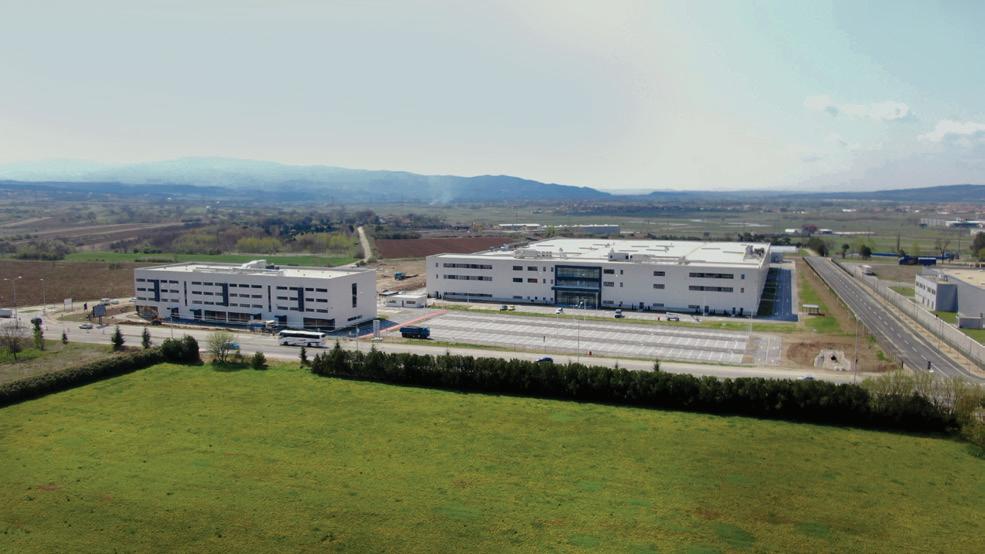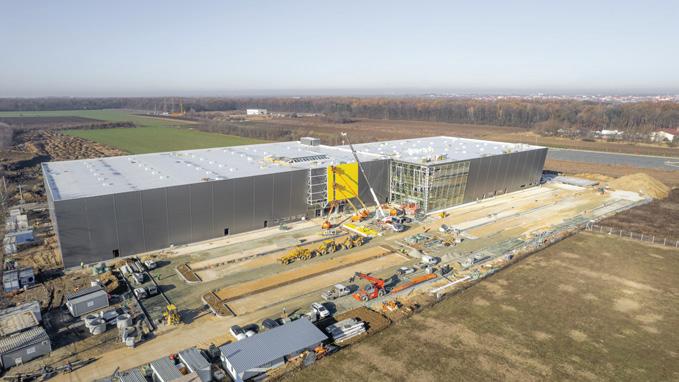







Through its advocacy for regulatory reforms and efforts to boost economic competitiveness, as well as its focus on public-private dialogue and sustainability, the FIC has been pivotal in shaping Serbia’s dynamic economic environment
The Foreign Investors Council (FIC) in Serbia has been a key organisation in fostering a more favourable business environment since its 2002 inception. The FIC has achieved a number of important milestones over the years, which have contributed to the overall advancement of Serbia’s business landscape, its economic growth and improved standard of living for citizens.
The FIC is recognised for its consistent advocacy of regulatory reforms, showcased in its annual White Book – representing a comprehensive report that outlines key challenges in Serbia’s business environment and recommends actionable reforms. This platform serves as a valuable reference for policymakers, providing insights into the perspectives of foreign investors and helping them prioritise essential changes.
The FIC’s efforts have brought improvements across several sectors, including tax legislation, labour laws, digital transformation, real estate, combating illicit trade, food safety and the broader legal framework. More recently, it has also positively influenced the financial sector, tourism and hospitality, as well as the healthcare and pharmaceutical industries. These initiatives have been crucial to Serbia remaining competitive in an increasingly technology-driven global market, spearheading innovative changes to the regional financial sector and advancing the introduction of new therapies in healthcare.
The ability to facilitate constructive dialogue between the public and private sectors has been a cornerstone of the FIC’s success. Through continuous communication and cooperation with government in-
stitutions, local businesses and international stakeholders, the FIC has fostered a collaborative environment in which issues can be addressed more effectively.
Furthermore, the FIC is the only association in Serbia that brings together bilateral chambers of commerce, representing the broader business community with the unified goal of improving the business environment and investment opportunities for the benefit of all citizens.
As Serbia continues to develop, the FIC’s continuing efforts will remain vital to ensuring that Serbia remains a competitive and attractive destination for both foreign and domestic investments
Importantly, the FIC has been a key advocate for the harmonising of Serbia’s laws with European Union legislation, thereby further facilitating Serbia’s integration into the European economic framework.
Beyond economic contributions, the FIC has also been a leader in promoting corporate social responsibility and sustainability initiatives in Serbia. Many FIC member companies have implemented CSR programmes that focus on environmental protection, community development and ethical business practices. These initiatives not only enhance the reputation of foreign companies operating in Serbia, but also set a standard for local businesses to follow.


Shaping Serbia’s economic environment
EDITOR IN CHIEF
Tanja Jakobi
EDITORIAL MANAGER
Neda Lukić n.lukic@aim.rs
DESIGN
Slađan Radosavljeć
Zoran Perović design@aim.rs
PHOTOS
Zoran Petrović
COPY EDITOR
Mark Pullen
PROJECT MANAGERS
Biljana Dević b.devic@aim.rs
Mihailo Čučković m.cuckovic@aim.rs
Jelena Petrović j.petrovic@aim.rs
OFFICE MANAGER
Svetlana Petrović s.petrovic@aim.rs
SPECIAL THANKS TO Aleksandar Ljubić FIC Executive Director
Renata Pindžo FIC Communications Director
Koviljka Nikolić FIC Office Manager
Tamara Kapor FIC Regulatory Associate
FINANCE
Dragana Skrobonja finance@aim.rs
DIRECTOR Ana Novčić a.novcic@aim.rs
PUBLISHER Ivan Novčić i.novcic@aim.rs
PRINTING
Rotografika d.o.o. Segedinski put 72, Subotica FIC 2024/25
Published by: alliance international media Resavska 1/III, 11111 Belgrade 17, PAK 126909, Serbia
Phone: +(381 11) 2450 508 E-mail: office@aim.rs; office@cordmagazine.com www.aim.rs; www.cordmagazine.com
ISSN: 2560-4465
All rights reserved alliance international media 2024
The views expressed in this publication are those of the presenter; they do not necessary reflect the view of publications published by alliance international media
THIS PUBLICATION IS FREE OF CHARGE
04 COMMENT
RESHAPING SERBIA’S ECONOMIC LANDSCAPE
08 MIKE MICHEL
FIC President (Yettel CEO) WINNING FORMULA OF REFORM AND INVESTMENT
12 JELENA BEGOVIĆ
Serbian Minister of Science, Technological Development and Innovation WE HAVE GREAT AMBITIONS
16 DEJAN RISTIĆ
Serbian Minister of Information and Telecommunications DIGITALISATION REMAINS OUR PRIORITY
20 DUBRAVKA
ĐEDOVIĆ HANDANOVIĆ
Serbian Minister of Mining and Energy REFORMS WITH PROFOUND RESULTS
24 DR ALEKSANDAR MARTINOVIĆ
Serbian Minister of Agriculture, Forestry and Water Management WE HAVE BOTH THE KNOWHOW AND THE ABILITY
27 MARJANA DAVIDOVIĆ
COUNTRY MANAGER of Nestlé Serbia, Montenegro and North Macedonia SERBIA’S EXPORT POWER IS GROWING
28 JORGOVANKA TABAKOVIĆ
Governor of the National Bank of Serbia POSITIVE TRAJECTORY SHOULD CONTINUE
32 DRAGANA MARKOVIĆ
Director of the Tax Administration of the Republic of Serbia COURAGE AND TENACITY
35 MIRJANA RADIĆ
Inos Balkan Finance Director COMMITTED TO BUSINESS EXCELLENCE
36 AMBASSADOR EMANUELE GIAUFRET
Ambassador and Head of the EU Delegation to Serbia EU REAFFIRMS ENLARGEMENT COMMITMENT
39 MILJAN MILEVIĆ
Managing Director, SGS INTEGRITY IS THE FOUNDATION
40 VLADO KAPOR
Partner, Nikčević Kapor Law Office FOREIGN INVESTORS TRUST OUR LAWYERS

42 NICOLA PONTARA World Bank Country Manager for Serbia CLEAR RECIPE FOR SUCCESS
46 ALESSANDRO BRAGONZI
Outgoing European Investment Bank Head of Regional Representation for the Western Balkans ENCOURAGING PROGRESS ON DECARBONISATION
49 DEJAN VUKOTIĆ
Director of the Export Credit and Insurance Agency of the Republic of Serbia (AOFI) TWO DECADES OF SUPPORTING SERBIAN EXPORTS
50 MATTEO COLANGELI
EBRD Regional Director for the Western Balkans SERBIA IS A GOOD PARTNER
53 DATALAB.RS PANTHEON GRANULES FOR THE MODERN MANAGER
54 THE INTERNATIONAL SCHOOL OF BELGRADE (ISB) FOSTERING WELLNESS
56 ANA GOVEDARICA
FIC Vice President and Spokesperson (Roche General Manager) INVESTING IN INNOVATION PAYS OFF
58 ALEKSANDAR LJUBIĆ FIC Executive Director FOUNDATIONS OF EXPERIENCE AND KNOWHOW
60 DRAGANA STIKIĆ
Co-President of the FIC Anti-Illicit Trade & Food Committee (Nestlé Adriatic S d.o.o.)
CONSTRUCTIVE COOPERATION AMONG ALL PARTICIPANTS ESSENTIAL
61 DRAGAN PENEZIĆ
Co-President of the FIC Anti-Illicit Trade & Food Committee (British American Tobacco) WORK IN THE FIELD REQUIRES IMPROVEMENT
62 DANILO MRVALJEVIĆ
Co-President of the FIC Financial Services Committee (Banca Intesa a.d. Belgrade) SUSTAINABLE FINANCING IS CRUCIAL FOR SERBIA
63 DUŠAN LALIĆ
Co-president of the FIC Financial Services Committee (Generali Insurance Srbija) MORE ROOM REQUIRED FOR DIGITALISATION
64 MILENA JAKŠIĆ PAPAC
President of the FIC Human Resources Committee (Karanović & Partners o.a.d.) NEW TIMES CALL FOR LEGISLATIVE CHANGES
65 MARIO KIJANOVIĆ
President of the FIC Infrastructure and Construction Committee (SOG Law Firm in cooperation with Kinstellar) DECARBONISATION IS IMPORTANT FOR EVERYONE
66 DANILO MIJUŠKOVIĆ
President of the FIC Pharma Industry Committee (Merck) PARTNERS FOR TECHNOLOGICAL CHANGE
67 DRAGAN DRAČA
President of the FIC Taxation Committee (PricewaterhouseCoopers) TAX REGULATIONS ARE KEY TO STRENGTHENING SUSTAINABILITY
68 ZAFIRIS LAMPADARIDIS
President of the FIC Tourism & Hospitality Committee (Hyatt Regency Belgrade) GREAT POTENTIAL THAT MUST BE NURTURED
69 DANIEL ŠUŠNJAR
President of the FIC Telecommunications & Digital Economy Committee (Yettel d.o.o.) YEAR OF DYNAMIC PROGRESS
70 NEBOJŠA LUKAČ
President of the FIC Legal Committee (Independent attorney at law, in cooperation with PwC) EXAMPLE AND SUPPORT FOR DOMESTIC COMPANIES
72
KEY MESSAGES
78 REGISTER


Serbia is an outstanding investment destination. The continuation of structural reforms and the harmonising of national policies with those of the European Union can only increase the competitiveness and attractiveness of the country for further investments
Despite major turmoil on the global market having led many companies to be more cautious in running their businesses, Serbia is still a great place to invest, says FIC President and Yettel CEO Mike Michel.
We dedicated this interview to discussing the opportunities that lie ahead for Serbia, but also to the initiatives being launched by the FIC in an effort to support Serbian society in generating even more robust economic growth.
In light of the renewed interest in the EU enlargement process and the opportunities presented by the European Growth Plan for the Western Balkans, what do you think are the most important steps the Serbian government should take to catch up and capitalise on these opportunities?
The years 2023 and 2024 have been extremely successful for us, during which we’ve achieved excellent cooperation with numerous institutions and addressed important topics like ESG, transfer prices, the further development of the telecommunications sector and green financing. There is a lot ahead of us, while the crowning of our work, as always, will be the launch of the White Book
— That would certainly be further economic integration with the EU market. The Western Balkan countries, Serbia included, should keep working on structural reforms and aligning their policies with the EU’s in order to boost competitiveness and secure a place in supply chains. The Growth Plan, through a combination of reforms and investment, can yield quick and tangible results, such as the opening of the regional market, accelerating business growth and providing access to Eurozone payment systems and digital markets, to mention just a few. The Western Balkan countries will have access to six billion euros in loans and grants directly allocated to their national budgets. This is a unique and fantastic opportunity, and I believe strongly in the capacity of Western Balkan countries to utilise it to accelerate strategic investments and improve the business climate.
If you had to compile a list of priorities, what would you outline as the most important game-changers for driving growth and attracting FDI in Serbia?
— Serbia is a great place to invest, a regional leader, attracting around 4.5 billion dollars in foreign direct investment in 2023 alone. I expect this figure to increase in 2024. However, recent events, especially in Europe, have disrupted supply chains and impacted the fragile ecosystem, such as the investment environment. Foreign investors continue investing, but with caution. For Serbia to achieve a steady GDP growth rate of five per cent, we need a sustainable 25 per cent investment share in GDP. Moreover, to have steady GDP growth of five per cent, we need a significantly higher share of domestic investment, and that is something the state should focus on. We must push for both foreign and domestic investments to maintain the ecosystem and more domestic private investments are needed to close the gap.
As motors of the Serbian economy, how can FIC members contribute to this effort?
— Thank you for recognising us as we like to see ourselves: as the driving engine of the Serbian economy, with 122 member companies, more than €44 billion in investments, and more than 115,000 direct employees. We see FIC as the long-term and reliable partner to the Government and society at large, with multiple positive roles in Serbia: bringing in new investments and creating jobs; introducing modern technologies, facilitating innovation; promoting ethical business conduct and involving local SMEs in our value chains and integrating them into global markets. We all need to work together to build a better environment with a functional state, more competitive businesses and a higher standard of living for citizens. The FIC offers its knowledge and experience in navigating economic transition, and we are ready to leverage this for the greater benefit of the Serbian market.
What are the key opportunities and challenges for foreign investors in Serbia’s current economic climate?

The Growth Plan for the Western Balkans is a unique and fantastic opportunity, and I believe strongly in the capacity of Western Balkan countries to utilise it
In order for us to have steady GDP growth of five per cent, we need a higher share of domestic investment, and that is something the state should focus on
There can never be too much dialogue. It is the only way to ensure that new and current laws are implementable and conducive to growth
— I like to look at challenges as opportunities – not just when talking about the FIC, but in general. According to the NBS, inflation in May 2024 was back in the target corridor after a certain period, and it is necessary to continue that trend. We also need to streamline fiscal burdens to incentivise investments and stimulate economic growth. It is essential to trim public expenditure and finalise the restructuring of infrastructure companies, particularly in the energy sector, in order to effectively manage the fiscal deficit and public debt.
The FIC has hosted impactful discussions on key issues in financial services, telecommunications and agriculture over recent years. What factors have contributed to their success?
— I would say, firstly, the willingness for open dialogue on both sides: the business sector and investors, on one side, and the Government on the other. Back in 2017, the White Book Task Force was formed with the idea of improving the implementation of recommendations. We look forward to continuing to use the White Book Task Force as an institutional mechanism for ongoing and successful dialogue, while the White Book remains our greatest achievement, and the most frequently updated guide on how the business environment in Serbia can be improved.
In 2023, and now in 2024, we have not just continued our activities, but intensified them. We have established excellent cooperation with the National Bank of Serbia and also raised awareness of ESG and transfer pricing. In 2024, the FIC and EBRD organised the second conference on financial services with a focus on green and digital, and we had a successful event called FIC insight into the telecommunications sector, at which we discussed the importance and impact of continuous investment in the mobile telecommunications sector on the quality of services for users. Several more important topics await us until the end of the year, including, of course, our key event in the launch of the White Book 2024.
How do these new forms complement the White Book and the Task Force as an institutional mechanism for continuous and successful dialogue between the Government of Serbia and the business community? — They complement existing efforts to a great extent, as there can never be too much dialogue. This is the only way to ensure that new and current laws are implementable and conducive to growth.
What would you highlight as the most important changes benefiting the business community and society resulting from work within the White Book Task Force?

The FIC is a long-term and reliable partner to the Government of the Republic of Serbia that’s ready to make its knowledge and expertise available for the benefit of Serbian society
— In the first trimester of 2024, the Serbian economy showed positive developments, indicating a growth rate of 4.7%, a slowdown in inflation and an increased level of FDI. This is a clear indicator of the benefits of an open and constructive dialogue between the business community and the Government, as exemplified by the White Book Task Force. I think that when it comes to capital, strategic investments, there is a huge need for cooperation between the Government and investors, always keeping in mind that a lot can also be done by domestic companies.

EXPO 2027 provides an excellent opportunity for our science and innovation ecosystem, including over 700 start-ups in Serbia. This exposition will enable us to present our innovative capacities and achievements
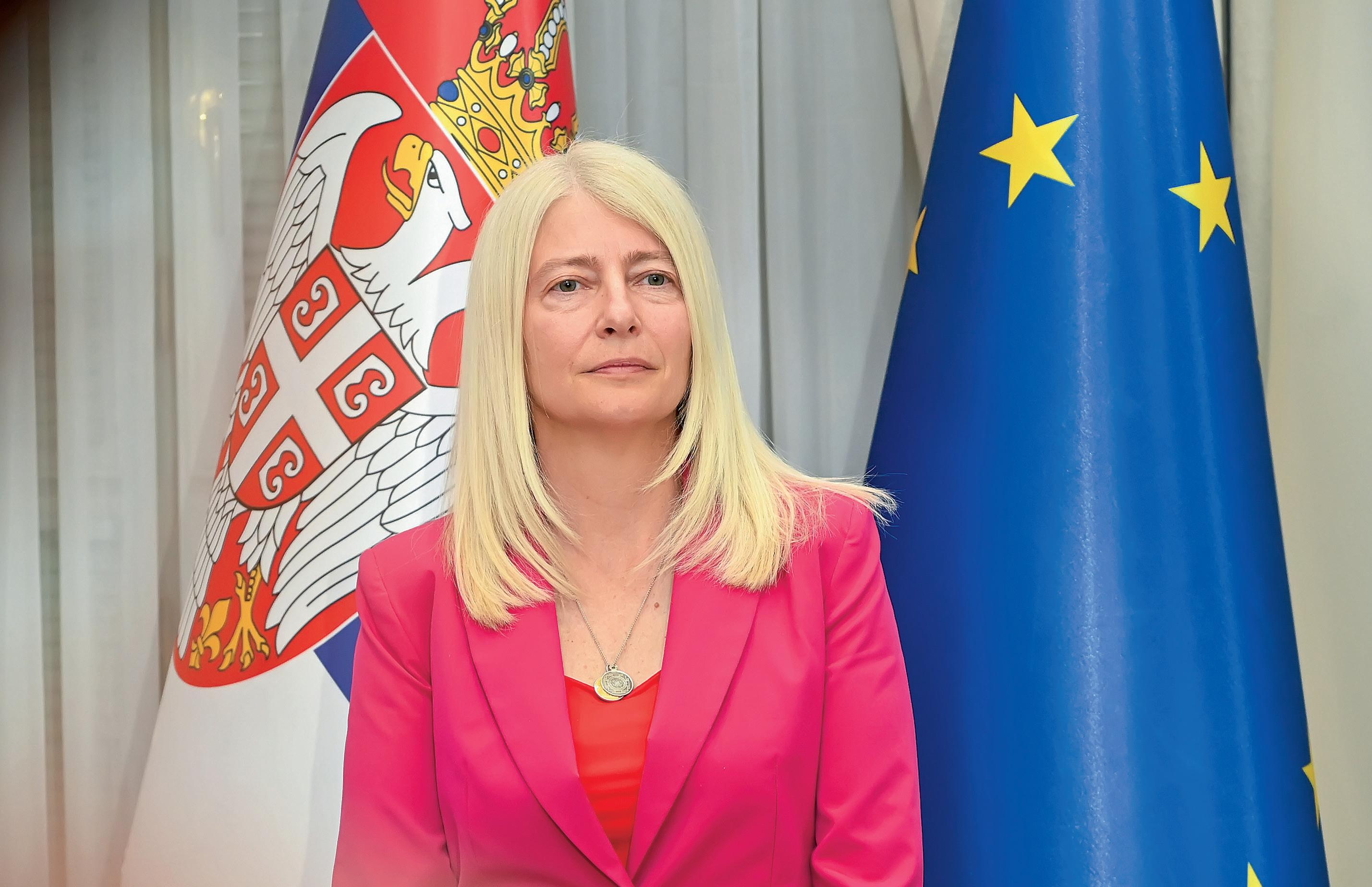
VThe Government of the Republic of Serbia is working actively to prepare for EXPO 2027, in order to utilise this event with the aim of maximally promoting our potential at all levels, because the EXPO is primarily an opportunity for us to present ourselves to the world as a land of creative people ~ says Dr Jelena Begović, Serbian Minister of Science, Technological Development and Innovation, speaking in this interview.
According to our interviewee, this specialised exhibition is set to impact our economy very positively, firstly and most directly through tourism, with almost four million people expected to visit Serbia through-
mechanisms for innovation through FDI place a focus on enticing global companies to establish their research and development centres in Serbia
out the course of the expo. “But EXPO 2027 also has a broader dimension, because it is promoting Serbia as an attractive destination for investments thanks to its high-quality and highly talented people, as well as a motivating environment for doing business,” says
Begović. “One of the key initiatives that our ministry will present with pride is the BIO4 Campus, which will become the centre of gravity for domestic and foreign experts, from both academia and the private sector, who will work together to jointly develop innovations in the fields of biotechnology, biodiversity, biomedicine, bioinformatics and artificial intelligence.”
How is this huge job advancing?
— We take advantage of every opportunity to entice more partners when it comes to the project to construct the BIO4 Campus, which is why I went to Mainz to participate in the Curious2024 - Future Insight conference of company Merck, with which we have a Memorandum of Cooperation signed within the specific framework of joint work on the Campus. I presented our idea of the BIO4 Campus to eminent scientists from all over the world. It is likewise significant to mention that a Public Call is currently underway for expressions of interest in renting space at the BIO4 Campus and all interested parties can apply, and they can find all essential information about applying on the website of the Ministry, as well as on the official BIO4 Campus website.
The BIO4 Campus is Serbia’s largest project in the field of biotechnology. The construction of this complex is advancing according to the planned dynamic and is expected to be completed by 2027. We’ve already established international cooperation on numerous fronts, including contracts with major global companies like Pfizer, Astra Zeneca and Roche, and we most recently signed a Memorandum of Understanding with Medtronic. The BIO4 Campus will become a centre of biotech research and development, providing top laboratory facilities and infrastructure.
What are your future ambitions?
— We want to reach out to every innovator in the Republic of Serbia. We’ve networked innovation start-up centres nationwide and directed them towards closer cooperation, primarily with Science and Technology Parks [NTPs], but also with the private sector, where we see great potential.
We’re continuing to expand existing NTPs and build new ones. Work is underway on the construction of a regional industrial-technological park in Kruševac on an area of 10,000 square metres. This will also be a unique site in Serbia, focused on the research and development of both services and products, but also production. We recently laid foundation stones for a total of 27,000 square metres of new space in Čačak and Niš, which really produce excellent innovative companies. The innovation centre in Loznica is now operating on an area of 800 square metres and is the

EXPO 2027 and the BIO4 Campus form part of the broader Leap into the Future initiative, or the development of a modern Serbia in which science and innovation are engines of further development
Serbia has been recognised as a place with strong creativity and talent when it comes to the ICT industry, and our desire is to extend this to other areas, such as biotechnology
Serbia possesses all the prerequisites to become a centre of innovation and new technologies – not only in the region, but also further afield
24th consecutive innovation centre to be established in Serbia. The plan for the period ahead is to open an innovation centre in Novi Pazar that will sprawl over an area exceeding 1,300 square metres.
Every expansion of science-innovation infrastructure that we implement in Serbia is done specifically to enable science and the private sector to be more strongly connected, on a sturdier and more stable basis.
One of Serbia’s objectives is to turn this country that already has a strong IT industry, supporting the world’s leading companies, into a nursery for its own start-ups. How much have we advanced in this area and to what extent does the construction of science and technology parks contribute to utilising knowledge resources around the region? — Serbia has made significant gains on the development of its start-up scene, while exports of ICT products and services rose significantly in the first five months of this year, up 20.5% compared to the same period of last year. Testifying to just how much we’re progressing is the fact that we had inflows of approximately €250 million from the export of ICT products and services in 2012 and €3.5 billion in 2023. We are today already talking about expanding the capacity of existing NTPs, in order for us to be able to offer as many companies as possible – first and foremost start-ups – significant mentoring services and financial support for their development. The reason for this capacity building is that existing capacities have already been fully utilised, while interest in this kind of support is still growing among innovators and start-up companies, but also among major companies that engage in research and development.
More than 750 start-up companies operate in Serbia today, almost half of which were established over the course of the previous two years. The NTPs that we already have in Novi Sad, Belgrade and Niš, and those under construction in Čačak and Kruševac, enable the optimal use of regional knowledge resources and help in the creation of a favourable milieu for the development of innovation and entrepreneurship. I think decentralisation is extremely important in this process, as it should enable young people to engage in innovative entrepreneurship across the whole of Serbia.
To what extent are start-ups today networked with large companies and how does the state encourage them to link up through the creation of a stimulating framework?
— Our Ministry implements two important programmes: the Programme for the Promotion and Popularisation of Innovative Activities in the Republic
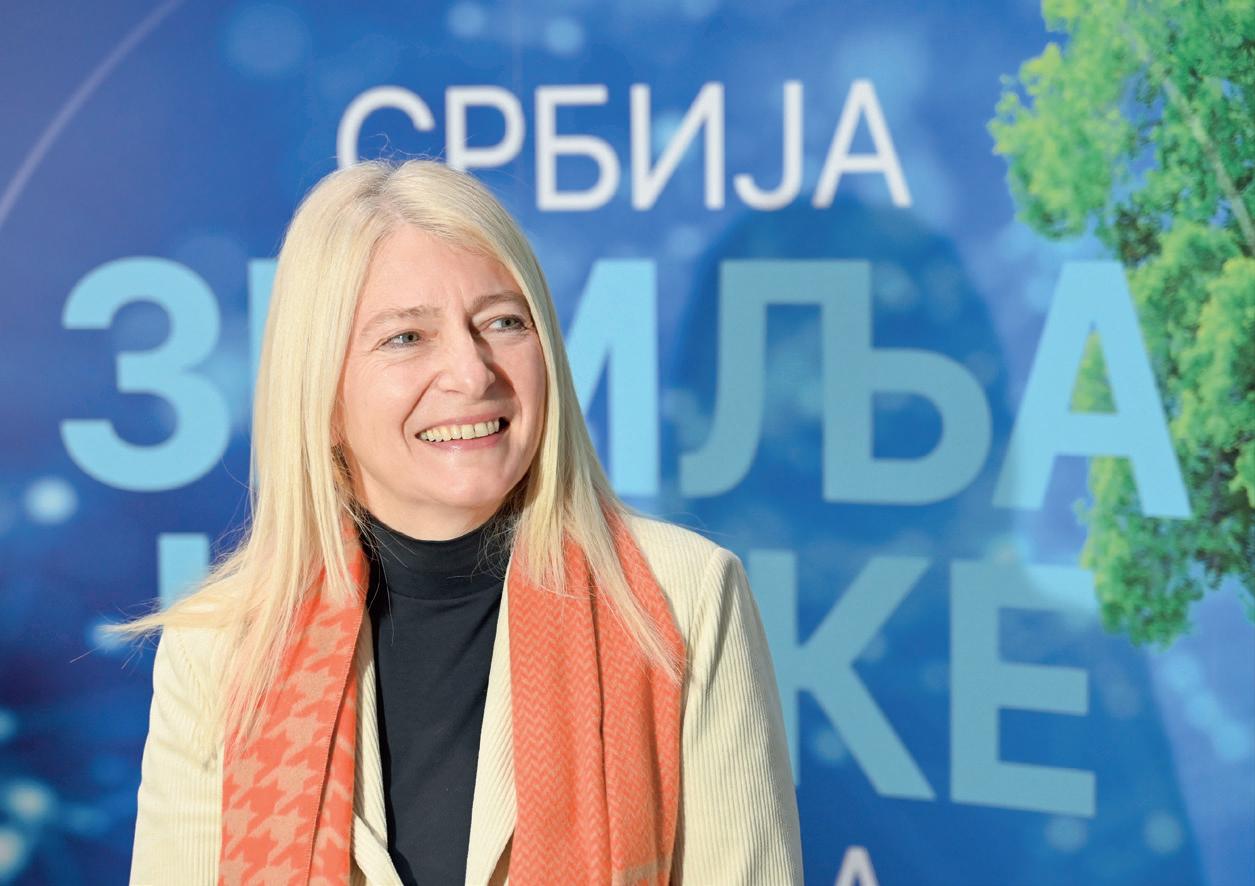
of Serbia; the Programme for the Formation and Development of Innovation Incubators at Scientific and Research Organisations in the Republic of Serbia. These programmes both aim to increase the visibility of Serbia’s innovation ecosystem through a range of activities, as well as introducing innovation incubators at scientific and research organisations, where they will work on the development of entrepreneurial skills, primarily in the academic community. We need more start-ups that emerge in the academic community.
Our innovation infrastructure represents support for the development of a start-up culture and information. It includes 15 Makers Labs in secondary schools, 14 innovation incubators within scientific and research organisations, 24 regional innovation start-up centres, four science-technology parks and three funds providing financing for research and development in Serbia. Naturally, the national Innovation Fund is primarily responsible for start-ups and their cooperation with larger companies, but also with the academic community, by financially supporting such forms of cooperation through its calls. Alongside this aspect, science and technology parks are also places where those engaged in innovation cooperate, which is why they are vital to us. Together with our Ministry, the Chamber of Commerce & Industry of Serbia also provides strong support to the development of innovation and entrepreneurship.
Why is R&D in the private sector so essential today and what can we boast of in this area?
— Today’s largest global companies allocate a significant part of their profits specifically to research and development, as that represents their best chance of remaining competitive on the market. Quite simply,
without development and without one’s own intellectual property and solutions, companies can no longer do business successfully. When a country has research and development centres of large foreign companies, but also domestic ones, that’s always a good mechanism for attracting FDI, but also for swift economic growth and creating jobs for highly qualified and educated people. The so-called brain drain is also thereby at least partially resolved, while it entices the influx of experts from all over the world. Our country is thus becoming a good destination for investments from all over the world.
We’ve already shown that it’s possible, firstly in the IT industry, and we can boast of the successful operations of our science and technology parks, an increasing number of investments in research and development, and growing cooperation between the private sector and academia. Infrastructural support mechanisms for the development of innovation and the acceleration of innovation development through FDI places a focus on enticing global companies to establish their research and development centres in the Republic of Serbia.
We are developing a start-up ecosystem, enabling young innovators to access mentoring, financial resources and superior infrastructure
How much FDI is there in high-tech fields today and have we succeeded in maintaining and advancing the trend of foreign research facilities relocating to Serbia?
— Foreign direct investments in high technology fields in Serbia have experienced significant growth and investment in recent years, with a focus primarily on the ICT sector, electronics and the field of artificial intelligence. These technologies have really found very successful applications in Serbia, such as with the development of innovations that apply these technologies in agriculture, biotechnology, energy and the industry of autonomous and intelligent vehicles. Serbia is positioning itself as a centre of research and development in Southeast Europe, enticing leading players in various industries, such as Stellantis, Toyo Tires, MTU Aero Engines, Mint Manufacturing, Schneider Electric, Rivian, Mei Ta Manufacturing, Vorwerk Manufacturing and Siemens. And more than 15,000 new jobs have been created through FDI since 2020. Likewise, Microsoft currently employs more than 700 of our experts at its development centre in Belgrade and has a further growth tendency.
Addiko online keš kredit dostupan u svakom trenutku, uz odobrenje bez odlaska u banku!

Za iznos keš kredita od 480.000 RSD sa kamatnom stopom 12,95% (EKS 15,32% obračunat na dan 15.08.2024.) plaćate mesečnu ratu u iznosu od 9.999,16 RSD, mesečnu naknadu za vođenje tekućeg računa 150,00 RSD, mesečnu naknadu za vođenje kreditne partije 200 RSD uz rok otplate 68 meseci. Ukupan iznos za otplatu 679.942,50 RSD i sve to bez troškova obrade kredita.


Serbia’s Ministry of Information and Telecommunications aims to propel the country to the highest global standards in electronic communications, thereby contributing to the development of the economy and innovation, as well as the digital society
The development and implementation of new, modern technologies in the Republic of Serbia, along with the continued systemic digitalisation and digital transformation, are priorities for the Ministry of Information and Telecommunications. “Our goal is to achieve the highest global standards in the field of electronic communications, ensuring that it becomes the foundation for the development of the economy, innovation and digital society,” says Information and Telecommunications Minister Dejan Ristić.
The Proposal for the Development Strategy of the Electronic Communications System until 2030 was recently prepared in an inclusive and transparent manner. The strategy outlines national priorities for the planning, construction, deployment and provision of electronic communication networks and services of interest to the Republic of Serbia, explains Ristić.
“The Ministry is dedicated to bridging the digital divide and developing broadband communication infrastructure, including in rural areas. Additionally, raising public awareness and enhancing skills to effectively utilise digital resources in the accelerated development of the digital society are of great importance,” adds our interlocutor.
What are your expectations regarding the further growth and development of Serbia’s IT sector?
— The IT sector in the Republic of Serbia has shown consistent growth and development in recent years, and this positive trend is expected to continue in the future. This is most evident in the steady increase in the export of ICT services. According to the latest statistical data, the export of ICT products and services in the first five months of 2024 increased by a significant 20.5% compared to the same period of last year.
Serbia has the potential to become a centre for innovation in the IT sector, with a focus on software development, artificial intelligence, blockchain technology and other advanced technologies.
An increasing number of educational institutions are introducing programmes in the field of information
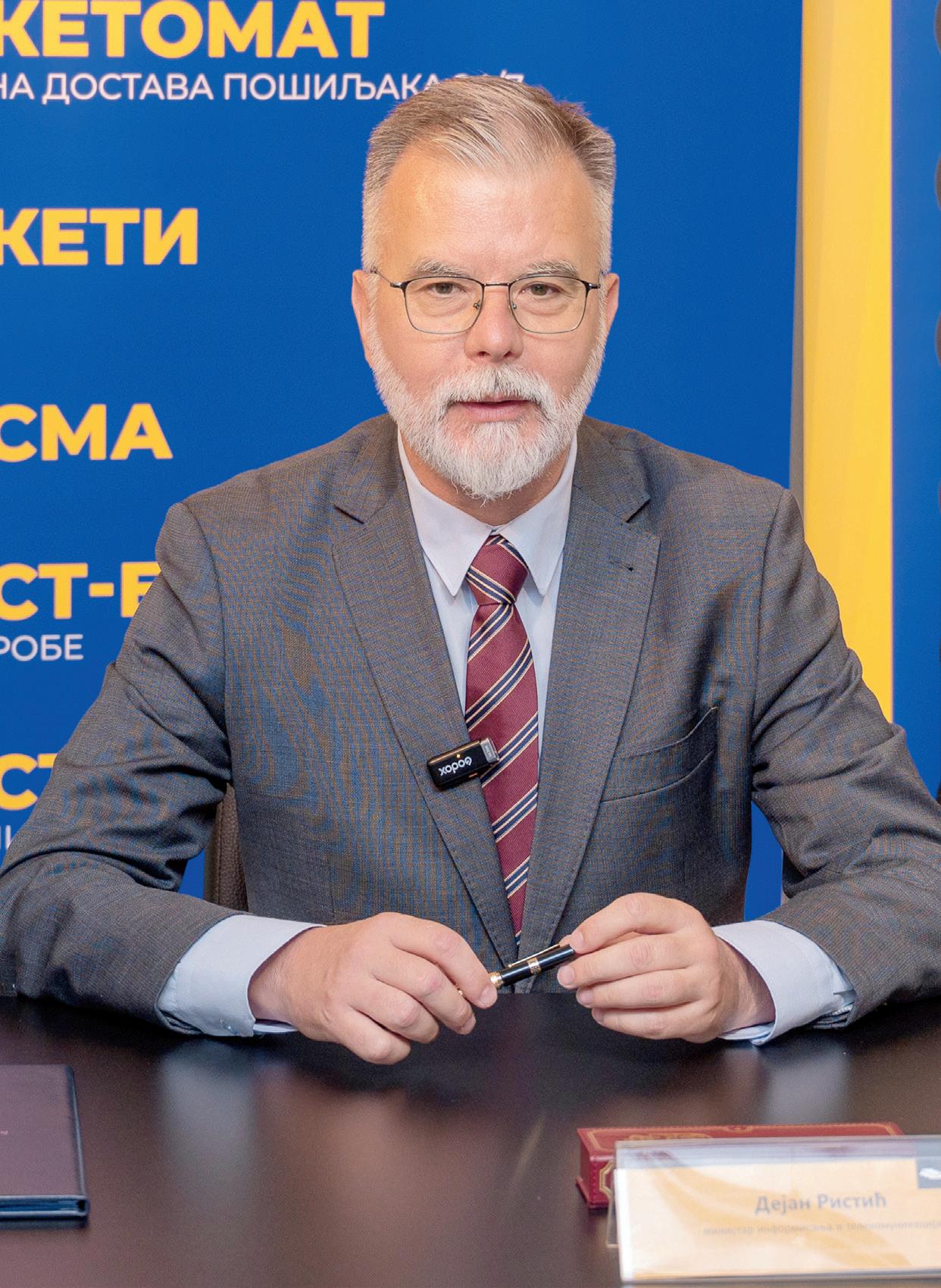
Special attention is being paid to the development of infrastructure and services necessary for the smooth hosting of EXPO 2027
technology, while numerous private courses and academies offer retraining and further education, ensuring a qualified workforce.
The IT sector in the Republic of Serbia has great potential for innovation, growth and development. With government support and an increasing number of qualified professionals, Serbia is on route to becoming one of the top leaders in the IT industry across the region and beyond.
The electronic interconnection of numerous services has helped the business community to perform various administrative tasks much more efficiently. What can we expect in the period ahead in this regard?
— E-Government in the Republic of Serbia plays a key role in the modernisation and efficiency of public administration. It not only contributes to the better functioning of state institutions, but also significantly improves quality of life for citizens and the competitiveness of the economy.
In line with the strategic commitments of the Government, intensive work will be carried out in the coming period on the development of infrastructure for eGovernment. One of the focuses will be on improving the State Data Management and Storage Centre to enable the swifter and more uniform development of e-Government services and reduce the costs of procuring, managing and maintaining the ICT infrastructure that each authority acquires for its needs. The Kragujevac Data Centre provides a secure location for storing backup copies of data and applications located in the State Data Management and Storage Centre in Belgrade, ensuring security and continuity in the provision of e-services and enabling the centralised development of individual and shared e-services of public administration bodies.
Plans are also in place to establish new and improve existing registers and records in electronic form, as a form of support for the development of e-Government services.
Alongside the advancement of digital transformation, the issue of further work on information security is also increasingly important. What are the key updates in the draft Law on Information Security?
— The new law will advance information security in the country by adopting improved regulatory solutions, redefining responsibilities and providing clearer procedures in the event of incidents or cyber threats, as well as strengthening the institutional framework for responding to challenges in the cyber world. The proposed text serves as the legislative foundation for the further development of information security improve-
Serbia has the potential to become a centre for innovation in the IT sector, focusing on software development, artificial intelligence, blockchain technology and other advanced technologies
The Regulatory Agency for Electronic Communications and Postal Services will conduct an auction for the 5G network in 2025, thus making 5G commercially available
We are working to improve the State Data Management and Storage Centre to enable the faster and more uniform development of e-Government
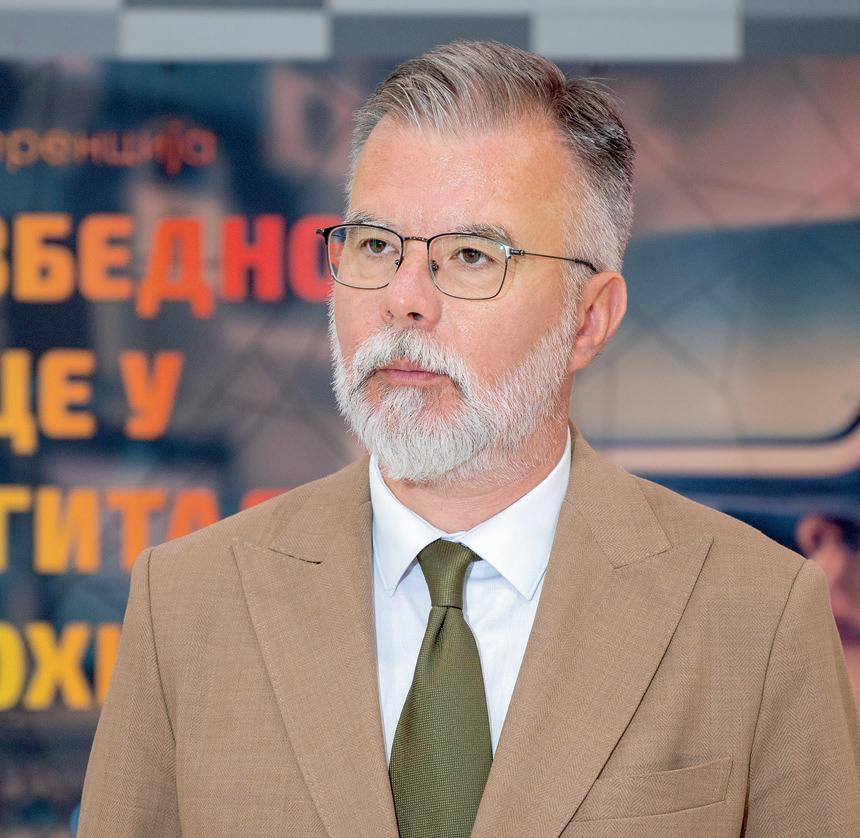
ments, in line with best practices, and will enable the Republic of Serbia to develop measures to protect ICT systems and networks, effectively addressing the increasing challenges in the field of information technology.
The most significant changes include a revised classification of ICT system operators of special importance according to the level of importance of the services they provide. Additionally, the responsibilities of the national CERT have been expanded, the obligation to report incidents in ICT systems of special importance has been clarified, the responsibilities of bodies dealing with information security have been redefined, and measures have been taken for a more effective response to cyber threats and incidents.
In order to improve the institutional framework, the establishment of the Office for Information Security, as a separate organisation, is also planned.
The topic of frequency auctions for 5G is particularly interesting to the business community. When do you expect this process to unfold and what do you consider as the benefits of 5G technology for the economy and citizens, as well as for the state?
— In addition to fixed broadband infrastructure, the Ministry is also working on creating conditions for the further development of mobile broadband infrastructure.
Namely, alongside the adoption of the new Law on Electronic Communications in 2023, and ensuring the availability of pioneer bands for the introduction of 5G, the Ministry will establish the minimum conditions for issuing individual licenses for the use of the radio frequency spectrum based on a public bidding process this year. In 2025, the Regulatory Agency for Electronic Communications and Postal Services will conduct the auction. This will make 5G commercially available in the Republic of Serbia.
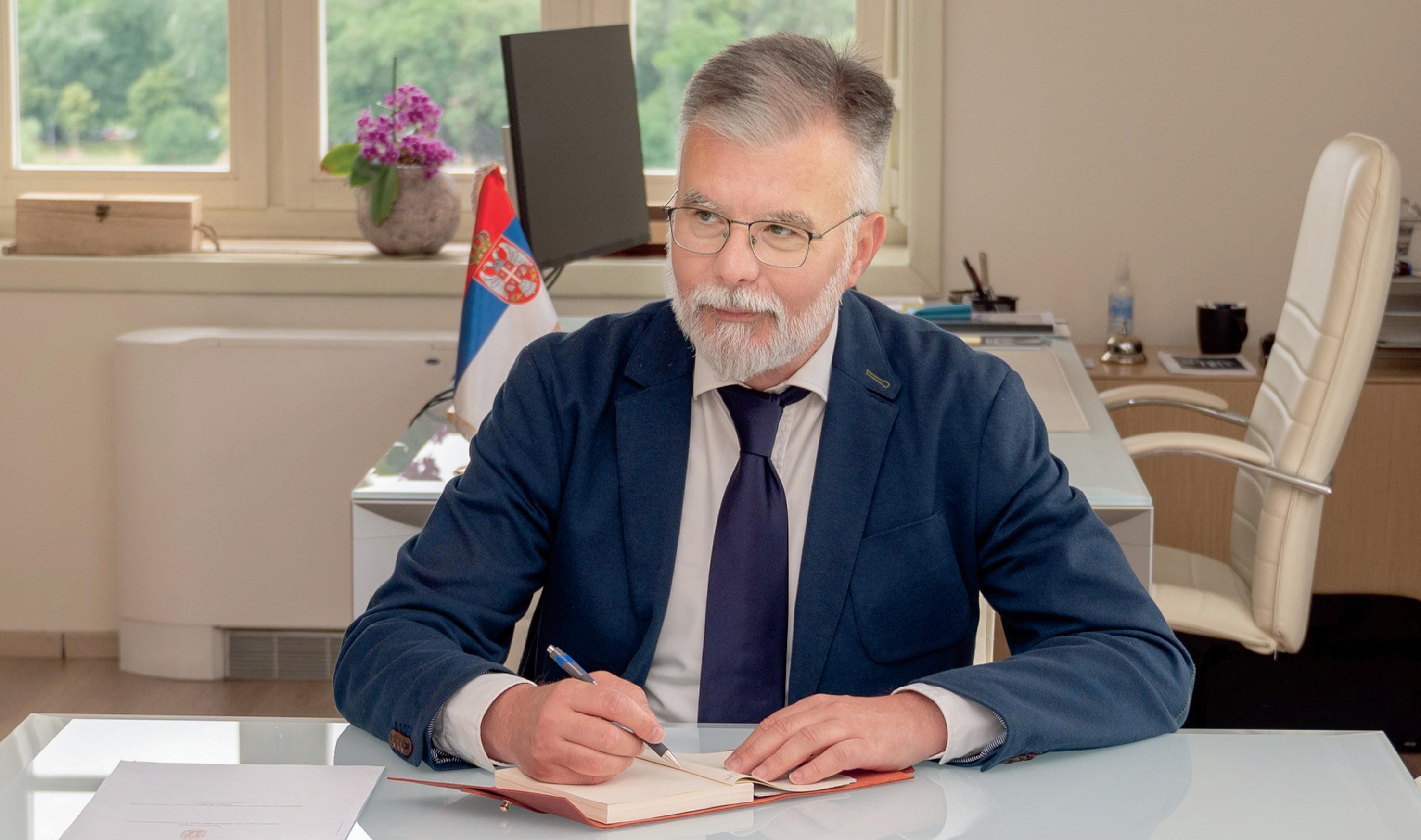
The primary advantages of 5G mobile networks include a significant increase in data throughput with reduced latency, which is essential for efficient automation and other processes that are crucial to the development of industry. There are numerous examples of potential applications for 5G networks, including in areas such as agronomy, the automotive industry, medicine, transportation and logistics. Even at the current level of development of the domestic industry, the development of the 5G network and other modern technologies will undoubtedly provide strong impetus to the country’s overall development.
Mobile operators are finding it increasingly difficult to find locations for setting up base stations due to regulatory barriers in the field of environmental protection, which may slow down industry growth. On the other hand, this contradicts the state’s plan to provide quality telecommunications infrastructure in preparation for EXPO 2027 and the introduction of 5G technology. How can your Ministry help solve these problems?
— In accordance with the Law on Electronic Communications, holders of individual licenses issued on the basis of a public bidding process are no longer required to obtain an individual permit for each base station in the mobile network, which is issued upon request. Instead, radio stations are only registered with the Regulatory Agency for Electronic Communications and Postal Services.
The procedure for obtaining permits for the installation of base stations in mobile networks has been simplified significantly
Moreover, the Ministry of Environmental Protection has issued an Instruction on the application of certain articles of the Law on Environmental Impact Assessment and the Rulebook on sources of non-ionizing radiation of special interest, types of sources, methods and periods of testing for the installation of base stations for mobile telephony. On the other hand, the Ministry of Construction, Transport and Infrastructure has issued its Guidance on the Application of Certain Articles of the Law on Planning and Construction, also with the aim of further developing public mobile electronic communication networks. Special attention is also being paid to the development of infrastructure and services necessary for the smooth hosting of EXPO 2027. The Action Plan for the 2024-2027 period, which was prepared along with the Proposal for the Development Strategy of the Electronic Communications System until 2030, and which is expected to soon be adopted by the Government, envisages covering the EXPO 2027 complex with a 5G network signal by the end of 2026.

The strategic partnership with the European Union on critical mineral raw materials will contribute to Serbia’s long-term economic growth, speedier integration into the EU’s single market and accelerated EU accession
Energy sector reforms are currently underway in Serbia, and in this context company Elektroprivreda Srbije (EPS) has long been under public scrutiny. According to Serbian Mining and Energy Minister Dubravka Đedović Handanović, EPS reforms were launched with last year’s adoption of a new Statute and the appointment of a professional Supervisory Board, while a new general director who doesn’t have ’acting director’ status was selected in a competition. The Transformation Plan was adopted in June and implies specific structural, financial and operational changes that should improve the company.
“The goal is for EPS to be a guarantor of energy stability, a market-oriented company that advances its quality of service constantly. We’ve identified the parts of the system that require more intensive work, and that primarily means investments, because EPS has a long-awaited and significant investment cycle ahead of it, while more efficient project management is also essential,” says Minister Đedović Handanović.
According to her, one of the priorities is advancing the digitalisation of EPS’s processes and services, which – coupled with the more efficient directing of human resources potential and the more precise management of investments – will enable EPS to ready itself to satisfy goals related to the greater use of renewable energy sources, achieving carbon neutrality, profitability, and market orientation, as well as significantly improving its customer relations.
What do you see as the key strides that you want to achieve when it comes to restructuring other public companies in the energy domain?
— The reforms that we’ve launched at EPS should demonstrate how we can make state companies in the energy sector more efficient, stronger and more successful. I believe that, when it comes to reforming the largest company – where in previous years there was the most obstruction and resistance to change –other companies can follow the same path provided

Each part of EPS will be analysed carefully, with clear procedures, in order to precisely determine the key points for the company’s further development
we show that this reform is in the best interests of EPS and its employees, as well as the state, as the company’s owner. And this will result in a stronger and more competitive electricity and gas sector.
Serbia recently received praise for its notable progress in the area of decarbonisation. What can
we expect on this front when it comes to improving the institutional framework and investment? — Apart from stabilising the energy system in order for it to satisfy its main mission – of ensuring energy security and supply stability – the Ministry has been working at an accelerated pace over the past two years to lay the foundations for future development, which will ensure the energy sector’s greater sustainability and more energy for the needs of the economy.
The Law on the Use of Renewable Energy Sources laid the foundations to increase the share of RES in such a way that the integration of green megawatts is harmonised with our energy grid capacities. The results of the first auctions for market premiums show that investors have recognised the legislative framework as being stable and favourable. We’ve secured more than 700 megawatts of new RES capacities and investments worth more than a billion euros. We want to repeat that success in the second round of auctions, to be held in the second half of this year, which is why we are preparing seriously and analysing the market.
We’ve also prepared amendments to the Law on Energy, which will enable provisions included the latest package of EU energy legislation to be transferred to domestic legislation, thus contributing to binding our electricity market to that of the EU.
We will have the completed strategic framework this year, with goals that will track the energy sector’s development over the next three decades. The government adopted its Integrated National Energy and Climate Plan in June, which has been harmonised with Europe’s vision for the decarbonisation of the energy sector and represents a kind of roadmap for Serbia’s energy transition. The integrated plan places a focus on investments in renewable energy sources, with approximately 3.5 gigawatts of new solar and wind power plants set to be added to the grid by 2030, which will mean that almost every other megawatt-hour of electricity generated will come from clean sources. Public debate is underway on the new Energy Sector Development Strategy up to 2040 with Projections up to 2050, which should also be adopted during this year.
This also relates to the continuation of the ministry’s work to consider options for the use of nuclear energy. To what extent is this possible to implement operationally, given the lack of expert personnel, among other things?
— As we approach 2050, we will find it increasingly challenging to secure sufficient amounts of base energy, given the planned reduction of production at thermal power stations. Through the Integrated Plan, according to variations of one of the scenarios, we’ve already considered introducing nuclear power
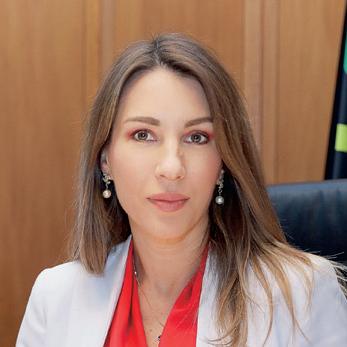
The Jadar project’s potential can’t be boiled down to what’s brought by mining and processing lithium. This would be the largest greenfield investment in Serbian history and the basis to develop an entire industry
The reforms that we’ve launched at EPS should demonstrate how we can make state companies in the energy sector more efficient, stronger and more successful
As we approach 2050, we will find it increasingly challenging to secure sufficient amounts of base energy, given the planned reduction of production at thermal power stations
plants, with a total capacity of up to 1,000 MW, to the Serbian power system after the year 2040.
A Memorandum of Understanding on the application of nuclear energy development in the Republic of Serbia was recently signed with the professional and scientific community, with which we also launched a public debate that should encompass security, legal, organisational and scientific research, engineering and all other aspects related to the use of nuclear technology. We’ve brought together experts from the academic community, from universities and state institutions, in order to have a framework for institutional cooperation and to engage all experts able to help us connect as quickly as possible with countries that haven’t had a moratorium on nuclear energy, which we’ve had for 35 years. I believe that, once we provide that impetus, we will motivate many of our experts, both in the country and abroad, to provide their own contributions in order for Serbia – on the basis of the comprehensive economic, technical and market analyses that will be carried out – to make the best decisions regarding the development direction of our nuclear programme, utilising the best experiences from around the world.
Likewise, the proposed amendments to the Law on Energy envisage reintroducing the field of nuclear energy, or the abolishing of the Law on the Prohibition of the Construction of Nuclear Power Plants, and the regulating of the main steps to take for the potential peacetime application of nuclear energy in Serbia, based on the International Atomic Energy Agency’s guidelines.
Your ministry has been in the spotlight over the Jadar project, both from the perspective of environmental protection and that of whether Serbia will be able to profit from the part of the lithium use value chain where significant added value is created. When it comes to the exploitation of mineral raw materials in general, what have we learnt from existing experiences?
— The vision of achieving carbon neutrality by 2050 implies energy systems undergoing enormous change over the next quarter of a century. Estimates suggest that demand for certain critical raw materials will increase 4.5-fold by 2030, while demand for lithium –as a key element of batteries for electric vehicles and devices – will increase 11-fold by 2030 and 57-fold by 2050, while a very small part of the required quantity will be sourced from European mines.
When it comes to critical and strategic raw materials, the Republic of Serbia has significant resources or potential, including lithium, as one of the key raw materials of the energy transition. The Memo -
randum of Understanding between the Republic of Serbia and the European Union that was signed recently represents an important step in forging a strategic partnership with the European Union in the field of critical mineral raw materials and the development of a value chain that includes the production of batteries and electric vehicles. Sustainably produced batteries, as well as the creating of the entire electric vehicle supply chain, will be crucial to decarbonising the transport and energy sectors, as well as to reducing CO 2 emissions, both in our region and in the EU. This partnership will contribute to Serbia’s long-term economic growth, speedier integration into the EU’s single market and accelerated EU accession.
The Jadar project’s potential can’t be merely boiled down to what’s brought by the mining and processing of lithium. This would be the largest greenfield investment in Serbia’s history and would lay the foundations for the development of an entire industry that has the potential for incredible economic, business and social development. The projected gains of concluding the entire value chain in Serbia could amount to more than 16 per cent of GDP annually.
Serbia really has an opportunity to become a significant player in the global lithium industry that we shouldn’t let pass us by – though only with a maximally responsible approach and the applying of environmental standards in mining that will guarantee human health and the environment are protected, as is the case in Europe’s most developed countries, so we should work according to the highest European standards, while adhering to all the laws and regulations of the Republic of Serbia.
You’ve announced the start of work on amendments to the Law on Mining and Geological Exploration. What should these changes bring in practical terms? — Amendments to the Law on Mining and Geological Exploration should firstly recognise the importance of mineral resources in the part of the critical and strategic harmonisation of provisions with EU regulations, and provide for the greater participation of the Republic of Serbia in decision-making processes, which has not been the case to date. It will also contribute to defining potential strategic deposits, which will exclusively be the subject of various forms of contracts with the state, and which will lead to the overall protection of the interests of the Republic of Serbia, on the one hand, and predictability for new investments, on the other.
We are also currently developing the Strategy for the Management of Mineral and Other Geological Resources of the Republic of Serbia for the 2025 to
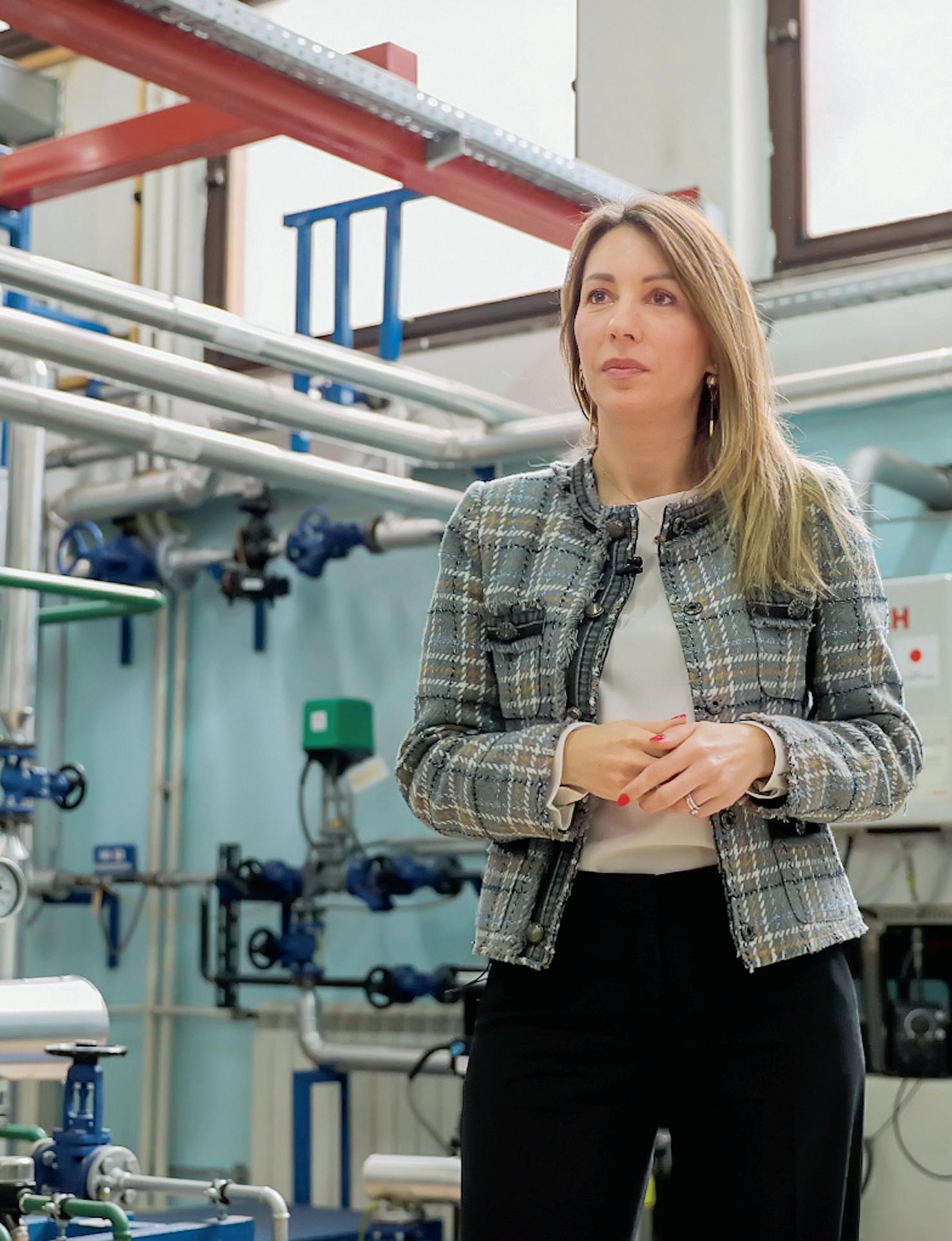
The strategic partnership with the European Union in the area of critical mineral raw materials will contribute to Serbia’s long-term economic growth, speedier integration into the EU’s single market and accelerated EU accession
2040 Period, with Projection up to 2050. This document is being worked on by more than 50 professors and associates of the Faculty of Mining and Geology. Apart from comprehensively analysing the current state of mineral resources, this strategy should also show the kind of optimal role for the state in managing our mineral resources in the best possible way, ensuring that we gain the most benefits for our economic growth, with the least harmful impact on the environment.

We will work over the coming years to increase agriculture yields through the expansion of the surface area covered by irrigation and the application of modern technologies, in order for us to leave the generations to come at least as much as we inherited from those who came before us

Agriculture is exceptionally vulnerable to climate change, because it is essentially an “open-air factory”. Droughts are becoming increasingly frequent and severe, while the number of days with extreme precipitation has doubled since the mid-20th century. “Altered climatic conditions are already having a significant negative impact on yields and increases in interannual yield fluctuations, and the Government of Serbia and the Ministry of Agriculture, Forestry and Water Management recognise the seriousness of the situation and are implementing tangible measures to reduce damage and losses in agriculture,” says Minister Martinović in this interview.
His ministry has launched numerous infrastructure projects throughout Serbia, with which it is striving to strengthen the risk management system. The construction of facilities contracted to date will enable the irrigating of approximately 123,000 additional hectares of agricultural land, while preparations are also underway for new projects. We are working intensively to automate anti-hail protection systems in Serbia and have to date completed the modernisation of multiple radar centres. We constantly update and improve our ordinances for subsidies and adapt them to the fight against altered climatic conditions through the procurement of equipment, while it is equally important that we provide increasingly widespread support to agricultural producers for insuring crops and animals.
Smart food is one of the areas recognised as a lever of economic growth within the scope of Smart Specialisation. What is the Serbian government doing to help agricultural producers and companies handle the increasingly challenging European and world markets?
— The economic significance of the Republic of Serbia’s food sector is a result of certain advantages that we have as a country, but we must certainly look to the future and monitor global trends, which is why we are increasingly directing our activities and measures towards value-added products, the applying of high technologies in agriculture and sustainable production chains. With measures targeting primary production, but also processing, we are improving productivity through the reduction of labour expenditure and the optimisation of input costs, leading to an improved production structure, modernisation and the creation of possibilities to expand the range of produce and improve sales in the final instance. In the period ahead, we will also insist on education and the linking of scientific and research institutions with producers at all levels of agricultural production and processing. Changes in this sector are fast and frequent, such that
The Law on Food Safety is on the list of the Ministry’s priority laws... We expect to submit the draft law to the European Commission for adjustment by year’s end
inspectorates within the Ministry of Agriculture have begun their integration into the e-Inspektor software solution, which enables the monitoring of situations and the more efficient management of oversight tracking
We are working intensively to automate anti-hail protection systems in Serbia and have to date completed the modernisation of multiple radar centres
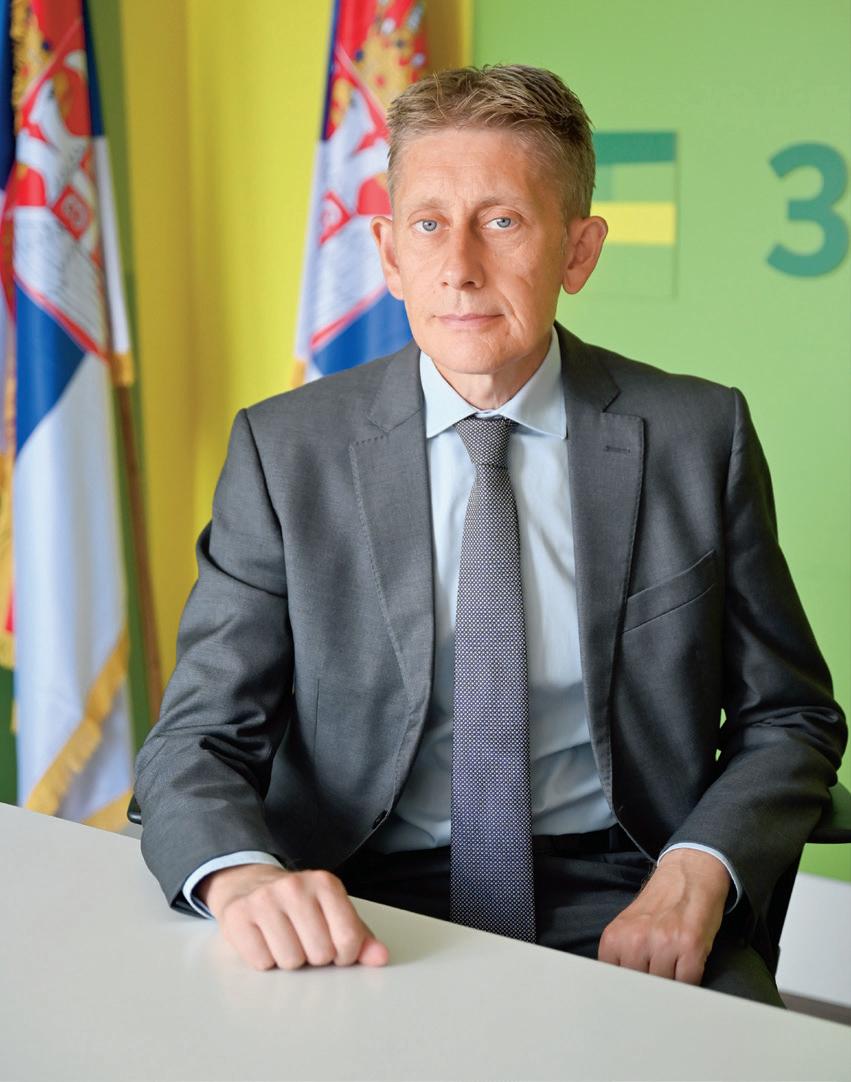
only those who have the knowhow and ability to understand those changes and institute and implement appropriate strategies can be competitive – whether that’s the ministry, a farmer or a processor.
Is it planned to harmonise the Law on Food Safety and accompanying regulations with the EU acquis?
— This law is on the list of the Ministry’s priority laws and its harmonisation with EU regulations is underway. We are working on that intensively, with the aim of achieving the highest food safety standards. This process includes adapting existing regulations, introducing new measures and harmonising with the EU’s best practices in order for us to ensure the highest level of health protection and food quality for our citizens. Our plan is to submit the draft law to the European Commission for adjustment by year’s end.
How much progress has been made on the digitalisation of the agriculture sector and is there a plan to establish a functional IT system and digitalise oversight within the scope of inspection services?
— Today, in this age of the Fourth Industrial Revolution, IT is the conveyor of changes in agriculture. We are transforming the way we deal with agriculture through digitalisation, rendering it more efficient, sustainable and resilient to change. The Ministry endeavours to utilise support measures in order to provide new technologies for our producers. We introduced the e-Agrar system last year, which contributed to saving resources in the very first year, first and foremost in
terms of the time required to submit requests, while we’ve also accelerated the processing and paying of subsidies. The plan is to continue the digitalisation process with the aim of linking all systems that control the satisfying of conditions to receive incentives. Further improvement will also enable the obtaining relevant data to better form agricultural policy and rural development measures. When it comes to the digitalisation of inspection services, inspectorates operating within the framework of the Ministry of Agriculture have begun being integrated into the e-Inspektor software solution, which will enable the monitoring of situations in specific areas and the more efficient management of oversight tracking. Moreover, at the initiative of the Government of the Republic of Serbia and our ministry, Novi Sad’s BioSense Institute has developed the “AgroInspect” application for recognising the post-harvest burning of organic residue.
How important is it for today’s farmers to have digital skills in order to use the e-Agrar platform and various technological innovations in this area?
— Digital skills are becoming increasingly important in all sectors, including agriculture. Technologies like smart agriculture, big data analysis and artificial intelligence enable farmers to manage their resources more precisely, increase yields and reduce production costs. Digital literacy provides them with the possibility to remain competitive, react to changes more quickly and better plan their production. Alongside this, improved risk management, reduced negative environmental impacts and reduced administrative burdens are all benefits of new technologies, which is why it’s important for farmers to understand and use them daily.
This year’s first public call to submit applications for the approval of projects for IPARD incentives is currently underway. How much can these funds help when it comes to the revitalising and modernising of farmsteads in Serbia?
— This form of support can improve the reconstruction and modernisation of our country’s farmsteads significantly. Through the IPARD III programme, the EU envisages financing amounting to 377 million euros, with €288 million sourced from the EU and approximately €90 million from the budget of the Republic of Serbia.
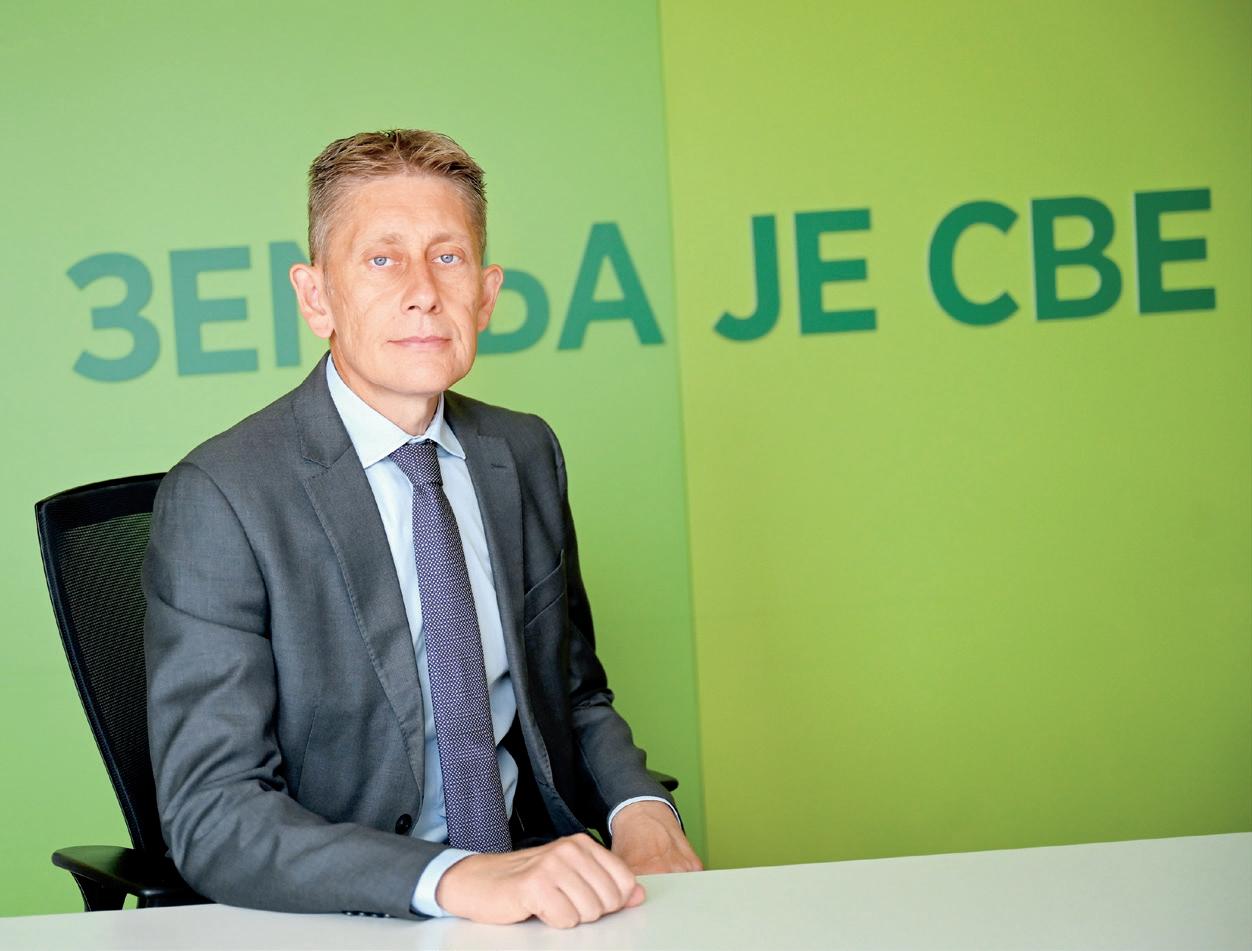
In the period ahead, we will insist on education and the linking of scientific and research institutions with producers at all levels of agricultural production and processing
This support, coupled with the private contributions of users, is expected to result in investments in Serbian agriculture exceeding 580 million euros. With these measures, the modernisation of production, harmonisation with EU standards and the development of sustainable agricultural systems are all encouraged and will contribute significantly to the economic development and competitiveness of Serbian agriculture.
How do you view the impact of all these changes on the country’s agricultural producers and food industry?
We’ve launched numerous infrastructure projects throughout Serbia, with which we are striving to strengthen the risk management system and respond to climate change
— The challenge of securing enough food for everyone has taken on a new dimension in the 21st century. The growth of the global population, together with the impact of climate change and political events, presents a huge mission for all of us that have been entrusted with the responsibility to preserve and improve our agriculture and food systems. It is crucial that we embrace the transition to new sustainable technologies. By opting for the right measures, we must develop agriculture in directions that are based on ecological principles, because we thereby reduce the possible risk of disrupting the biological equilibrium of the agroecosystem and beyond.
“Our new factory in Surčin reflects Nestlé’s commitment to preserving the planet and meeting the demands of an increasingly discerning market,” says country manager Marjana Davidović

Corporatesocial responsibility is one the main priorities of Nestlé, which strives to consistently develop more sustainable practices across all areas of operations. Here Marjana Davidović, the company’s country manager for Serbia, Montenegro and North Macedonia, explains how these best practices are being implemented and are yielding results locally.
Nestlé opened a new factory earlier this year for the production of plant-based meals, investing 80 million Swiss francs in the project. What is the significance of the opening of this plant?
— We are introducing innovative, tasty and nutritious plant-based products to the market under the GARDEN GOURMET brand, which are good for both people and the planet. Thanks to this factory, Serbia is becoming a European hub for the production of plant-based meals, further enhancing Serbia’s export potential while also benefiting the local community. We have employed 220 new colleagues, with plans to increase that number. This investment additionally supports local producers with the goal of maintaining strong ties within the community and Serbian society as a whole.
Serbia is the first country in the region where Nestlé has begun implementing the principles of regenerative agriculture?

The plan for this year is for over 6,000 hectares of land to be cultivated using regenerative agricultural practices, which doubles the amount from the previous year
— We localised the global programme at the end of 2021, engaging suppliers of dried vegetables, and then sunflower and soy producers. The plan for this year is to cultivate over 6,000 hectares of land using regenerative agricultural practices, which doubles the amount from the previous year. The effective application of these practices contributes to reducing greenhouse gas emissions, helps the soil retain significant amounts of organic matter, reduces erosion and moisture loss, and decreases fuel and fertiliser consumption.
For instance, one regenerative agriculture practice that we employ is precision farming, where robots and drones are used. One such example is the FarmDroid (a robot with autopilot), which plants seeds while reducing energy consumption and emissions, given that it operates with the help of solar panels, without the need for fossil fuels, and replaces several heavy machines. All these activities contribute to reducing the overall impact of our operations and represent an important step for our company on its journey to achieving the goal of reaching net zero environmental impact globally by 2050.
Since 2019, you’ve used only energy from renewable sources in Serbia, while you’ve recycled waste so that not a single gram goes to landfills and treated wastewater... Is preserving the planet one of your priorities?
— Corporate social responsibility is high on our list of priorities, and we strive continuously to develop more sustainable practices in all aspects of our operations. The principles of the circular economy were implemented during the construction of the new factory, where 1,150 square metres were covered with insulation panels made from recycled Nestlé product packaging. The factories produce no municipal waste, while water from production processes is purified at our own wastewater treatment facility and returned to nature clean. Some 65,000 cubic metres of water are treated annually, with over 47,000 cubic metres having been treated so far this year, reflecting our company’s long-term commitment to achieving netzero environmental impact in the environments in which we operate. The trust consumers place in us motivates us to raise the bar even higher when it comes to contributing to the preservation of the planet.
Serbia should continue to do what it has done over the past 12 years. Economically, it should maintain the macroeconomic and financial stability achieved and continue implementing structural reforms. Judging by economic growth forecasts and the gradual decline in inflation, turbulent times are behind us and new reform challenges lie ahead
National Bank of Serbia Governor Jorgovanka Tabaković says that Serbia has shown resilience to external shocks, maintained favourable macroeconomic prospects and managed to preserve macroeconomic stability, production capacities and human capital thanks to its responsible economic policy management both before and during this multidimensional global crisis. The most significant international institutions forecast one of the highest growth rates in Europe for Serbia this year. “Our current GDP growth projection stands at 3.8%. The inflation trend also confirms that the periods of pronounced shocks, which caused disruptions in the international food and energy markets and heightened cost pressures globally, are behind us,” says Governor Tabaković. “According to our projection, inflation will continue to move within target band over the medium term, while its low and stable level will contribute to increased investment confidence and easier planning, higher employment and living standards for our citizens, as well as improved competitiveness.”
What do you see as being the key prerequisites for Serbia to maximise its benefits from the European Growth Plan for the Western Balkans?
— I believe that Serbia should continue to do what it has done over the past 12 years. Economically, it should maintain the macroeconomic and financial stability achieved and continue implementing
Our current GDP growth projection for the year stands at 3.8%


Stability has become the new reality in Serbia – I believe that the last 12 years will be recorded in the history of the central bank for this reason
Through our activities, we encourage innovations and create the conditions for our citizens and businesses to experience the benefits of using modern technologies in financial services
The introduction of the open banking concept aims to further stimulate market innovations and ensure greater competition and transparency in the provision of payment services
structural reforms, thereby further strengthening its macroeconomic foundations and resilience to external shocks. As the largest economy in the region, Serbia certainly benefits from its further economic integration, as well as from closer ties with the EU. Through a combination of reforms and investments, which form the basis of the entire growth plan for the Western Balkans, Serbia and other countries of the region should achieve benefits through a unified market, which would include the free movement of goods, services and workers. It is important to emphasise that Serbia already has projects prepared for these purposes, and there is room for other countries in the region to join in.
The NBS is one of the few institutions that continuously aligns its regulations with European standards. What practical benefits will the introduction of the open banking concept bring in terms of strengthening competition in the financial services sector?
— The introduction of the open banking concept aims to further stimulate market innovations and ensure greater competition and transparency in the provision of payment services. The basic premise of open banking is based on the sharing of data between banking and non-banking payment service providers, meaning that banks will be obliged to share a certain minimum amount of information about their clients’ accounts and transactions, with those clients’ explicit prior consent. New providers will be able to offer a wider range of payment and financial services based on client data, such as solutions for collecting information about accounts at different banks in one place, better oversight and control of personal finances, initiating payments via third-party applications without the need for cards, and other innovative services.
What are the NBS’s further plans regarding the continued digital transformation of the financial sector?
— Through our activities, we encourage innovations and create conditions for our citizens and businesses to experience the benefits of using modern technologies in financial services, but with the highest level of security, legal certainty and consumer protection. To make the benefits of developing new and existing services based on increasingly advanced and faster technology available to as many citizens as possible, various activities are underway, including the process of joining the Single Euro Payments Area (SEPA). By joining SEPA, payment service providers in Serbia will be able to offer innovative, faster, more reliable and cheaper payment services. This primarily relates to
payment transactions in euros within the SEPA area, such as regular payments or remittances, which will no longer be burdened with costs like correspondent banking services, while the processing times will be much shorter.
New financial services present a field for numerous innovations, but also raise security concerns. What is the NBS focused on in particular when it comes to strengthening transaction security for users, investors and the business community as a whole?
— Given that the creation and implementation of new, enhanced security rules and mechanisms take time, and that users of payment and financial services need protection now and immediately, the NBS recently sought to maximise the use of existing standards and institutions in this area to compensate the affected users and ensure that banks develop appropriate security mechanisms to prevent such abuses. Thus, in supervisory procedures following up on user complaints, banks were ordered to introduce certain innovative technical solutions to improve user authentication. Simultaneously, the NBS, through amendments to the Law on Payment Services, has provided instruments intended to both raise the security level of digital payment services and ensure quick reimbursement for users in the case of abuse.
One interesting initiative mentioned at a recent FIC event on financial services is the implementation of the “green financing” concept in Serbia. What is the space for the intervention of the NBS, as the country’s central bank, in this domain?
— As a regulator and supervisor of banks, we monitor banks’ activities in terms of green lending and their exposure to climate-related risks, understanding the complexity and multifaceted nature of this concept that needs to be encouraged, while considering the characteristics of the domestic market, financing needs and opportunities available to market participants. Given that climate-related risks are a relatively new and quite complex concept, and that this concept is still being structured and systematised at the international level, we can say that the banking sector in Serbia currently responds satisfactorily to new trends regarding the risks to which banks are exposed.
You recently marked the 140th anniversary of the operations of the National Bank of Serbia. How will the last decade be recorded in the history of the central bank?
— Allow me to reflect on the past 12 years, as this is the period for which I can be accountable and for

Serbia already has projects prepared related to the growth plan for the Western Balkans, and there is room for other countries in the region to join them
which I am responsible. In 2012, I promised to restore the reputation of the National Bank of Serbia to what it deserves. Every decision we made was guided by the need to maintain the stability of the system, as it is the foundation of the trust that is earned through it. Not with words, but with deeds. In Serbia, stability has become the new reality – I believe that the last 12 years will be recorded in the history of the central bank for this reason. Our citizens know how they lived before, anxiously watching exchange rate lists, and when inflation reduced the real value of their earnings. However, running a central bank is not a job you can ever say is finally done. As in life, so in monetary policy, there are no final victories.

DRAGANA MARKOVIĆ DIRECTOR OF THE TAX ADMINISTRATION OF
Digitalisation and automation processes will contribute to the creation of a modern and efficient Tax Administration, thereby securing sustainable and predictable public finances and providing a digital service that’s adapted to every taxpayer
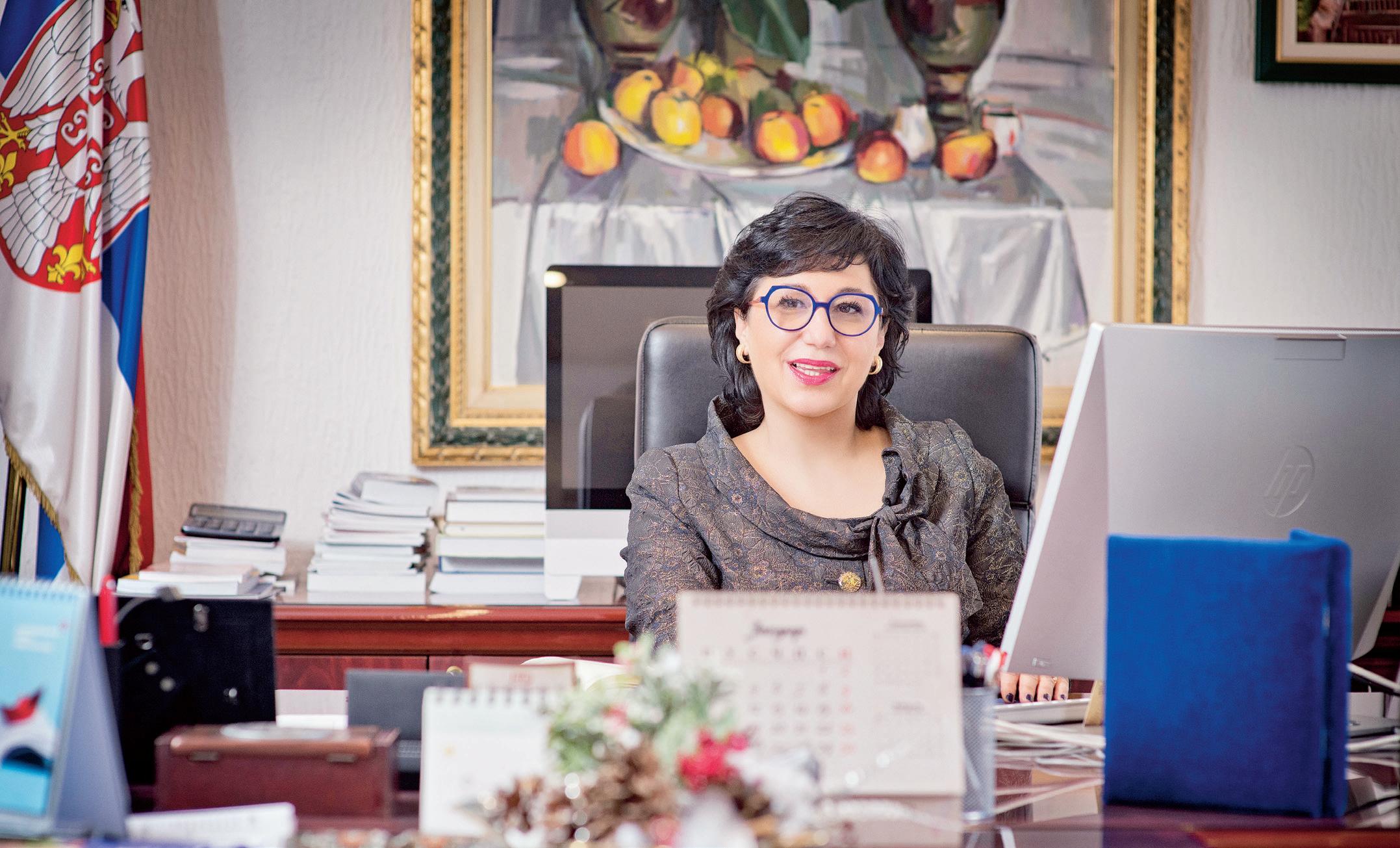
Serbia’s Tax Administration has recorded continuous growth in revenues from the collection of taxes over the last ten years. This success was achieved under the conditions of implementing the process of transforming the Tax Administration, which itself represents a priority and a very demanding activity for all employees, and is thus a challenge for maintaining the level of collection, says Dragana Marković, director of the Tax Administration of the Republic of Serbia.
“The best way to illustrate our work is to compare the level of collection from 2024 with the results of the collection achieved in the same period of 2014, immediately prior to the start of the implementation of
The Tax Administration has done plenty to develop risk analysis and select high-risk taxpayers for checks, as well as developing a palette of services for low-risk taxpayers
our first Transformation Programme,” notes Marković. “Compared to the first seven months of 2014, when tax collection totalled 1,032.4 billion dinars, the Tax Administration collected 1,696.3 billion dinars in the same period of 2024, or 155.5% more.”
Key activities that contribute to maintaining and improving the efficacy of the work of the Tax Administration include a commitment to the strategic goals of the Transformation Programme, the continuous strengthening of capacities, digitalisation as a prerequisite for future automation, the redesigning of operational processes, constant improvement of employees through training courses, workshops and education, and the improving of internal communication. “Also required are a clear vision, precisely defined goals, courage, tenacity and the determination to be consistent in your idea and to advance every day despite everything,” states our interlocutor.
To what extent can the Tax Administration alleviate the challenges of a lack of sufficient capacities?
–I would emphasise the situation in terms of staffing capacity as being the most important factor, whichdespite not being ideal at the moment - doesn’t have a significant negative impact on the execution of planned work and goals. The comprehensive process of digitalising and automating work contributes to speeding up certain activities of the tax administration and rendering them more efficient, as well increasing the Tax Administration’s volume of data and possibility of better risk analysis. This results in a more rational and far more effective control system of tax payers, which only controls those tax payers who have been assessed by risk analysis as having not fulfilled their legal obligations in the prescribed manner.
What are your key successes when it comes to combating the grey economy?
– With all its taxpayer control activities, the Tax Administration confirms its role as one of the key players in the fight against the grey economy in the Republic of Serbia. In recent years, The application of improved risk analysis criteria over recent years has led to the observing of a trend by which the amount of newly discovered income increases with a lower number of performed controls. The trend of reducing the number of controls is a result of intensive engagement in creating an environment that encourages voluntary compliance with regulations and the implementing of an entire set of measures with which the Tax Administration has stimulated compliance with tax regulations among those who didn’t previously comply, but also further motivated those who regularly service their obligations.
With the introduction of E-fiscalisation, as a project of strategic importance to the Tax Administration, we’ve taken a strong step forward together as a society in the fight against the grey economy and contributed to the general orderliness of society through better adherence to regulations. Thanks to the new fiscali-
With the introduction of E-fiscalisation, we’ve taken a strong step forward together as a society in the fight against the grey economy and contributed to the general orderliness of society through better adherence to regulations
Despite having slightly lower staffing capacities than we would like, we succeed in implementing planned work and reaching our goals by relying on digital resources
Working in the new building, with reformed operational processes, will enable the even more efficient and operational functioning of the Tax Administration
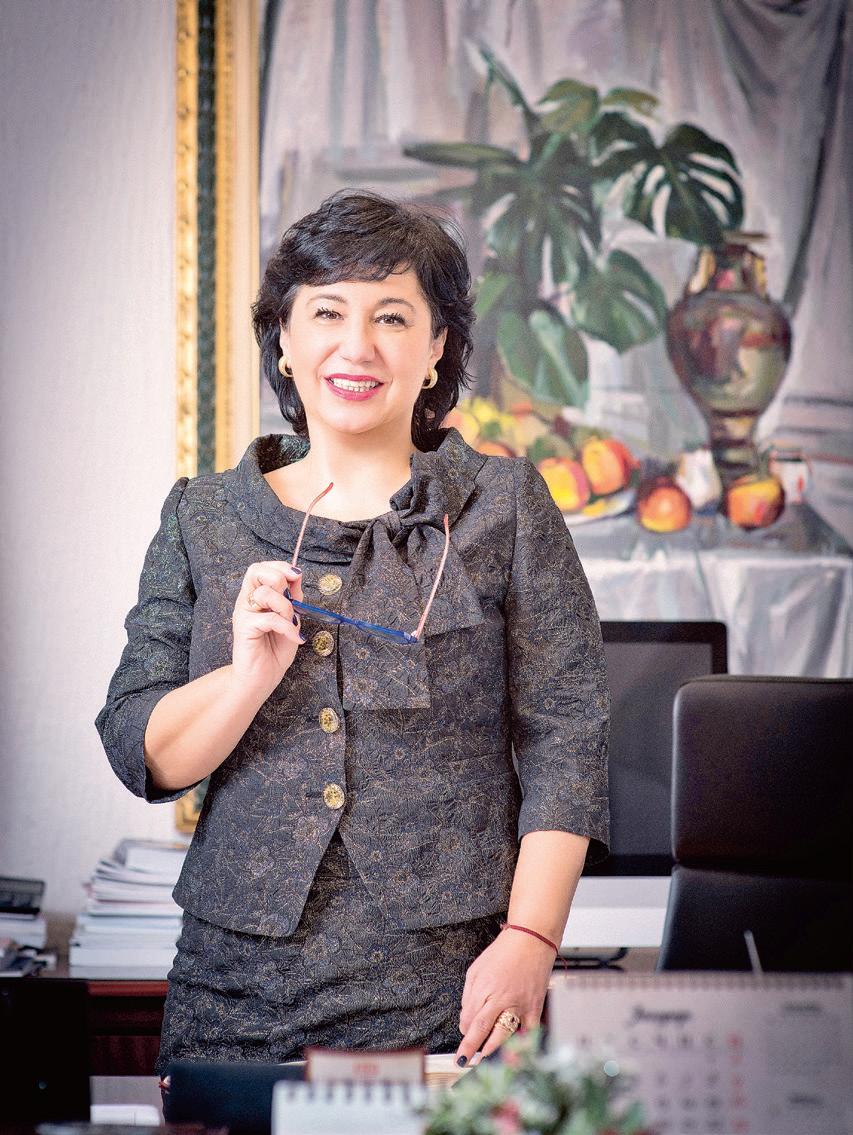
sation model, the Tax Administration today has at its disposal real time statistics on the turnover of goods and services in retail, which can be compared at the levels of territory, branch of industry and time of issuance. Newly discovered revenue amounting to more than 17 billion dinars was discovered and calculated in the first six months of 2024, which is up five per cent on the same period of last year. A total of 1,806 checks on the recording of turnover were conducted, resulting in 1,133 temporary bans on the performing of activities. Simultaneously, 508 criminal charges were filed in response to tax evasion worth nearly 13 billion dinars. The confirmed total amount of tax evaded per criminal report filed is up 63.2% compared to the same period of 2023. Moreover, 74 “laundering” and “phantom” enterprises were identified as helping regular businesses avoid their public revenue obligations and representing one of the chief motors of the grey economy.
Which technologies for the prevention of tax crimes are available to the Tax Administration and are you considering utilising artificial intelligence in risk analysis? – The Tax Administration has done plenty in terms of developing risk analysis and selecting high-risk taxpayers for checks. Staff apply and use a large number of criteria to assess the risk of each taxpayer, as well as various statistical methods, but also more sophisticated methods like big data analysis, machine learning and artificial intelligence. Moreover, the Tax Administration has also created an entire palette of services that
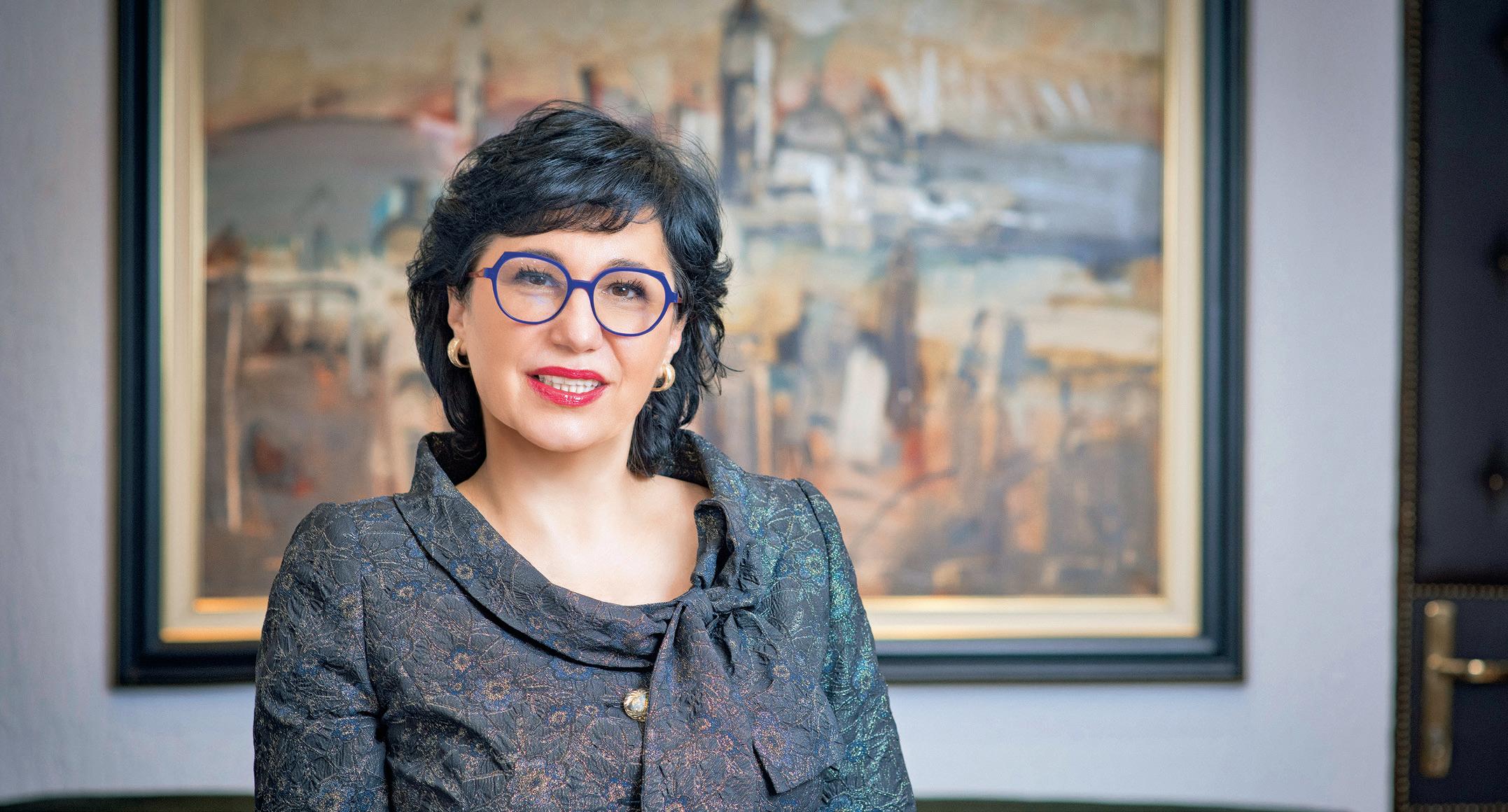
are applied in working with low-risk taxpayers. The development of the Advanced Analytical Platform in the System for Fiscalisation Management has ensured that checks are “targeted”, thereby ensuring increased efficiency in the work of the Tax Administration.
The headquarters of the Tax Administration of Serbia relocated to its own premises last year, while the process of improving the Administration’s spatial organisation as a whole is currently underway. What do these changes mean for your work?
– This is a nice opportunity for us to boast about the relocating of the Tax Administration to a new “taxsmart” building, representing a specialised facility that was built in accordance with the highest international standards and harmonised with the needs of personnel, thus achieving an important goal within the significant direction of reforms linked to the centralisation of work. The fact that this is the first time in history that the Tax Administration of the Republic of Serbia has a dedicated workspace of its own, essentially its own building, testifies to how big a development this is.
When we launched the Transformation Programme back in 2015, the Tax Administration in Belgrade operated at 28 different locations. Even the headquarters were spread over seven locations, while individual branches were housed at two to three locations, which hampered communication and coordination quite a lot, as well as increasing operational costs. Working in the new building, with reformed operational processes,
We work constantly to uncover so-called laundering enterprises that help regular businesses avoid servicing their public revenue obligations
will enable the even more efficient and operational functioning of the Tax Administration.
The Tax Administration has undergone reform successfully in the previous period. What’s the most important subsequent step when it comes to improving the efficiency of the Administration’s work?
– The Tax Administration currently finds itself pursuing three strategic goals defined by the Transformation Programme. Next are activities related to further capacity building, as well as the continuation of the process of procuring a tailored commercial solution and the implementation of a new business model, preceded by the redesign of operational processes. What’s certain is that we will continue working on digitalisation, which is a prerequisite for the automation of tax processes that the Tax Administration is striving towards. The implementation of an all-encompassing digitalisation and automation process will contribute to the creation of a modern and efficient institution, which ensures sustainable and predictable public finances, is “invisible” to the taxpayer and provides a digital service adapted to the taxpayer at all times.
Inos Balkan conducts its operations in full compliance with all legal frameworks, strict corporate principles and values, which represent the cornerstone of our business ~ Mirjana Radić
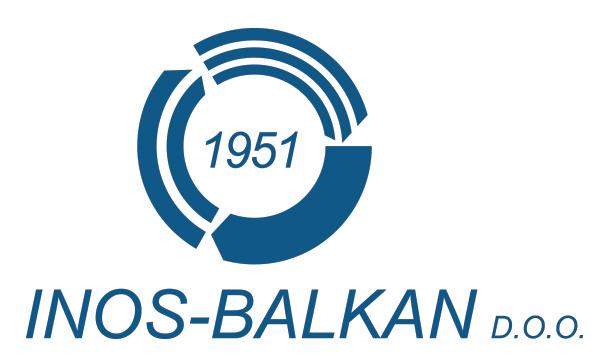
Speaking in this interview, Inos Balkan Finance Director Mirjana Radić explains what’s crucial for establishing a leadership position in Serbia’s metal recycling sector, but also why waste reduction, the reuse of materials and recycling are so important.
Have your ethical practices enabled you to become the leading metal recycling company in Serbia?
— Our organisation has always prioritised full compliance with all legal frameworks and strict adherence to our corporate principles and values. This commitment has been the cornerstone of our operations, ensuring that we conduct every aspect of our business with the highest level of integrity and responsibility.
By upholding these standards consistently, we have built a solid reputation in the industry. Our dedication to ethical practices has earned us the trust of our clients, suppliers and stakeholders in general, which has been crucial in establishing our position as a leader of the metal recycling sector in Serbia.
Moreover, our commitment to environmental sustainability reflects our corporate responsibility. We believe that leading the industry extends beyond business success—it is about making a positive impact on the environment and the communities we serve. Our sustainable practices have
further solidified our leadership position in the metal recycling industry.
Despite noticeable progress, the Serbian market has a significant need for reform. How, and to what extent, can successful companies like yours, as well as associations like the Foreign Investors Council, contribute to this?
— Despite the progress achieved, the Serbian market still faces significant challenges that require ongoing reform. We understand that these reforms are essential
The Foreign Investors Council serves as a powerful platform where businesses can come together to advocate improvements in the regulatory framework
for the market to achieve its full potential and support sustainable growth.
Organisations like ours play a key role in driving these much-needed reforms. By setting high standards in areas like compliance, transparency and innovation, we not only elevate our own operations, but also set a benchmark for other players in the industry.
In addition to our individual efforts, it is crucial for us to collaborate with organisations like the FIC. The FIC serves as a powerful platform where businesses can
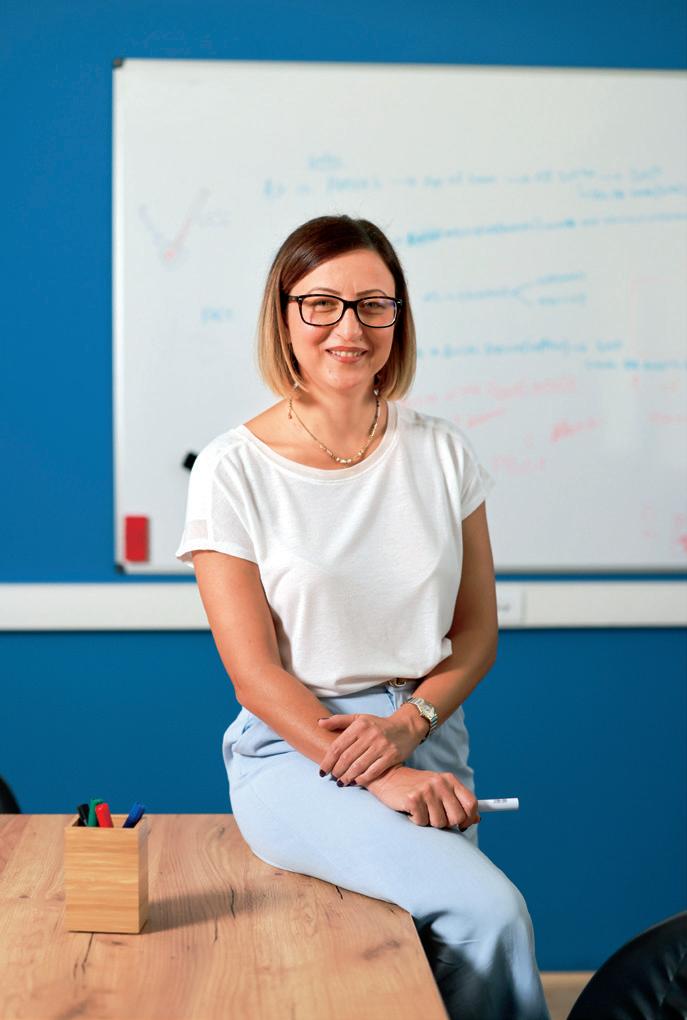
come together to advocate improvements in the regulatory framework. Through such partnerships, we can amplify our collective voice and work towards creating a more conducive business environment that benefits everyone involved.
Circular economy principles are shaping future business models across the world, and particularly in the EU. Does this mean that new products, infrastructure, equipment and services are being harmonised with the principles of reuse and recycling?
— The five megatrends shaping the modern world — urbanisation, climate change, technological advancements, demographic shifts and globalisation — are deeply interwoven with circular economy principles. The circular economy provides a framework for addressing the challenges posed by these trends, while creating opportunities for sustainable development and lasting economic resilience.
These practices emphasise the importance of reducing waste, reusing materials and recycling. As these principles take hold, we see a significant transformation in business models across various industries. New products, new distribution channels and new raw materials are shaping a totally different tomorrow.

The EU remains firmly committed to enlargement, and Europe’s Growth Plan for the Western Balkans, including Serbia, underscores this dedication. This plan represents a concrete effort to reinvigorate the enlargement process around the region
“It must be clear to everyone that there is now real momentum for the Western Balkans, including Serbia, to advance on the road to becoming EU members,” says Emanuele Giaufret, Ambassador and Head of the European Union Delegation to the Republic of Serbia.
Speaking in this interview, he underlines the fact that, in the current geopolitical context of Russia’s unprovoked and unjustified war of aggression against Ukraine, enlargement has become one of the EU’s top priorities. “President von der Leyen has announced a dedicated Commissioner for Enlargement in the next Commission, as well as stepping up the EU’s
internal preparedness to welcome new members,” says Giaufret.
How would you describe the current momentum in Serbia’s EU accession process? What key milestones do you see as necessary for Serbia to intensify accession negotiations?
— The EU is serious about enlargement and our Growth Plan for the Western Balkans, including Serbia, demonstrates that commitment. Through this Plan, we want to offer the Western Balkans some of the advantages of EU membership in advance of accession. In order
for Serbia to benefit from this offer, it needs to deepen reforms on the EU path, which are also key to increasing investor confidence, including continuing to build an independent and efficient judiciary, ensuring sound public procurement and state aid practices, reforming the energy sector and stepping up the fight against corruption. Overall, progress in rule of law areas – like the functioning of democratic institutions, the fight against corruption, freedom of expression and an independent judiciary – will continue to determine the overall pace of accession negotiations, together with the normalisation of relations with Pristina under the EU-facilitated dialogue and alignment with the EU’s restrictive measures. This means that we won’t be able to open the remaining negotiation clusters and chapters without progress in these areas.
How would you evaluate current efforts towards harmonising domestic regulations with European standards?
— Serbia has come a long way in terms of legislative alignment with the EU in many areas, but efforts need to be reinforced, not least because the process of legislative alignment is a “moving target”. The EU and its legislation evolve over time and it isn’t easy for any Government to keep up the tempo in this regard. Serbia’s Ministry of European Integration is doing a great job of maintaining and updating the plan of the required legislative activities in the context of the EU accession process in a document called the National Programme for Adoption of the Acquis. The relevant government ministries proposing the legislation need to step up their efforts in terms of meeting the targets specified in this plan over the coming years to ensure further alignment and harmonisation with EU legislation. The European Commission remains, as always, committed to helping the authorities with this task.
What do you perceive as the major advantages of, and risks to, investments and foreign trade in Serbia?
— Serbia has proven to be a very interesting investment destination over previous years, with record-breaking FDI levels and trade volumes growing constantly. In addition to Serbia’s well-known advantages as an investment destination and trade partner – such as its geographical position, labour force quality and the fact that it is by far the largest economy in the Western Balkan region, with ample growth potential –Serbia’s EU accession process is also a very important parameter for investment decisions. The EU accession process provides a stable anchor, setting the country on a predictable reform path, which is something that investors and businesses need the most: predictability, transparency, equal treatment and fair competition.
This is what I keep hearing from business leaders and CEOs. They want to see Serbia on a stable path towards EU membership, as reassurance for their investment decisions and justification for their decisions in the eyes of their shareholders. It is also important to continue improving the business environment for SMEs, as they play a very important role in integrated value chains.

It must be clear to everyone that there is now real momentum for the Western Balkans, including Serbia, to advance on the road to becoming EU members
What I keep hearing from business leaders and CEOs is that they want to see Serbia on a stable path towards EU membership, as reassurance for their investment decisions
We urge Serbia to improve public procurement and the management of state-owned enterprises, reduce mismatches in labour market skills, boost agricultural competitiveness and enhance energy efficiency
The Serbian Government insists that Serbia is working hard to keep up the pace in order to prove its readiness to open Cluster 3. After a considerable deadlock, do you believe we are on the verge of good news?
— As you know, from the technical standpoint, the European Commission has already recommended the opening of Cluster 3 three times in its annual reports. The final decision is nevertheless in the hands of EU Member States, which expect more efforts on some key issues.
Specifically, while progressive alignment with the EU’s foreign policy has always been a requirement, it is clear that the Russian war of aggression against Ukraine has increased the relevance of this aspect in the EU accession process significantly. This is because alignment in the field of foreign and security policy is much more than percentages or technical issues. It is understood as an indicator that we can count on future members of the EU family to stand with us in defending our shared values and the security of our continent, which is at stake with Russia’s full-scale invasion of Ukraine. In this respect, we very much welcome the support given by Serbia to the Ukrainian people in various forms: direct in-kind and financial support, but also joining us in multilateral fora in defending international law in the vast majority of cases. The latest example is Serbia’s vote in favour of the UN General Assembly Resolution on the safety and security of Ukraine’s nuclear facilities.
More broadly, EU member states are keen to see a consistent commitment from Serbia as a whole to its EU path and acceleration in the implementation of EU-related reforms. This eagerness to see enlargement progressing faster is reflected in the approval in record time of the EU Growth Plan and its related Reform and Growth Facility. Let me recall once more that the very aim of this unprecedented initiative is to boost the process and ensure the Western Balkans enjoy some of the benefits of EU accession before they actually join the Union, provided they deliver on key reforms. EU member states also want to see the impact of the EU accession process and EU assistance reflected
* This designation is without prejudice to positions on status, and is in line with UNSCR 1244/1999 and the ICJ opinion on the Kosovo declaration of independence.
more objectively in the public discourse and media. Finally, progress on the normalisation of relations with Kosovo* is of paramount importance to Serbia’s EU accession path, in addition to its significant contribution to regional stability, security, economic development and integration. The Agreement on the Path to Normalisation and its implementation annex have become part of Serbia’s Chapter 35 commitments, and therefore represent an obligation for Serbia on its EU accession path. Furthermore, Serbia and Kosovo need to engage constructively in the EU-facilitated Dialogue, as a necessary precondition for benefiting from the Growth Plan.
The swift drafting and adoption of the Growth Plan for the Western Balkans signals the strong political will of EU institutions and member states regarding enlargement policy. What is now expected from Western Balkan policymakers to ensure the plan’s full implementation?
— Indeed, Enlargement tops the EU’s agenda and there is a clear sense of urgency in the EU to make EU enlargement to the Western Balkans and other aspiring countries happen. I firmly believe that Serbia, and the Western Balkans as a whole, should seize and
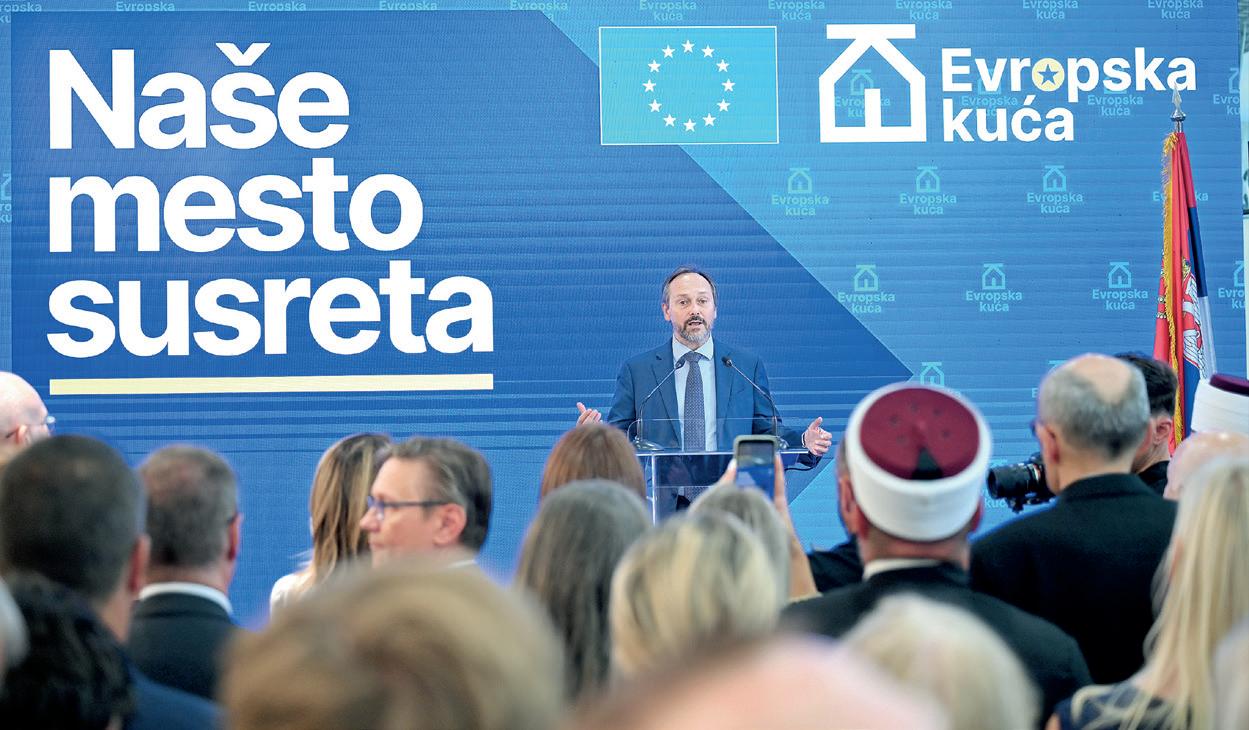
— The first payment, equating to around 7% of the total, will be made following the adoption of the Reform Agenda. Subsequent payments will require the assessment of the implementation of the Reform Agenda itself. The priority areas for the next four years are clear: improving the business environment and private sector development; implementing the Green and Digital Transitions; developing human capital; and progressing on fundamental reforms.
In the absence of progress in areas like the rule of law, the fight against corruption, freedom of expression and an independent judiciary, we will not be able to open the remaining clusters and chapters
make use of this crucial moment. The time is now. The steps ahead are clear.
The Growth Plan for the Western Balkans is the practical translation of the political will to inject new momentum into the enlargement process in the Western Balkans.
Of the total of six billion euros, about €1.6 billion has been mobilised for Serbia. Half of these funds will go directly to Serbian citizens, as budget support. The other half will be earmarked for strategic infrastructure through the Western Balkan Investment Framework. The release of these funds will be tied to progress on the Reform Agenda, with progress to be evaluated every six months and funds released. Each reform will have its own “weight” and will unlock certain financial compensation.
Could you provide details regarding the preparation and objectives of the first tranche for Serbia under the framework of the Growth Plan?
We would like to see Serbia tackle issues like the need for improved and more competitive public procurement practices; improved management of state-owned enterprises; reducing the skills mismatch on the labour market; a more competitive and sustainable agricultural sector; improved energy efficiency, and more. Underpinning all of this are measures to ensure the independence of the judiciary, the proper functioning of democratic institutions, the fight against corruption and areas like minority inclusion. These are all key issues that can either open or close the door for quick, dynamic and sustainable economic growth.
The design is such that if a country tackles these issues, it has a triple benefit: it unlocks its economic potential, receives a significant injection of additional EU funding for budgetary expenses and infrastructural development, and progresses on its EU integration path.
Overall, it is essential for the Serbian authorities to ensure proactive and objective communication regarding the EU, which is Serbia’s main political, trade and economic partner by far. The EU Delegation to Serbia will continue playing an active role in this regard, as well as outlining the opportunities and benefits that the EU integration process brings to Serbia, even before EU accession, including during the Opportunity Week this 20 th to 27 th September, which will provide a place and time for people in Serbia to get to know what the EU has for them.
Significant references and collaborations with leading companies, as well as with the Government of Serbia, aren’t the only reasons why SGS holds a leading position in the TIC industry, says Managing Director Miljan Milević
Speaking in this interview, SGS MD Miljan Milević explains why both domestic and foreign investors engage SGS Belgrade when they want quality, reliability, adherence to deadlines and the highest standards of professional conduct. He also discussed corporate culture, governance structures, sustainability and other current topics.
How would you explain the success of your company?
— For over 145 years, SGS has provided services and solutions of the highest level and quality across all industries. Our continued success is ensured by our commitment to sustainability, ongoing innovations in digital solutions and new technologies, managing increasingly complex supply chains, and keeping up with ever-stricter regulatory requirements. What makes us unique in the TIC industry is our unrivalled network, which covers almost all industries and geographical regions. We are truly a genuine partner to our clients, supporting them worldwide while insisting on independence and impartiality. Integrity is the foundation of SGS. As leaders of our industry, we satisfy the highest standards of professional conduct, which are embedded in our Code of Integrity. The trust of our customers and stakeholders is key to our success.
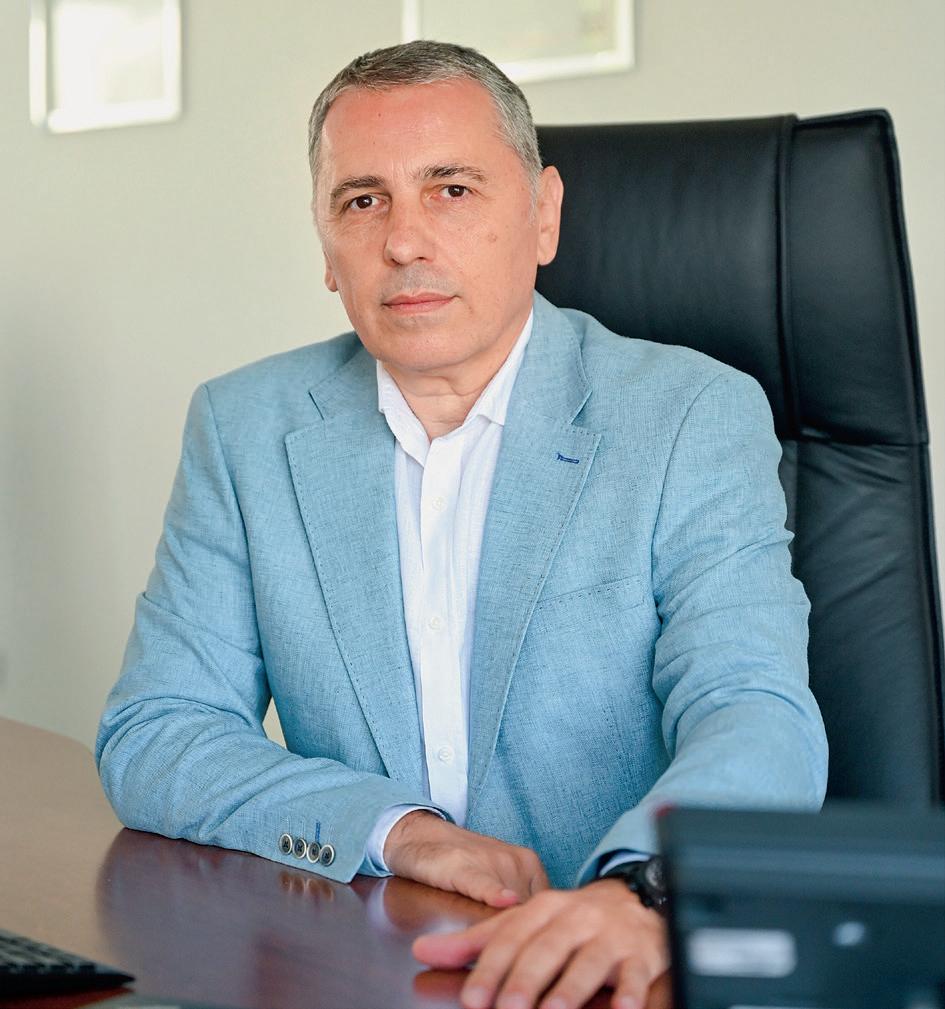
Could it be said that sustainability is embedded in your corporate culture and the way you operate?
— Unequivocally so. SGS’s strong governance structure ensures that sustainability remains at the heart of all our activities. The company’s top management is actively involved in monitoring how the company’s sustainability strategy is implemented, and we regularly report on this to all stakeholders. We are the first company in the TIC industry to publish a double materiality assessment, in line with the requirements of the Corporate Sustainability Reporting Directive (CSRD). CSRD significantly increases the amount of information that companies must disclose on material or other relevant sustainability issues. In addition to being highly attentive to our own
Through the synergy of international and local experience and expertise, we support the delivery of services at every stage of a project, thereby minimising risk
sustainability strategy, we enable and assist clients in integrating sustainability into their business practices, aligning with the UN’s Sustainable Development Goals to create comprehensive value.
What role does your company play in the numerous capital investments in Serbia’s infrastructure and energy sectors?
— There is hardly a country or area of the economy where we cannot provide adequate services at the highest professional level and significant support to investors in terms of successfully managing and completing each project. Through the synergy of international and local experience and expertise, we support the delivery of services at every stage of a project, thereby minimising risk. SGS provides construction supervision, project management, Owner’s Engineer, FIDIC engineer, technical inspections, compliance checks with regulatory requirements and quality control during the production and installation of equipment. Foreign investors who hire companies in Serbia to manufacture equipment for projects worldwide also engage SGS Belgrade. Among the clients with which we’ve collaborated successfully on capital projects are EPS, Hitachi Italy, Deutsche Bahn, Stork Netherlands, Barry Callebaut factories, Continental and others.
The lawyers of the Nikčević Kapor Law Office gained their first experiences in construction law while working at Energoprojekt on major projects in the country, around the region and on international markets, explains partner Vlado Kapor

Wespoke with the Nikčević Kapor Law Office’s Vlado Kapor about trends in the construction sector, the specialisation and segmentation of construction law, the permit issuance process, the slow process of resolving property law matters, and the expectations and demands of foreign investors. Kapor believes that this strong investment cycle will last for many years to come.
The construction sector is always in the focus of both the business sector and the population. It seems that this has been particularly relevant in recent years, due to rising prices and demand for apartments. How do you see the construction sector evolving over the next five to ten years? — Belgrade is already in the midst of a strong investment cycle, which has a significant impact on demand for apartments and, in turn, rising prices. This cycle is expected to last until 2027, when the EXPO event will take place, further motivating investment in real estate and infrastructure. The period after that will depend on how much investment Serbia attracts at that time and on the development of global events. At this moment, we certainly believe that energy and infrastructure projects will remain key drivers. On the other hand, the construction sector is evolving rapidly and becoming increasingly complex. Within this evolution, we observe the specialisation and segmentation of construction law in accordance with different sectors—energy, infrastructure and industry. Construction law often intersects with merger and acquisition transactions, as
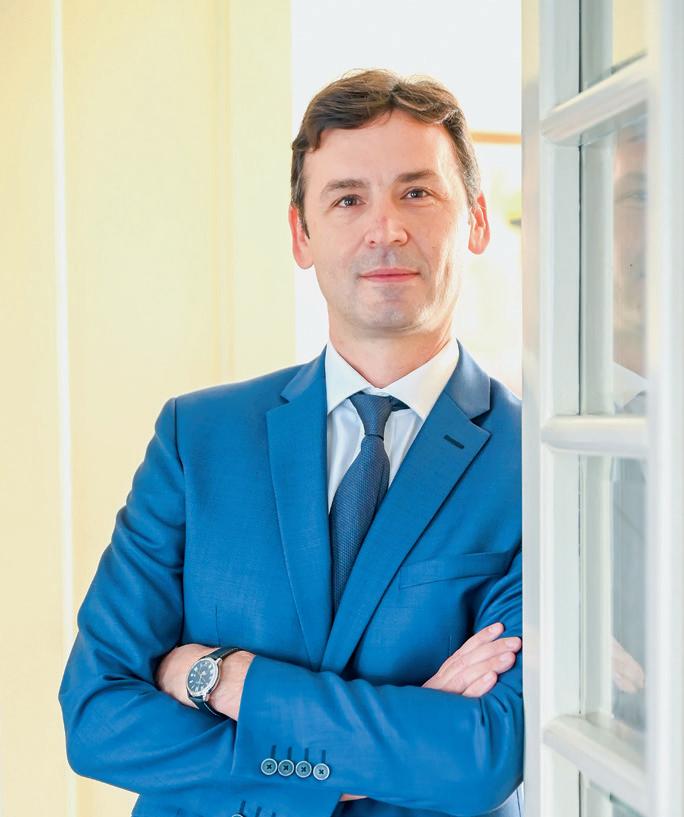
Construction law often intersects with merger and acquisition transactions, as real estate and land are increasingly viewed through the lens of corporate acquisitions
real estate and land are increasingly viewed through the lens of corporate acquisitions. Our initial experiences in this field were gained while working at Energoprojekt on major projects in the country, around the region and on international markets, which allowed us to develop a deeper understanding of the requirements and needs of various industries that are now becoming increasingly relevant in Serbia.
Is local law facing competition from abroad? Can the local market meet the demands of foreign investors?
— Competition from abroad is constant, especially in complex international transactions which are always accompanied by global law firms, at least when large companies are involved. However, the local legal market is keeping pace with trends and meeting market demands, especially in sectors that are directly linked to investment. This includes the construction and infrastructure sectors, energy, M&A, banking, and compliance with international regulations. Foreign investors, particularly in the banking sector, are increasingly seeking legal services that cover complex aspects like compliance with international sanctions and data security. We are all witnessing that, under the influence of current global events, business in the banking sector has perhaps become the most complex, and compliance with the requirements of the banking system is reaching a higher level. Local lawyers strive to provide comprehensive support to foreign investors, as we have developed flexibility and an understanding of market needs through our experience with domestic and international clients. This is particularly true in the area of permitting, where local legal support is indispensable.
You mentioned permitting. Are we more efficient in issuing permits and handling administrative procedures? How do we compare to other countries in the region?
— Permitting has become a specialised service that requires both legal and technicaladministrative knowledge. The permit issuance process in Serbia has improved over the past few years, but we still lag behind some countries of the region. We believe that the slow resolution of property law matters,
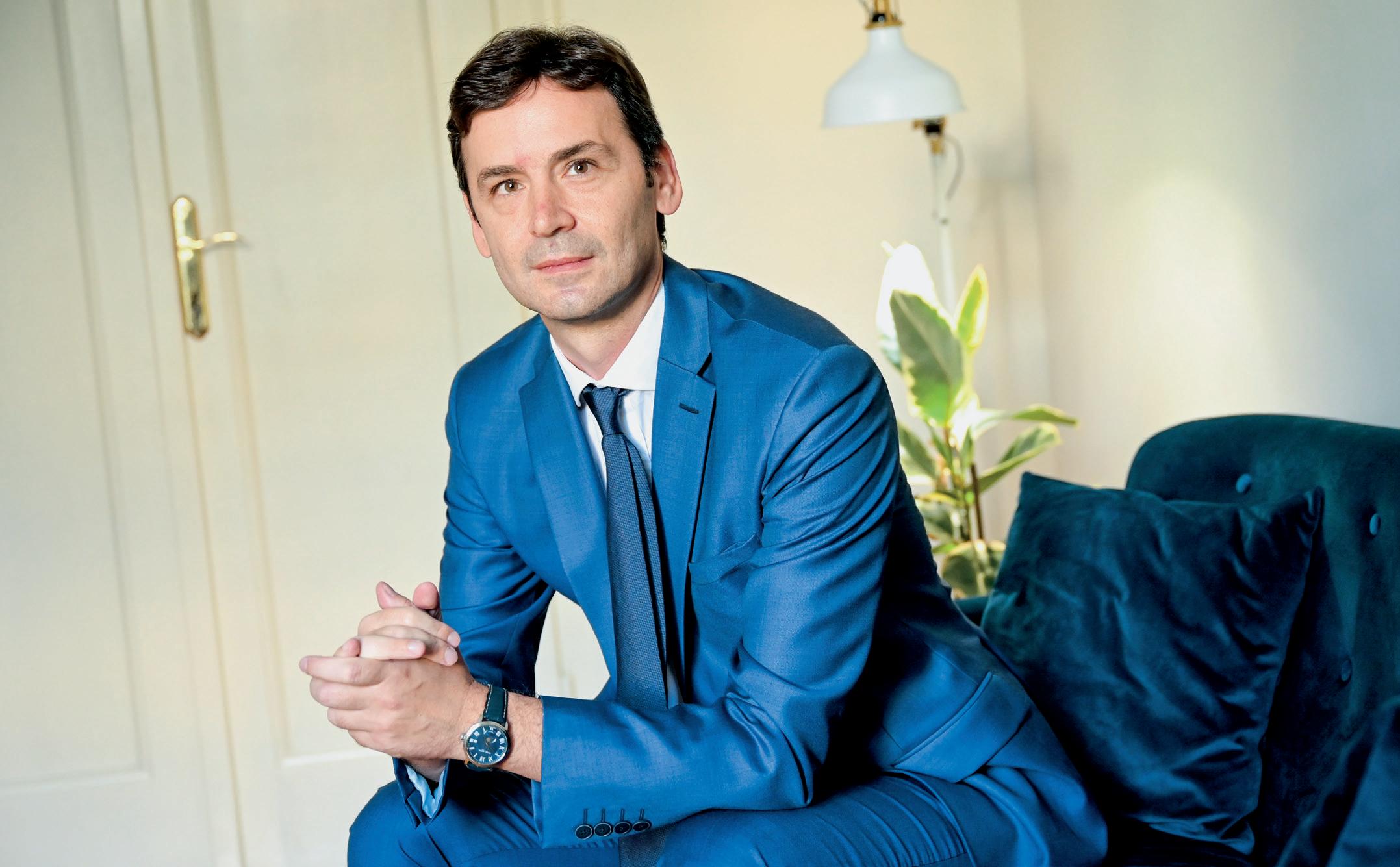
which often delays project implementation, remains the key obstacle. Although permits can be obtained quickly once all conditions have been met, property law issues preceding permit issuance are still resolved slowly and represent a significant challenge. We believe that improvements and modernisation in the work of the cadastre will enable these obstacles to be overcome more quickly.
What is the efficiency of the courts? Is the judicial system adapting to new trends?
— Serbia’s judicial system faces numerous challenges, especially when it comes to complex construction and commercial disputes. Modern contracts, such as FIDIC contracts, require specific knowledge and practice, and the judicial system still lacks sufficient mechanisms to resolve such disputes quickly and efficiently. With a few exceptions, in most cases courts lack the conditions for specialisation in resolving disputes arising from complex international contracts. It should be noted that the situation is not much better in other countries of the region, or even further afield. The introduction of specialised court divisions dedicated to construction disputes
The introduction of specialised court divisions dedicated to construction disputes would contribute to more efficient problem-solving in this area
would contribute to more efficient problemsolving in this area. Additionally, alternative dispute resolution, such as arbitration, is becoming increasingly prevalent, as it allows for faster and more efficient results. We strive to conduct our work in a way that provides clients with a comprehensive approach to dispute resolution, whether through court proceedings or arbitration.
Your firm has extensive experience working on major infrastructure projects, particularly in the construction sector. What specific challenges do you see when working with foreign investors on such projects,
and how does your firm contribute to successfully overcoming these challenges? — Foreign investors often face challenges in understanding local regulations and resolving property law issues. Working on significant infrastructure projects in various sectors, including energy and construction, has enabled us to provide foreign investors with comprehensive support—from resolving property law matters and obtaining permits to negotiating and drafting contracts, as well as day-to-day project management. One of our specific resources is a dedicated team of engineers and technical staff who specialise in handling the everyday challenges of project management. The combination of legal and technical knowledge allows us to identify risks in the early stages of a project, alert clients and their contractual partners to potential problems, and provide timely guidance on possible outcomes, in terms of administrative, economic and technical risks. For example, over recent years we’ve witnessed global restrictions on movement, goods and services trading, price escalations and project delays, most of which are beyond the control of the contracting parties.
Very clear steps exist that would enable Serbia to boost its economic growth rates. They imply the implementing of measures for switching to a fully-fledged market economy, strengthening human capital, institutions and governance, as well as accelerating trade with the region and the EU
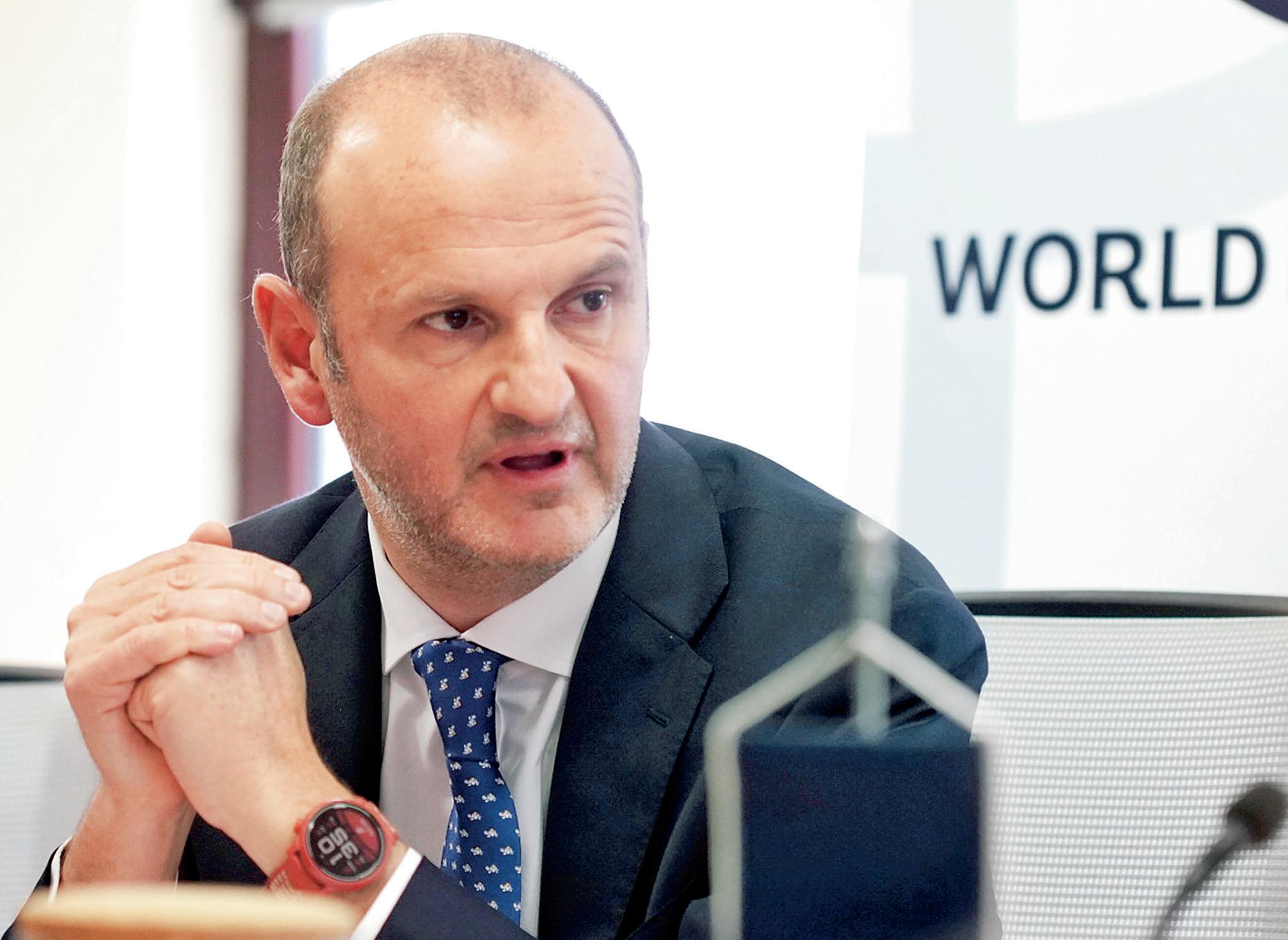
Serbia has achieved remarkable macroeconomic stability, sustained economic growth and improved living standards in recent years. “Yet, the country is not converging quickly enough with the EU,” says Nicola Pontara, World Bank Country Manager for Serbia, before illustrating his point by insisting that Serbia would only converge with the EU’s average per capita income in 2074 if it continues to grow at an
All public investments should be prioritised on the basis of alignment with the country’s strategic goals, being climate-smart and generating robust economic rates of return
average annual rate of 3.2% – the country’s average growth rate over the previous five years.
“We think that Serbia’s annual GDP growth rate could double if ambitious structural reforms are implemented. How? In our 2024 Policy Notes, we highlighted four areas for action: (i) conduct “second generation” reforms to transition to a fully-fledged market economy; (ii) boost human capital to increase productivity, which has stagnated; (iii) strengthen institutions and governance; and (iv) accelerate trade and integration with the EU and the region.”
“At the same time, warns our interlocutor, Serbia will have to embark on a green transition so that growth is not only faster, but also sustainable. The country’s heavy reliance on fossil fuels jeopardises both the quality of its environment and the international competitiveness of the economy – calling for gradual but firm efforts on decarbonisation, while preserving energy security,” says Pontara.
What kinds of long-term strategies are needed to sustain recent economic successes?
— The first condition is to maintain the hard-won macroeconomic stability, but that isn’t sufficient for rapid and sustained growth. Let me go back to the four policy areas. Second generation reforms refer to policies aimed at ensuring a conducive business environment; improving competition in product markets; promoting deeper integration of financial markets; attracting FDI in higher value-added sectors; and placing SOEs on a financially sustainable path. On the human capital front, it would be important to raise the labour force participation rate of women, young adults and ethnic minorities; safeguard and increase public spending on human development; and strengthen the skill set of the labour force during the lifecycle. Improvements on the institutional front can result in greater volumes of private investment and ensure public investment is geared towards environmentally sustainable projects, generating robust economic returns. I have also mentioned integration with the European Single Market and the region. For instance, the implementation of ‘green lanes’ at EU borders can foster the development and resilience of international supply chains, notably in manufacturing, where Serbia has a comparative advantage. Moreover, the completion of the Common Regional Market, supported by CEFTA, can further increase trade volumes. Financial integration, through participation in the SEPA, can reduce the cost of doing business and increase both the efficiency of financial services and the attractiveness of Serbia to investors.
With large investments planned under the EU Growth Plan for the Western Balkans, how can
Serbia maximise the benefits of public investments for its economy?
A heavy reliance on fossil fuels jeopardises both the quality of the environment and the international competitiveness of the country’s economy -- calling for gradual but firm efforts on decarbonisation
Serbia needs to increase the proportion of public investment with the conducting of regular public investment management procedures, rather than exceptional ones
Serbia would do well to continue improving the business environment so that greater amounts of private sector investment can be mobilised in support of economic growth
— Under the Growth Plan for the Western Balkans, Serbia could benefit from up to €1.7 billion until 2027. There are also big infrastructure investments announced by the government in the context of the “Leap into the Future – Serbia 2027”. What we have emphasised is that all public investments should be prioritised on the basis of alignment with the country’s strategic goals, being climate-smart and generating robust economic rates of return. We are working with the authorities to help them strengthen Serbia’s Public Investment Management (PIM) system. When they work well, PIM systems can really make a difference in ensuring efficiency, transparency and accountability in the use of public resources, while maximising benefits for citizens. The goal for Serbia is to increase the proportion of public investment that is carried out to regular PIM procedures, rather than exceptional ones.
What should Serbia’s long-term approach be when it comes to combining economic growth with environmental sustainability?
— The World Bank just published a comprehensive study focusing on the nexus between development and climate – the Country Climate and Development Report (CCDR). Estimates from the CCDR suggest that, on the mitigation front, the incremental investments required for Serbia to meet net zero emissions by 2050 would be USD 10.4 billion. This is equivalent to 1.6% of GDP annually. On the adaptation front, costs are estimated at USD 21.5 billion by 2050, equivalent to 2.3% of GDP per year – focusing mostly on the water and transport sectors. In the absence of significant investments in adaptation, the impact of climatic events could reduce GDP by 16% by 2050. Considering the magnitude of these incremental investments, moreover, we think that the role of the private sector is likely to be prominent and should be facilitated. It would be important for Serbia to meet the targets of a 40.3% reduction in emissions by 2030 (compared to 1990), as per its updated Nationally Determined Contribution. Beyond 2030, significant transformations would be required, including the decommissioning of coal-fired electricity generation by 2040, a substantial increase in the penetration of renewables, transformation of transport and buildings sectors, and significant shifts in industry, including the use of carbon capture and storage.
What are some effective strategies for developing infrastructure that enhance Serbia’s resilience to climate change?
— It would firstly be important to ensure that the PIM system is robust, and that most public investments ‘transit’ through it – this is key to ensuring that projects are chosen based on their environmental sustainability and that they support economic growth. Secondly, Serbia can mobilise a wide array of hybrid financing and exploit the synergy between public and private capital for public infrastructure – what we mean here is public-private partnerships (PPPs), blended finance programmes and local currency financing facilities. Infrastructure investment in Serbia to date has been conducted through public funds: the government’s reliance on budget allocations and loans from third parties can be complemented by increased private investment and diversified sources of financing. We have some successful examples of PPPs, such as Belgrade’s Nikola Tesla Airport and the Waste to Energy Project at Vinča. Moving forward, attracting some funding for infrastructure from the private sector could lessen the impact on public finances and ensure consistency with the deficit and public debt targets under the new fiscal rule.
How can Serbia’s government work together with international organisations and the private sector in pursuing green transition goals?
— The green transition is not something that governments can do alone. It will require public commitment and funding, for sure, but also much more active participation from the private sector and the support of the international community. In Serbia, things are beginning to move. We have seen some good progress on the renewable front, with the first auctions launched in 2023. But there are challenges that need to be tackled. Serbia’s distorted price signals and policies on energy and other environmentally harmful activities drive its high environmental footprint. Prices that do not factor in environmental costs to society encourage businesses and households to waste energy, water and other resources, and decrease their own financial costs by increasing environmental costs, which are borne by society as a whole. It is for these reasons that we’ve suggested the authorities introduce carbon pricing instrument(s) in carbon intensive sectors likely to be impacted by the EU Carbon Border Adjustment Mechanism, such as ferrous metals. Carbon pricing would help reduce GHG emissions, enable Serbia to prepare for the EU CBAM and generate domestic revenues. The role of international organisations, such as the World Bank, is not only to provide competitive financing, but also to help the government think through and implement green policies via the provision of technical assistance and analytical work.
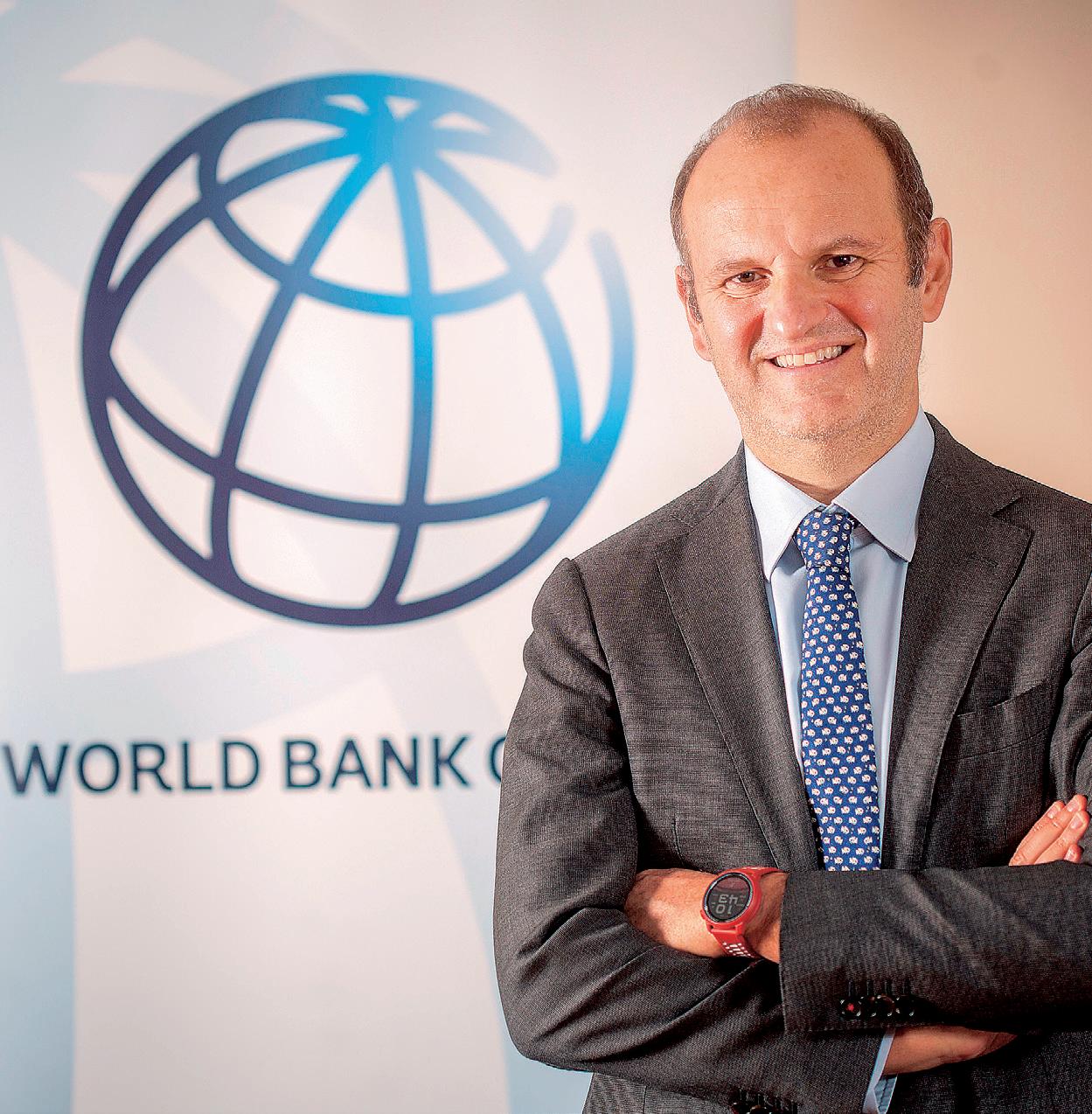
In the absence of significant investments in adaptation, the impact of climatic events could reduce Serbia’s GDP by 16% by 2050
It seems that better conditions for private investments are needed across the Western Balkans. What specific measures should Serbia take to address this long-standing issue?
— Serbia would do well to continue improving the business environment so that greater amounts of private sector investment can be mobilised in support of economic growth. Key policy measures here include, but are not limited to, fostering greater predictability of the legal and regulatory framework for new and existing businesses; continuing to streamline and digitalise Government-to-Business services; and improving the efficiency of commercial courts in settling cases, bankruptcy procedures and other disputes. There is room to strengthen incentives for private companies to grow and innovate; attract higher quality FDI in higher-value-added sectors, more efficiently integrate local companies into global value chains and increase their productivity.

INVESTMENT BANK HEAD OF REGIONAL REPRESENTATION FOR THE WESTERN BALKANS
Serbia has clearly defined decarbonisation goals in the energy sector, and, with the support of international partners, can also advance in other sectors, says Alessandro Bragonzi, outgoing Head of Regional Representation for the Western Balkans at the European Investment Bank.
“I believe that Serbia’s path to decarbonisation is driven by laudable ambitions, with concrete measures adopted so far in the energy sector, such as the Integrated National Energy and Climate Plan, amendments to the Law on Energy, and the Renewable Energy Law, as well as strategies for low-carbon development and renovations of public buildings. In 2023, the country successfully launched and awarded its first Contracts for Difference auction for renewable energy production from wind (400 MW) and solar (50 MW) and is now gearing up for its second auction,” explains the departing EIB boss for our region.
Bragonzi believes that, with financial and technical support provided by the European Commission and the EIB, Serbia is gradually advancing by strengthening its multimodal mobility with strategic investments in rail networks, smart urban mobility and waterborne transport, all of which are providing more sustainable alternatives to highly polluting road transportation.
When it comes to other sectors, Serbia is advancing its harmonisation with relevant EU legislation, while it is yet to fully address the implications of the Carbon Border Adjustment Mechanism (CBAM) – a tool aimed at fair pricing of the carbon emitted from countries outside the European Union during the production of carbon-intensive goods that subsequently enter the EU. CBAM will come into effect as of 2026, and Serbia can use this transition phase to further stimulate the decarbonisation of its industry.
How does the EIB support Serbia’s green transition; and what do you consider as best practices established in the country?
— As the EU climate bank, the EIB has committed to substantially increasing its lending for the green transition and environmentally sustainable projects, not only within EU member states, but across the world. In Serbia, our decades-long support has ranged from large-scale

infrastructure projects to credit lines supporting private companies – particularly small and medium-sized enterprises– via partner commercial banks and national institutions, as well as advisory support for public entities. More recently, by signing an €80 million loan agreement, we began financing the installation of about 400,000 new advanced electricity meters for Serbia’s public distribution company (EDS) and its users, as part of a wider electricity grid modernisation programme. These new and more sophisticated meters will help reduce electricity losses, enhance collection rates and better integrate the increasing volumes of renewable energy sources into the electricity distribution network. Over the longer term, this project will enable Serbian households to accurately monitor and optimise their energy consumption.
In June, we approved another €200 million loan to improve capacities for renewable energy pro -
We are at Serbia’s disposal to help on the implementation of important projects that contribute to decarbonisation, improving digital literacy and strengthening economic development and integration into the EU market

duction at Electric Power Industry of Serbia (EPS), particularly the rehabilitation of existing hydropower plants, which will help balance more intermittent energy sources, like wind and solar, in the electrical power system.
For smaller scale projects, we are working together with commercial banks (such as via €100 million allocated to Banca Intesa Beograd) to provide favourable financing credit lines for SMEs and back their renewable energy and energy efficiency projects. Under the EU for the Green Agenda in Serbia initiative, developed by the European Commission, we provide technical assistance for scaling up best innovative green ideas from Serbian companies or public organisations that aim to address climate change mitigation and adaptation, air and environmental pollution, and biodiversity loss. This initiative is being supported financially by
The skills mismatch, massive worker migration, lack of qualified workers and youth unemployment are key challenges for the Western Balkans’ labour markets
The absorption of EIB funds by Serbia so far is deemed satisfactory and we’re glad that the country has started integrating sustainability and climate goals into its development strategy
the European Union and implemented by the United Nations Development Programme (UNDP) and the Serbian Ministry of Environmental Protection, in cooperation with the Embassy of Sweden and the EIB, with additional funding from the governments of Serbia, Sweden and Switzerland.
Just as the digital and green transformations are reshaping the landscape of the global economy, skills have emerged as a priority for further competitiveness both in the EU and around the region. How do you see progress in this area in Serbia, and how does the EIB support such initiatives?
The European Union plans to tackle its current skills gap – a critical step in ensuring the success of the digital and green transitions. Around 42% of Europeans lack basic digital skills, while 18 million people will need to be reskilled in order for Europe to reach its climate goals (according to the World Economic Forum).
The skills mismatch, massive worker migration, lack of qualified workers and youth unemployment are key challenges for the Western Balkans’ labour markets. In addition, the Regional Cooperation Council estimates that over half of the productive potential of women aged 15 to 64 remains untapped by the economies of the region.
Serbia has rolled out several clear and well-targeted initiatives to tackle digital and educational gaps. For example, the Connected Schools project (supported by a €70 million EIB loan) managed to cover 3,800 schools, equipping them with high-speed internet access. The project aims to foster digitalisation among young people and develop a more digitalised economy.
Serbia has significantly accelerated the digital transformation of the ICT sector within its education system. What about other sectors? What does labour market demand indicate about the necessary further steps to ensure a skilled workforce? — Labour migration continues to impair the labour market around the region and is particularly visible in the lack of a qualified workforce in the IT, construction, manufacturing, tourism and healthcare sectors. The United Nations estimates that close to five million
people from the Western Balkans lived abroad in 2020 (of a total population of 17 million).
Although Serbia has a lower emigration rate than neighbouring countries, a skills mismatch is impacting youth employability, with 24% unemployed. On top of that, almost half of the country’s population is currently outside the labour force. Serbia’s Law on Dual Education and the related strategy, adopted in 2017, have set out a national model for entrepreneurial education, which is deemed essential to addressing the existing skills mismatch. The EIB supports this programme with a €40 million loan earmarked for regional training centres that will offer upper-secondary vocational training and lifelong education.
You are implementing largescale projects in sustainability and energy transition that support the region’s EU accession. How effectively are we utilising these funds in Serbia?
We are supporting the development of largescale renewable energy projects in the region, such as the construction of wind farms in Bosnia and Herzegovina, a solar photovoltaic plant near Pristina, and the improvement of the electricity grid in Serbia. Beyond energy, the EIB is also contributing to the gradual shift to cleaner transportation options with the rehabilitation of the Belgrade-Niš section on railway Corridor X and the improvement of waterway navigation along the Danube and Sava rivers, alongside new projects in the sustainable transportation and environmental protection sectors across the Western Balkans as a whole.
The absorption of funds by Serbia so far is deemed satisfactory and the country has started integrating sustainability and climate goals into its development strategy.
How does the EIB plan to support Serbia’s plans regarding Expo 2027?
— EIB financial activities and objectives are aligned with the European Union’s policy for the region. We work closely with the European Commission and other partner international financial institutions under a financial instrument called the Western Balkans Investment Framework (WBIF), which helps accelerate project preparation and the provision of the most favourable financial arrangements.
In doing this, we strive to align ourselves with national priorities in terms of strategic investments with a long-term positive social, economic and environmental impact. While we have not been involved in financing Expo 2027 projects, we are confident that EIB investments in infrastructure, energy, science and technology will have a positive spillover effect on those projects.
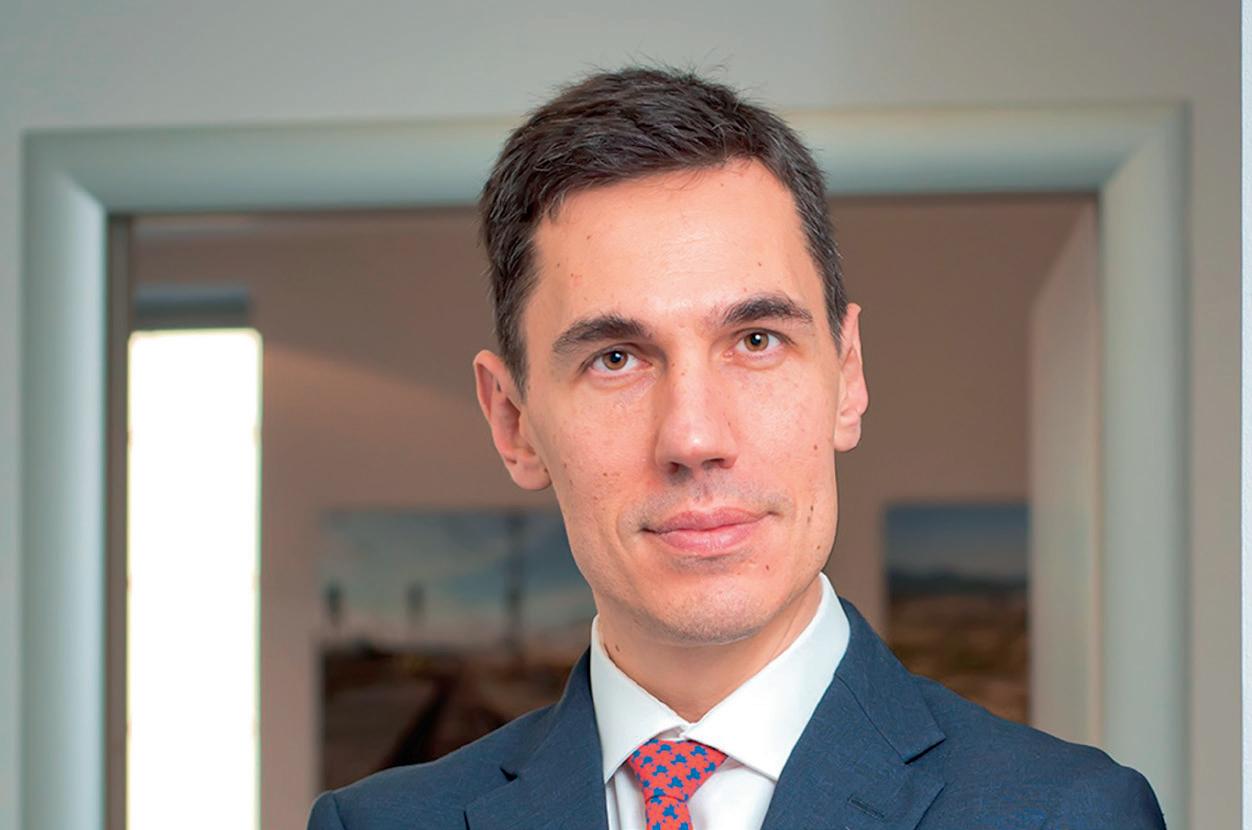
The EIB stands with Serbia and its people in helping them tap the opportunities presented within the scope of the Growth Plan for the Western Balkans
What do you consider as the most important steps for Serbia to fully leverage the opportunities provided by the European Union’s Growth Plan for the Western Balkans?
— The Growth Plan has the potential to accelerate the EU accession process and spur economic growth, while also promoting the creation of a common regional market. The aim is to facilitate the gradual opening of certain areas of the EU single market to regional economies in order to enable the free movement of goods, services, people and capital.
The EIB stands with Serbia and its people in helping them tap the opportunities presented by the Growth Plan. With a view to releasing the plan’s funds, the European Commission will check whether progress is being achieved and the results set out in the Reform Agenda are being met. It will also monitor other parameters, such as macro-financial stability, sound public financial management and transparency.
The European Commission also recently adopted a new €1.2 billion financial package under the Economic and Investment Plan, including €300 million in EU grants for sustainable transportation, environmental protection and SME projects in the Western Balkans. We look forward to deploying these funds, together with our partners, to help the region attain higher prosperity and improved living conditions for its people.
AOFI’s mission is to enable Serbian exporters to maintain continuous operations and to help them retain their presence on existing markets and break onto new ones, says AOFI Director Dejan Vukotić
With the 20th anniversary of the work of the Export Credit and Insurance Agency of the Republic of Serbia approaching, director Dejan Vukotić shares his insights into the agency’s previous work and achievements, as well as ambitious plans that are designed to meet the needs and desires of export-oriented businesses while also taking into account future opportunities and challenges.
By insuring receivables, AOFI provides exporters with security and certainty of payment, which is crucial for their smooth operations, particularly during times of crisis. Are the number of client requests and the countries that you cover growing?
— Certainly our primary goal, and indeed our responsibility, is to help Serbian exporters maintain liquidity through our receivables insurance and factoring services. Our importance becomes particularly evident when supply chains slow down or break, as well as when Serbian exporters enter new markets. The number of requests for receivables insurance from clients has been growing steadily, which clearly indicates that we are on the right track. In cooperation with the Government of the Republic of Serbia, and in particular the ministries of economy and finance, we will do everything to further facilitate the operations of our exporters in the coming period, through the implementation of both existing and new programmes.

Receivables insurance is not the only service you offer. You also provide guarantees, short-term loans, factoring and support for innovative businesses. Is this last service new?
— As an institution that promotes and supports Serbian exports, AOFI has developed a range of products and services to enable export-oriented businesses to compete against international competitors on an equal footing. Our products and services are designed to support our exporters from the moment they secure an export deal through to the collection of payments for their exports.
Support for innovative businesses is essential because the economy no longer develops in the same way it once did, which is why the development of technological entrepreneurship needs to be supported. We are doing everything possible to advance in all directions.
Support for innovative businesses is essential, because the economy is no longer developing in the same way it once did, which is why the development of technological entrepreneurship needs to be supported
The export growth seen in 2023 continued into the first six months of this year, and AOFI has followed the growth trajectory of Serbian exports by not only increasing the number of insured clients, but also by expanding their coverage. We insure the buyers of our exporters in over 80 countries worldwide, while we additionally offer clients the purchase of insured receivables, further strengthening their market and financial position.
Next July will see you celebrate the major milestone of 20 years of AOFI’s existence and operations. Are you preparing for this anniversay with major plans and even greater satisfaction with the results achieved?
— Every milestone requires reflection, thorough analysis and planning. We do this on a monthly basis, but the 20th anniversary will mark an incredibly significant and turbulent period. We are of course proud of our work, though in the belief that we can always do even more and even better. All sectors work diligently; we are maintaining our momentum, but we must also keep up with demands and trends. We approach planning seriously, with understanding for various perspectives, challenges and demands. By truly understanding the needs of our clients, working to improve the Serbian economy and fostering teamwork –which has always been important to us – I’m confident that more success and positive results will follow!
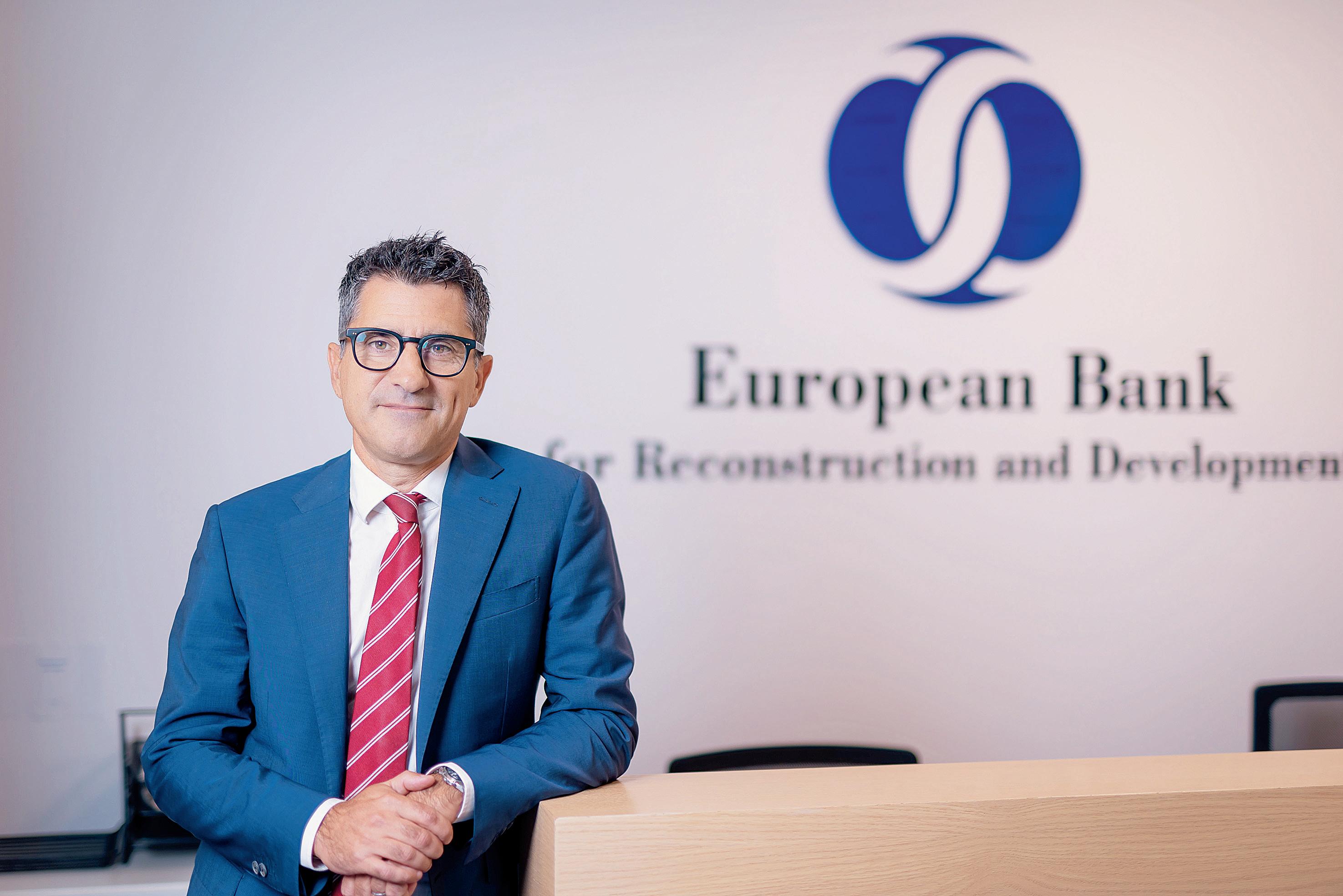
The drive for reforms and identifying partners dedicated to following international best practices has made Serbia one of the countries where we’ve invested the most
With new investments worth nearly €850 million last year alone, Serbia ranked among the EBRD’s five largest markets, alongside Turkey, Poland, Ukraine and Egypt. “This means that, in relative terms, by unit of GDP or population, for example, we actually invested much more in Serbia than in those larger economies,” says Matteo Colangeli, Regional Director for the Western Balkans at the EBRD.
According to our interlocutor, this bank is a demanddriven institution that aims to act as an addition to commercial investors and to build sustainable market economies through the projects its finance. The two fac-
tors critical to its ability to scale up investment volumes in any given country are reform momentum and the identifying of partners committed to working in accordance with the required international best practices. “A key enabler for us in 2023 was the acceleration of the energy transition in Serbia, a trend which we continue observing, alongside growing cooperation with the authorities in the areas of environmental infrastructure, innovation and regional connectivity,” says Colangeli. “The other key partnership that we have developed in the country over the years is with the banking system, through which we channel over €300 million to the
real economy annually, mainly to SMEs. I think all this makes for very solid foundations that should enable us to continue investing sizeable amounts in Serbia in the years to come.”
How does the EBRD’s new plan until 2028 envisage the building of green, inclusive and digitalised economies in Serbia?
— Our country strategy for Serbia focuses on the green energy transition, closing the infrastructure gap and unlocking the potential of the private sector, particularly SMEs. Accelerating the deployment of renewables will be at the core of the first priority, including by continuing to support the authorities in allocating capacities to private investors through transparent and well-structured auctions. We want to help Serbia attract strong investors and drive down the price of green energy for its economy through competition. The other side of the energy story is cutting waste. There are significant opportunities and financial incentives available, particularly for investments in the efficiency of building stock. We will look to stimulate these through all channels: credit lines with commercial banks; by working with district heating companies; and by financing the upgrading of public buildings together with municipalities and the central government. In terms of closing the infrastructure gap, the focus will be on strengthening Serbia’s rail network and significantly accelerating environmental infrastructure investments to improve standards of waste management, wastewater treatment and air quality in Serbian cities. Finally, in terms of private sector competitiveness, we will deepen our focus on innovation, creating opportunities for Serbia’s talented young entrepreneurs and helping traditional sectors of the economy like agriculture raise their standards and sustainability.
With the EBRD’s €300 million loan to EPS and technical assistance for energy sector reforms, what are the expected outcomes and how will they impact Serbia’s energy landscape?
— Our €300 million loan to EPS is aimed at shoring up short-term liquidity at a time of volatility and disruption to regional energy markets. The technical assistance package that we made available alongside that financing is being implemented at present and targets the improving of long-term resilience against future shocks to the company and the broader energy sector. Moving ahead with the first renewables auction, for example, was part of that support and came together with more ambitious targets on the penetration of renewables in Serbia’s national energy and climate plan by 2030. EPS clearly plays, and will continue to play, a crucial role in the country’s energy system and in its transition. It is for this reason that we mobilised significant grant
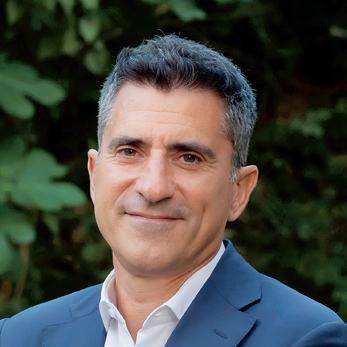
Investing in innovation-enabling infrastructure is clearly key to the competitiveness of the economy and is therefore a growing priority for us
We will continue investing heavily in the coming years, focusing on key European rail corridors, together with the European Union and the European Investment Bank
With nearly 70 staff employed at our Belgrade regional hub, we are able to deliver not only investments, but also advisory support and technical assistance to SMEs and startups
resources to provide technical assistance in a broad range of critical areas for the company’s performance, including corporate governance and risk management, as well as helping shape its long-term strategic direction through a decarbonisation action plan and related HR planning to develop the skills and knowhow required for its implementation.
The EBRD has invested in innovation-enabling infrastructure, including science and technology parks. How do you see these investments contributing to Serbia’s overall economic development and competitiveness?
— Investing in innovation-enabling infrastructure is clearly key to the competitiveness of the economy and therefore a growing priority for us. We have been financing the roll out of broadband across rural areas of the country in recent years, thus creating the digital connectivity needed for businesses and entrepreneurs based in smaller communities to thrive. We last year committed €80 million for science and technology parks in Niš, Čačak and Kruševac, as well as facilities within the BIO4 project in Belgrade. Serbia is the first country where we support this type of infrastructure, which is testament to the partnership we’ve developed with the authorities in the field of innovation. This is a partnership that we stand ready to develop further, both in terms of additional investments and making access to technical assistance available to the expanding network of science and technology parks in order to continue raising their performance and delivery. Beyond infrastructure, we are also engaging directly with local start-ups and accelerators through a programme called Star Venture, which aims to provide tailored access to international knowhow and expertise. The aim is to help as many start-ups as possible grow to the stage at which they become interesting to international investors, ultimately creating a population of successful start-ups large enough to establish Serbia more firmly on the map for venture capital funds.
In terms of financing sustainable infrastructure and strengthening regional connectivity, what are the EBRD’s priorities for Serbia up to 2028, and how do these align with broader regional goals?
— We have a strong pipeline of important projects in railways and environmental infrastructure, in Serbia and around the region. For instance, we are financing the Belgrade-Niš high speed rail link, which forms part of Pan-European Corridor X connecting Central Europe with Thessaloniki in Greece. This is our largest single investment in the country to date and was made possible thanks to Serbia’s decision to finance this key infrastructure with European partners, leveraging

sizable grant funding. We are additionally supporting the rail sector in raising safety standards and providing comprehensive technical assistance to improve the governance and operational performance of state-owned rail companies. When it comes to the environment, we are financing a countrywide waste management programme with the aim of modernising several regional systems and increasing recycling rates. This is key to reducing pollution, creating opportunities in the circular economy and moving Serbia closer to EU standards. When it comes to air quality, our support is primarily focused on decarbonising district heating systems and buildings energy efficiency investments. We recently signed a €30 million loan (supported by substantial donor co-financing from the Swiss State Secretariat for Economic Affairs, the European Union and the Government of Austria) to introduce advanced technologies – including solar-thermal, heat pumps, geothermal and waste heat recovery in the district heating networks of ten cities. Beyond finances, we also bring to the table project preparation and implementation support to ensure timely and efficient project delivery. With our support, Serbia has built its credibility as a counterpart for public-private partnerships through the Belgrade Airport and Vinča solid waste facility projects, and we believe this model can be followed for other important infrastructure projects in which the leveraging of private sector finance and knowhow is under consideration.
When it comes to intra-regional connectivity, would you say that Serbia is taking full advantage of all the possibilities at its disposal?
— I think Serbia has achieved strong progress in recent years, in terms of upgrading and expanding its transport infrastructure, and we are proud of the role we played in that. Belgrade Airport is establishing itself as a regional hub and a model of a successful public-private partnership. Road connectivity is being steadily improved domestically and with neighbouring countries. We are particularly pleased with the country’s growing strategic focus on the rail sector, as a greener and safer mode of transport. Together with the European Union and the European Investment Bank, we will continue investing heavily in the coming years, starting with the key European rail corridors. In parallel with infrastructure development, regional connectivity will also need to advance in terms of leaner border crossings, cutting bureaucracy and waiting times in order to boost trade and economic integration.
What distinguishes the EBRD from other institutional investors in the domains of infrastructure, green energy and other growth drivers?
Our country strategy for Serbia focuses on the green energy transition, closing the infrastructure gap and unlocking the potential of the private sector, particularly SMEs
— What distinguishes the EBRD is its private sector focus (around two-thirds of our annual business in Serbia) combined with strong engagement with the authorities on the reforms and infrastructure investments needed to unlock its potential. Another specific characteristic is our ability to provide a full range of financing solutions – from debt, to project finance and equity – to a broad spectrum of clients, ranging from large global investors to central and local government, state-owned enterprises, local corporates and financial institutions. Finally, I would mention our strong local footprint, with nearly 70 staff employed at our Belgrade regional hub, which enables us to deliver not only investments, but also advisory support (especially to SMEs and start-ups) and technical assistance, including to help the authorities design and implement the reforms needed to continue the country’s convergence with the European Union.
managers rely increasingly on digital tools to enhance the efficiency and transparency of their business operations. Whether managing human resources, travel orders, warehouses, or field services, PANTHEON Granules provide a powerful solution that enables precise tracking and management of all aspects of business, reducing administrative tasks and offering real-time insights to help managers make better decisions
The Human Resources granule provides for the comprehensive management of employee records and administration, from onboarding and performance tracking to termination. In addition to core functions, such as managing personnel files, the system provides tools for payroll calculation and tracking sick leave, holidays and overtime. Through the Human Resources module, employees can easily view their payslips in Documentation, save them to their computer or even print them. Managers have a clear overview of the workforce structure, enabling quicker strategic human resource management decisions.
The Travel Orders granule simplifies all aspects of managing business trips, including issuing and approving travel orders, calculating expenses and allowances, even via smartphone. This tool streamlines actions such as adding a new order and vehicle, calculating per diems, adding expenses, tracking routes directly on a map, and more.
It offers a straightforward overview and management of orders, which are always available to employees, and an enhanced integration with accounting systems that allows instant transfers of travel orders with accompanying documentation to PANTHEON.
Travel orders also include the digitalisation of supporting documentation, such as fuel receipts, accommodation and other expenses, further reducing administrative tasks and speeding up the reimbursement process.


ing business planning and performance tracking.
The B2B Ordering granule simplifies the ordering process between business partners, while Field Service enables the tracking of field service team activities, automating services and tracking the service history for clients.
The Document System digitalises and organises business documentation. This granule allows the creation, tracking and archiving of all business documents, as well as the delegation of tasks among employees.
This granule enables managers to access real-time views of key performance indicators (KPIs) on any device with a web browser. Visually presented data aids in making informed decisions, facilitat -
The Warehouse Inventory granule provides an overview of stock levels at any given moment, enabling efficient inventory management, reducing losses and optimising procurement. Meanwhile, the Fixed Assets Register is a module that allows companies to maintain detailed record-keeping of their fixed assets.
With PANTHEON Granules, modern managers have a comprehensive tool for managing key business segments, with a particular emphasis on efficiency in human resource management and travel order handling, resulting in significant savings of both time and resources.
At the International School of Belgrade (ISB), wellness is more than just a concept; it’s a core value. We take a holistic approach to wellness, supporting the physical, mental, emotional, and social well-being of every member of our community. By fostering balance and growth, ISB creates an environment where everyone feels valued, connected, and empowered to thrive

Principal Erik Lutley explains, “Wellness at ISB is about creating a space where every individual feels a deep sense of belonging and worth.” This commitment is integrated into our Homeroom Programme, which includes daily check-ins and weekly Social-Emotional Learning (SEL) classes. With a 1:12 teacher-to-student ratio, this programme cultivates strong relationships, allowing for personalised support for each student.
At the Primary Campus, Dr Zalba, our primary school principal, shares a similar perspective: “Wellness is about maintaining a balanced lifestyle where students, teachers, and staff can thrive.” Primary students engage in brain breaks and mindfulness activities to express emotions and build self-awareness, while a full-time counselor and staff well-being policies, such as limiting after-hours emails, provide further support for a balanced environment.
Both campuses emphasise mental and emotional well-being through community

events like International Day, arts festivals, and welcome barbecues. In the classroom, social skills are nurtured through lessons on emotions, conflict resolution, and selfadvocacy, ensuring emotional wellness remains a daily priority. “These skills are an essential part of our curriculum,” says Dr Zalba. “We teach students how to be good friends and express their needs.”
Physical wellness is promoted through PE classes, after-school sports, and events
Wellness at ISB is about creating a space where every individual feels a deep sense of belonging and worth ~ Erik Lutley
like the Fall Run. Our new playground at the primary campus fosters teamwork and physical development, while initiatives like “Fruit Friday” encourage healthy eating. Mr Lutley highlights how these efforts align with ISB’s broader wellness goals: “We’ve taken a proactive stance on nutrition and
physical activity. Our updated lunch service and initiatives like ‘Fruit Friday’ promote healthy lifestyles for both students and staff.”
Wellness also extends to staff and families through the Sunshine Committee’s morale-boosting events and opportunities for family participation in school activities. Mental health remains a priority, especially during stressful times like exam periods, with support such as brain food and balanced assessments.
Professional learning is another cornerstone of wellness at ISB. Teachers receive training in emotional intelligence and restorative practices, equipping them to support students’ emotional growth and to cultivate a caring, trusting environment. “We hire teachers who are experienced in Social-Emotional Learning and emotional intelligence,” adds Dr Zalba. “Our goal is to build a school where everyone feels supported, trusted, and cared for.”
Ultimately, promoting wellness at ISB is about fostering a culture of care, trust, and connection. As Dr Zalba concludes, “A caring school is a good place to learn.”Through its comprehensive approach to wellness, ISB ensures its community remains happy, healthy, and thriving.






Innovations and new technologies are now viewed in Serbia as an investment, while the business community and the state are jointly establishing long-term sustainable development and inclusive growth strategies
Despite huge challenges, Serbia has succeeded in preserving its economic links with all traditional economic partners, regardless of divisions that are not waning. The Serbian economy recorded positive trends in the first half of this year, as demonstrated by the country’s economic growth, slowing inflation and high FDI inflows. Measures connected to the opening up of the labour market will help ensure the continued competitiveness of business operations in Serbia. According to Foreign Investors Council Vice President and Spokesperson Ana Govedarica, monetary stability increases business predictability, while the preserving of supply chains enables operational continuity.
“It is very significant that we see a lot of understanding among decision-makers when it comes to innovation and new technologies in almost all areas, but also that they are viewed ever-less as an expense and increasingly seen as an investment that will ‘return more than invested’,” says Govedarica. “A good example is investment in healthcare innovations, through the securing of innovative medicines and diagnostics, as well as the increasingly powerful digitalisation, which is already improving treatment outcomes and healthcare system efficiency significantly. Investing in healthcare innovation is crucial, because it improves the quality of treatment and increases efficiency. When viewing all health and social aspects as a whole, invest-
ing in innovation actually reduces costs. Innovations spur economic growth, but also boost health sector competitiveness,” says our interviewee.
Based on your experience and FIC practice, what are the most successful ways for the business community and the government to cooperate on achieving effective and productive solutions for the economy and society?
— Through the implementation of an entire series of cooperation programmes, the government and the business community can work jointly on the creation of an economic and social environment that’s efficient, productive and sustainable.
Public-private partnerships are already yielding excellent results, particularly in terms of infrastructure projects, innovations and new technologies. Likewise, the forming
in innovative medicines, diagnostics and digitalisation are crucial to improving the quality of treatment and the
efficiency of the healthcare system
of advisory bodies that gather together representatives of the government, the business sector and the academic community, with the aim of jointly solving economic challenges, represents a good foundation for the advancement of the domestic economy.
Including the business community in the process of creating and reforming regulations is important to ensuring that laws and regulations support economic growth and innovation. Training and education programmes that meet the needs of the labour market and improve the skills of the workforce should be developed jointly.
When it comes to avoiding corruption and nepotism, it is equally important to work together to ensure the transparency of public procurement and operations. We should also work simultaneously to promote the principles of corporate social responsibility, through which companies contribute actively to the local community and the environment.
Everyone will benefit from the development of longterm strategies and goals that include both the business community and the state and are focused on sustainable development and inclusive growth.
Finally, it is also important to measure the effectiveness of these activities by setting clear goals and performance indicators that monitor the progress and success of joint initiatives.
What are the strategic initiatives in the focus of the FIC that are aimed at improving regulations and increasing legal certainty for investors in Serbia?
— Committees form the backbone of the FIC’s work, representing a platform where members exchange ideas, share best practices and jointly formulate recommendations on ways to overcome existing regulatory obstacles and improve operations. There are nine committees currently working within the scope of the Council, which best illustrates the understanding within the FIC that the economy can only be improved through simultaneous work on multiple fronts. Operational transparency, the struggle against illicit trade, improving financial services, infrastructure and construction, human resources, legislation, tax policy, healthcare and pharmaceuticals, telecommunications, digitalisation, tourism and hospitality are all in the focus of these committees, but also the association as a whole.
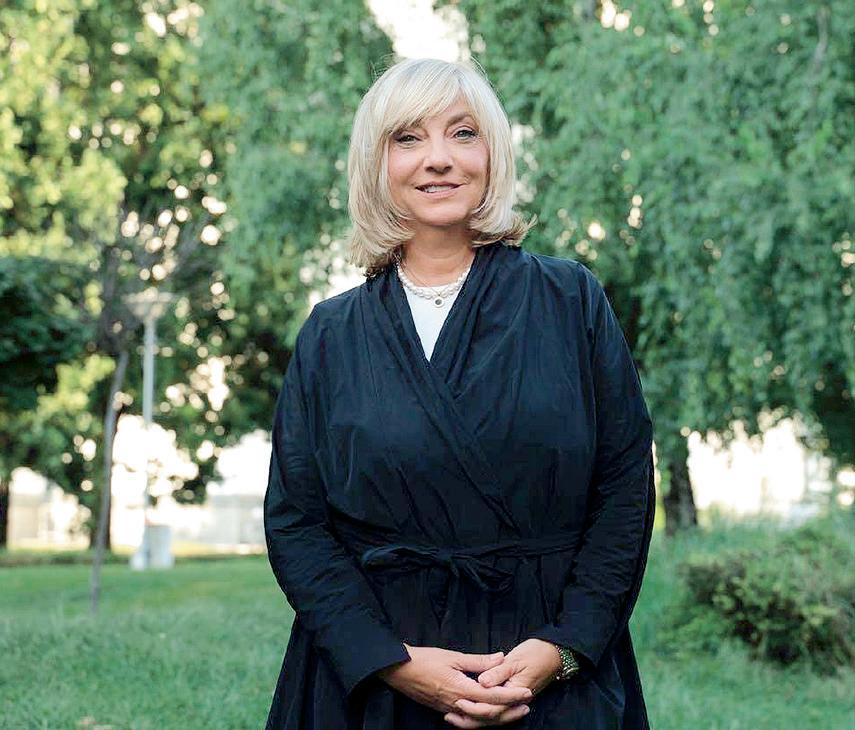
How does the FIC work with stakeholders to promote sustainable business practices?
— The FIC constantly exchanges knowledge, experiences and information, maintains an open dialogue and organises thematic conferences and meetings, as well as engaging in joint work in various bodies. The FIC is the only organisation and business association that brings together bilateral and foreign chambers of commerce, and it can thus be said that the FIC represents the interests of the wider business community in the Republic of Serbia, which has the common and unique goal of making Serbia an even better place to do business and invest, for the benefit of all citizens.
The FIC is the only organisation that brings together bilateral and foreign chambers of commerce, and thus represents the interests of the wider business community in Serbia with the aim of making the country an even better place to do business and invest, for the benefit of all citizens
The FIC has an institutional framework for cooperation with the Government of the Republic of Serbia through theWorking Group for the Implementation of the Recommendations of the FIC White Book, the work of which is presided over by the Prime Minister.
How does the FIC convey the key conclusions of its annual White Book to the general public?
— The presentation and launch event for the White Book has been the country’s largest economic and political event for the last 20-plus years, attended by top representatives of the Government of the Republic of Serbia, the business sector and social community, as well as representatives of the diplomatic corps. Conclusions are always presented in a concise and understandable way, and are always based on data gleaned from comprehensive analyses.
The FIC constantly exchanges knowledge, experiences and information, maintains an open dialogue and organises thematic conferences and meetings, as well as engaging in joint work in various bodies
The White Book presentation is Serbia’s largest economic and political event, attended by top government and business sector representatives, with conclusions that are always clear and based on comprehensive analyses
By implementing public-private partnerships and forming advisory bodies, the government and the business community can create an efficient, productive and sustainable economic and social environment
Our strength lies in our members, who unselfishly share their latest knowledge and experience from other economic milieus, as well as initiating practical proposals to speed up Serbia’s development
The Foreign Investors Council has been a reliable partner for more than twenty years – not only to its members, but also to the wider community, including Serbia’s state authorities at all levels, says FIC Executive Director Aleksandar Ljubić.
This role has come to the fore particularly during the greatest challenges of the last ten years, such as the Covid-19 pandemic or the economic crisis resulting from the Russian-Ukrainian conflict, resulting in serious supply chain disruptions, but also inflationary pressures on the Serbian economy.
“The FIC is given strength by its members, which are renowned global companies that unselfishly share their latest knowledge and experience, especially in an organisational and technological sense, that they bring from other economic milieus, as well as providing practical proposals on overcoming specific challenges,”says Ljubić.
Among the FIC’s numerous contributions to overcoming the challenges confronting Serbia is the establishment and functioning of so-called green corridors in cooperation with the European Commission and EU delegation, which enabled the simplifying of border crossing procedures with the minimum required waiting time, which was vital under the conditions of the pandemic, particularly during the first weeks and months. “The FIC has continued advocating their expansion to Western Balkan countries, with the aim of protecting supply chains and ensuring that both goods and transport workers can travel wherever needed without delay,” says Ljubić.
How has the FIC adapted its strategies in order to support member companies during times of economic uncertainty?
— Times that are characterised by economic uncertainty represent a genuine opportunity, first and foremost for members, to enjoy the advantages provided by our business association. This not only includes the spirit of community, but also the practice of sharing

Times that are characterised by economic uncertainty represent a genuine opportunity, first and foremost for members, to enjoy the advantages provided by our business association
knowledge and experience, as well as the strengthening of mutual trust that’s crucial to all stakeholders emerging from such challenging times unscathed, but also strengthened.
How does the FIC utilise its knowhow and experience to contribute to advancing the Serbian market and improving citizens’ living standards?
— Our members have been doing business with domestic companies, primarily small and medium-sized enterprises that serve as their key suppliers, for more than 20 years. These partnerships enable Serbian companies to join global supply chains and thus integrate into European and global economic flows. Moreover, through cooperation with global companies, Serbian SMEs also have an opportunity to gain insight into the latest technological solutions, as well as applying technological trends in their operations thanks to the aforementioned partnerships. The corporate culture is equally important, as are the various organisational solutions that are brought by our members and serve to boost the competitiveness of Serbia’s SME sector, consequently impacting citizens’ standard of living. We often emphasise the fact that our member companies are already present in Serbia and have not only recognised Serbia as a good place to invest, but also have a vital interest in the Serbian economy growing and in Serbian society progressing as a whole.
industry, environmental regulations, the law of foreign currency transactions, as well as tourism and hospitality.
How does the FIC use the White Book in cooperating with national players and encouraging a more competitive environment for doing business in Serbia?
— The White Book is a key project of the Foreign Investors Council and is unique in that it is authored by the members themselves, based on their vast professional knowhow, practical experience and commitment. Moreover, the White Book is also our basic platform for dialogue with the state and the community when it comes to improving regulations, or advancing the business and investment climate in the Republic of Serbia, which has become a key input for the economic section of the European Commission’s annual report on Serbia’s progress in the EU integration process.
The FIC is the only business association that has an institutional framework for cooperation with the Government of the Republic of Serbia, through the Working Group for the Implementation of the Recommendations contained in the FIC White Book. We also believe strongly that we will achieve good cooperation with the new Government of the Republic of Serbia and an open dialogue on issues that are crucial to Serbia’s continuing economic growth and the further improvement of living standards
What are the key priorities that the FIC has identified when it comes to building a better economic milieu in Serbia and how are those priorities implemented?
— At the FIC, we are acutely aware of the fact that the Serbian economy is deeply integrated into the EU, despite Serbia having only membership candidate status and not being institutionally integrated into the EU. This is precisely why we have to emphasise that our expectations remain unchanged. The key priority is the intensification of Serbia’s accession negotiations with the EU, as well as the harmonising of national regulations with European standards. Alongside this, the FIC’s priorities also encompass improvements in nine priority areas: taxes, labour rights relations, inspection oversight and food safety, improving overall infrastructure and the real estate market, digitalisation, the pharmaceutical
The FIC has developed unique, objective methodology for measuring progress and the fulfilling of members’ recommendations presented in the annual White Book. The White Book Index compares and ranks progress on all topics that are in the focus of the White Book. Likewise, the FIC is the only organisation or business association that has an institutional framework for cooperation with the Government of the Republic of Serbia, through the Working Group for the Implementation of the Recommendations contained in the FIC White Book, the work of which is presided over by the Prime Minister. This idea emerged in January 2017, based on the initiative of then Prime Minister Aleksandar Vučić, who recognised the importance of the channelled experiences of global companies and their recommendations on the direction of work aimed at making Serbia an even better place to invest. Last year’s record-breaking FDI results certainly testify to the claim that efforts exerted to date have paid off and that the business climate in Serbia has improved significantly.
We at the FIC also believe strongly that we will achieve good cooperation and open dialogue with the new Government of the Republic of Serbia, and that we will continue developing partnership relations through the institutional framework of the Working Group, with the aim of continuing Serbia’s economic growth and further improving the living standards of its citizens.
Our member companies have already recognised Serbia as a good place to invest and have a vital interest in the Serbian economy growing and in Serbian society progressing as a whole
We are acutely aware of the fact that the Serbian economy is deeply integrated into the EU, which is why our expectations remain unchanged when it comes to accelerating the integration process AIM
The FIC has continued advocating the expansion of “green corridors” to the Western Balkans, with the aim of protecting supply chains and ensuring both goods and transport workers can travel wherever needed
The food safety system must be improved continuously. Everyone in the supply chain, from primary producers to policymakers, should work on its improvement consistently and uncompromisingly

One significant area for improvement is the harmonising of Serbian legislation with that of the EU, which requires a complete revision of the Food Safety Act to achieve tangible progress. The shortcomings of the current legislative framework hinder full harmonisation, but also the adoption of all relevant regulations and by-laws, due to differences in categorisation, procedures, names of by-laws and similar aspects. This harmonisation is further complicated by the use of different methodological rules for drafting regulations compared to those of the EU.
To improve the control of food in Serbia, we recommend strengthening the administrative capacities of inspection services and reference laboratories, along with
the consistent application of risk analysis approaches in official controls. Food control responsibilities are shared between the ministries of health and agriculture, but there are discrepancies in the application of control procedures and a lack of clear guidelines. The transparent defining and consistent application of these responsibilities, along with continuous efforts to improve them, are included in our recommendations. Adoption of the Law on Official Controls, aligned with EU regulations, would contribute significantly to improving this area.
The FIC Anti-Illicit Trade & Food Committee supports the harmonisation of regulations under Chapter 12, with the aim of protecting consumers, removing trade barriers and facilitating operations in the food industry and trade with the EU. We also recommend revising other regulations to address jurisdictional conflicts that create uncertainty in domestic market operations and foreign trade, such as the Trade Act and the Food Safety Act.
We believe it is necessary to simplify the procedures of control bodies for efficient, proportionate and clear health protection measures, including the application of the risk analysis model and the centralisation of information. We recommend intensifying the implementation of the action plan to address issues hampering foreign trade and simplify administrative procedures. Achieving these goals requires constructive cooperation among all participants.
provide recommendations to create a higher-quality
The successful identification of issues arising from the overlapping of responsibilities between different ministries, and proposals to overcome them, are aimed at improving the business environment for domestic players in the food sector
Combating the grey economy in the food supply chain also contributes to safety. Food sold through legal channels is subject to safety controls. There is no information regarding food safety controls in illicit channels.
Sanctioning those operating in the grey market also protects the position of those that adhere to regulations. The introduction of excise stamps for coffee has not achieved the desired results, while it has imposed additional costs on registered importers and producers. Consideration should be given to revising the measures in order to redirect costs towards investment and improving food production, with a focus on the enforcement of control and imposing appropriate penalties for those who deliberately break the law.
The efficiency of controls and penalties for illicit trade must be improved continuously to ensure compliance with regulations, fair market competition and equal conditions for all
The adoption of the new Programme for Combating the Grey Economy 2023-2025 and its accompanying Action Plan confirmed the continuation of a systematic approach in the fight against the grey economy, with three priority goals: strengthening the capacities of inspections and misdemeanour courts; improving tax oversight processes; and reducing fiscal and administrative burdens for businesses operating legally.
Testifying to the success achieved in combating the grey economy and illicit trade is the continued increase of tax revenue collection in 2023, which was up by 16.3% compared to 2022. Total tax revenue in 2023 amounted to 2,593 billion dinars, while the total amount of newly identified revenue in 2023 was nearly 35 billion dinars, which is almost a quarter more than in 2022. Despite increased awareness of the importance of reducing the grey economy in recent years, we must recognise that its scale in Serbia remains relatively high, albeit with a noticeable downward trend. This improvement is due to the government’s understanding of the need to cooperate with the private sector and expert bodies, leading to the definition and establishment of activities aimed at institutionally improving business conditions and systems for controlling illicit trade.
There is still room for improvement, particularly in terms of work in the field and further reforms of inspection oversight to enhance the quality and efficiency of inspection services. The efficiency of controls and penalties for illicit trade must be improved continuously to ensure compli-

ance with regulations, fair market competition and equal conditions for all.
Inspection services remain in an alarming state, given the shortage of personnel, poor material status and technical equipment, as well as the exceptionally high average age of inspectors. Additionally, inspection services must be provided with the necessary administrative and legal support, alongside the continuous adoption of innovative solutions.
One of the most significant preventative measures that we, as FIC members, emphasise constantly is an adequate system of penalties for illicit trade. It is essential to have specialised judges in the area of combating the grey economy and to monitor the performance of misdemeanour courts in such proceedings. When it comes to excisable goods, the most sensitive areas remain those related to tobacco, oil and coffee, which must receive particular attention in inspection oversight.
We advocate judicial specialisation
The continuation of a systematic approach by the state in combating the grey economy is a prerequisite for strengthening public finances
The contact centre of the Republic Inspection Service has proven its effectiveness, having received more than 50,000 reports over the previous three years. The narrative on the importance of combating the grey economy has become increasingly prominent and crucial, and citizens are increasingly aware of their role in the tax system and the importance of compliance with the law.
To further strengthen public awareness and the economy, and improve public finances as a consequence, it is essential to have state services working in coordination, continuous cooperation with responsible businesses and citizen education.
The companies gathered within the FIC are, as always, ready to engage on this front, primarily through expert bodies that analyse regulations and market practices to identify areas in need of improvement.
Through the organising of public events that bring together key stakeholders from the world of public policy and business, and through the work of our committee, we generate new ideas to improve the financial market
Serbia’s capital market cannot yet be considered adequately developed, as banks remain the dominant institutions responsible for the intermediation of capital surpluses and their allocation to credit seekers. However, this does not discourage the FIC from continuing to make significant efforts and initiate new progress through cooperation with government bodies and all relevant market participants, in order to remove regulatory, infrastructural and institutional barriers to the deepening of the bond and equity markets – representing the key pillars of a diversified capital market.
The second FIC Financial Services Conference that was held recently brought together a number of prominent representatives of the expert community with the aim of exchanging views and formalising the next joint steps in the process of developing and deepening the market. Speaking on that occasion, National Bank of Serbia Governor Tabaković highlighted, among other things, the example of the highly dynamic development of the IPS (Instant Payment System), which significantly improves the payment system for citizens and businesses. She also announced a partnership with Rakuten that will enable mobile payments via the popular Viber app for certain types of transactions. The discussion additionally covered technological tools that allow for a greater number of transactions in a secure manner, while simultaneously improving the efficiency of intermediation among financial market participants, as well as new forms of debt financing in support of the so-called “Green Agenda”.
Particularly emphasised were “Sustainable Bonds” (ESG Bonds), a type of debt securities through which the state and companies will raise funds on favourable
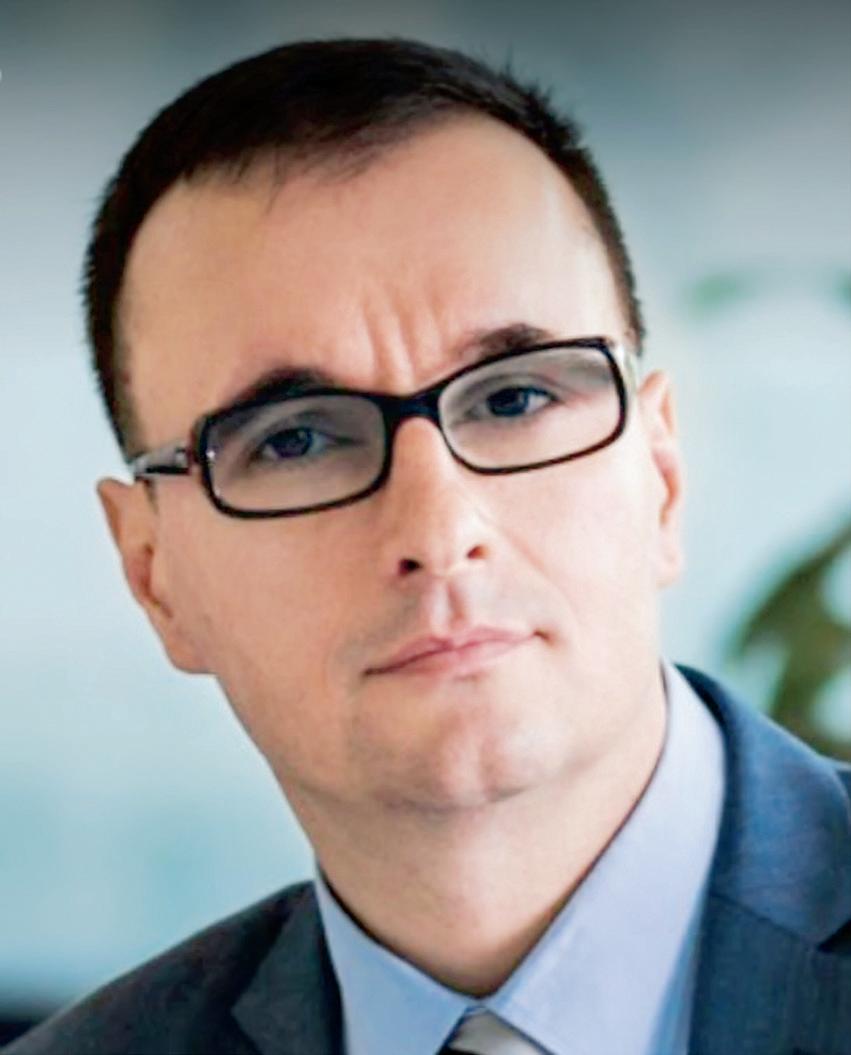
We propose the introduction of new financial services and instruments
The FIC will remain committed to improving the regulatory, infrastructural, and institutional framework with the aim of deepening the bond and stock markets, which are key pillars of a diversified capital market
terms to finance projects that contribute to environmental and socially significant aspects of preserving the environment and ensuring the sustainable functioning of an inclusive society. Such examples of robust technological development in the provision of financial services and instruments for financing sustainable development projects provide further impetus to competition in the financial services sector and the emergence of dynamic fintech companies, which will gradually take an increasing share of the market from traditional players, to the benefit of service users.
Given that Serbia is a signatory to the Paris Climate Agreement, sustainable financing is expected to become increasingly central to companies’ operations. With its successful issuance of sustainable Eurobonds, the state has set a gold standard for other companies in this important and promising segment of the capital market. Significant results from the government’s initiative to issue corporate bonds by companies and incorporate these instruments for trading on the Belgrade Stock Exchange are also expected this year.
It is crucial for legislators to recognise the importance of digitalisation and actively encourage financial market participants to digitalise their operations as much as possible, while keeping their clients in mind ~ Dušan Lalić

The liberalisation of electronic payments is one of the most significant and best-executed improvements to the financial market. We first recognised the need for this when services that could only be paid for electronically became available. Following this, the legislator and regulator laid the foundations for lawful and secure electronic payments, which encouraged our clients to embrace electronic payments
We
contribute to innovations in the financial sector
The FIC Financial Committee’s greatest success was organising the second conference on financial services
increasingly. Compared to traditional payment methods, this method is far better suited to the pace of modern life.
Beyond its impact on our clients, banks have used this bold move to modernise the operations of other financial service providers. For instance, electronic payments have empowered insurance companies to develop digital products.
In addition to the liberalisation of electronic payments, I would highlight mediation as another significant advancement, which the financial market increasingly recognises as an appropriate way to resolve disputes. Long-term cooperation cannot exist where legal disputes are present. Moreover, financial service providers must strive to maintain friendly relationships with their clients, especially in competitive markets. When disputes arise, clients in financial transactions, as in everyday life, expect understanding and the opportunity to negotiate. Mediation is the best way to show understanding, while it also provides a framework for reaching agreement. It is undoubtedly one of the best indicators of sustainable business practices in the financial market.
Sustainable operations, which represent an obligation for all of us, aren’t possible without digitalisation. The legislative framework within which financial institutions operate still doesn’t allow much room for digitalisation. The widespread participation of our citizens in the financial market, coupled with the extensive documentation that must exist in physical form, raises the question of how we can operate on the financial market in an ecologically sustainable way. The only certain way is through digitalisation. This is why I believe it is important for legislators to recognise the significance of digitalisation and to actively encourage financial market participants to digitalise their operations as much as possible, while being mindful of their clients. Interestingly, our clients are increasingly considering financial institutions’ approach to sustainable operations when choosing their service providers.
In the period ahead, we will participate in a public debate on the new proposal for the Law on the Protection of Financial Service Users. In addition to the usual ways of protecting our clients, during the main discussion we must all recognise sustainable business operations as an extremely relevant topic. This is also a way to signal to our clients that we share common goals.
Always looking to the future, digitalisation is a way to extend a hand to new generations as they actively enter the market. Let’s greet them more prepared than ever before!
Among the numerous recommendations for improving the labour legislation framework that are presented in the FIC White Book, we highlight the need for amendments to the Labour Law to allow the electronic signing of documents
Since the last significant amendments to the Labour Law, back in 2014, the FIC Human Resources Committee has continuously pointed out the need for further changes to labour legislation and the adapting of regulations to the global changes in the organisation of labour. Although many of these changes were initially driven by circumstances imposed by the global pandemic, it quickly became clear that these new forms of work are now part of our daily reality and need to be recognised and regulated in a way that doesn’t hinder business or discourage flexibility. The proposals for improving the labour legislation framework that are outlined in the FIC White Book are extensive, but what has garnered the most attention from our members over the years is the need for the Labour Law to explicitly regulate the possibility of signing documents electronically, which entails its alignment with the Law on Electronic Documents, as well as amendments to various administrative procedures in the field of labour. At the same time, by-laws should be amended to more clearly regulate the use of advanced electronic signatures, allowing for the simple and efficient electronic signing of documents through platforms like DocuSign, which are recognised as reliable and valid within the EU.
Moreover, a practical need exists for by-laws to regulate health and safety when working from home or remotely. However, the Occupational Safety and Health Law doesn’t currently provide for the issuance of such by-laws, which makes it necessary to amend the law to include this possibility, followed by the adoption of by-laws that would
FIC members will continue to advocate for improvements in labour legislation, focusing on adapting regulations to modern forms of work, which are now our new reality

regulate the specificities of risk assessment documents, preventative measures, employee training and the division of responsibilities between employee and employer when working from home or remotely.
The calculation of salary compensation during annual leave, paid leave and other absences has long been problematic and should be amended in such a way that the basis for calculating salary compensation is the employee’s agreed base monthly salary, increased by their length-of-service increment. Employees would thus receive a fair amount of salary compensation during absences that’s equivalent to what they earn when working. In contrast, the current legal solution takes into account the average salary over the previous 12 months as the basis for calculation, including bonuses and other extraordinary earnings, which can result in employees receiving higher earnings when absent than when working, leading to absurd disparities between the two. Bonuses are no longer uncommon, and an increasing number of employers are suffering from the consequences of these irrational legal provisions, which discourage employee rewards, complicate budget planning and foster a culture of feigned work absences.
Significant progress has been made when it comes to adapting to the Green Agenda in the construction sector, but there is still much room for improvement in digital transformation
For all of us – not only as businesspeople, but also as citizens of the Republic of Serbia – the conditions and quality of the environment we live in are one of the key issues. Recognising and defining “green building” concepts and other elements of the green agenda through regulations that govern construction, and ensuring the considering of energy efficiency, sustainable materials and technologies, as well as waste management and water and air protection, when planning and building properties represents an important new development from that perspective.
When it comes to the construction industry specifically, one of the goals that we consider as being very important is bringing the functionality and accessibility of the Utility Cadastre closer to that of the Real Estate Cadastre. One of the main prerequisites for this was met through amendments to the Law on the Procedure of Registration in the Real Estate Cadastre and Infrastructure Cadastre, introducing the Infrastructure Cadastre. Another significant improvement, at least on paper, is the resolution of land ownership issues and the mixed forms of state and private ownership, through the abolition of the conversion of usage rights into ownership rights on construction land, with compensation for the widest possible circle of individuals.
Notable progress has also been achieved in the energy sector, through the intro-

What concerns all of us, not only as workers but as residents of the Republic of Serbia, are the conditions and quality of the environment that surrounds us. Recognising and defining the concepts of “green building” and other elements of the green agenda through construction regulations is essential. When planning and building, it is necessary to consider energy efficiency, sustainable materials and technologies, as well as waste management and the protection of water and air, which represent significant new developments from this perspective
duction of electronic services for procedures related to the issuance and extension of energy permits, acquiring the status of a privileged electricity producer, as well as procedures linked to the preparation of environmental impact assessments. However, when it comes to digital transformation and improving procedures in this sector, it seems that both the administrative authorities and the construction industry weren’t sufficiently prepared for the implementation of new solutions in the field of construction, so the desired effects of such legislative solutions are still to be seen, hopefully in the near future.
The issue of efficiency certainly remains one of the critical aspects of every administrative procedure, and it is necessary to further strengthen administrative capacities to make progress in this regard.
The committee’s focus will be on supporting the reform of the Real Estate Cadastre, improving the efficiency and timelines for obtaining building permits, and continuing cooperation with the Ministry of Mining and Energy on green transition and the decarbonisation of the economy.
The pharmaceutical industry in Serbia can offer the state its experience and expertise in order to drive technological advancement in areas such as healthcare digitalisation and the application of artificial intelligence
At the FIC Pharmaceutical Industry Committee, we believe that one of the key advances in Serbia’s pharmaceutical industry is the state’s increasing investment in improving the availability of new therapeutic options. In practice, this means greater access to medicines and improved healthcare for patients in Serbia. However, these funds still aren’t sufficient to fully meet the needs of patients, and we are not yet at the level of medicine availability seen in the European Union, though we are certainly on track to achieving that.
Globally, we live in an exceptionally challenging environment when it comes to medicine supply. We are witnessing global shortages of some extremely important medicines. Economic crises, wars, labour shortages and rising production costs are just a few of the reasons for potential supply disruptions. Given all these factors, the role of the pharmaceutical industry in Serbia is becoming increasingly significant. I am confident that the industry, in cooperation with the state, will work to ensure the most stable medicine supply possible.
To maintain and improve the availability of innovative and generic medicines in Serbia, we need to focus on a few key steps: long-term savings through the use of efficient and modern therapies with preventative measures; analysis of the effectiveness of therapy; accelerating procedures for registering and introducing as many innovative and generic medicines as possible to the Drug Lists in Serbia.
An active dialogue between institutions, companies and experts is an essential condition for any discussion about the progress of healthcare today.
We’ve made progress in Serbia in terms of building partnerships and improving dialogue with the Ministry of Health, the National Health Insurance Fund and the Medicines and Medical Devices Agency, to ensure the provision of the most efficient and effective healthcare to all citizens.

We aim to improve dialogue and foster better, more efficient cooperation with state institutions, ensuring that every citizen has faster and easier access to healthcare
I would also like to highlight the fact that the pharmaceutical industry in Serbia can offer the state its experience and expertise in order to drive technological advancements in areas such as healthcare digitalisation and the application of artificial intelligence. Digitalisation and the use of artificial intelligence bring many benefits to healthcare, from improving diagnostics and personalising medicine to suit patients’ individual needs, to speeding up administrative processes that become more efficient, freeing up healthcare workers to focus on direct patient care. The fast processing and sharing of medical data enhances analytics and the evaluation of the effectiveness of different therapeutic options. All these changes together make the healthcare system more efficient, precise and accessible, where the pharmaceutical industry can assist in various partnership projects with state institutions.
This is why the FIC Pharmaceutical Industry Committee will be very active, as we see this moment as representing the right time to launch new ideas and new solutions.
We want to work to improve dialogue and establish more effective cooperation with state institutions, so that every citizen can have faster and easier access to healthcare.
Unlike in EU countries, there are no changes to tax regulations on the horizon in Serbia that would support OECD principles and the Green Agenda, nor have significant amendments been made to domestic tax regulations
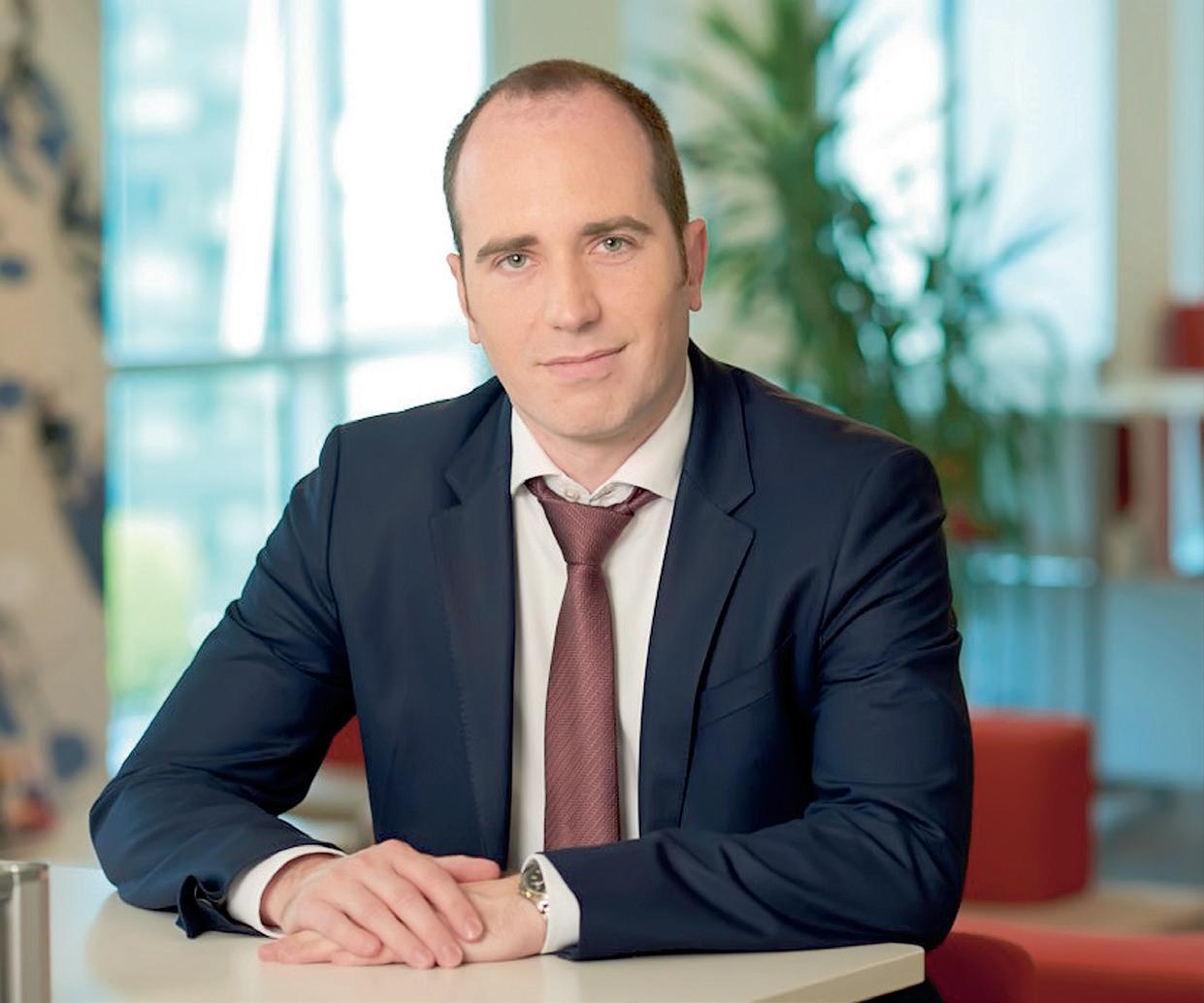
Significant changes in taxation are taking place at the international level, such as the OECD Pillar 2 initiative to introduce a global minimum corporate tax rate of 15%, which has been accepted and implemented by many developed countries, and the EU’s introduction of the Carbon Border Adjustment Mechanism (CBAM) tax on products with high carbon content. These changes impact the Serbian tax system and its taxpayers both directly and indirectly. Such changes may reduce the attractiveness of the tax incentives that Serbia provides to foreign investors, and may alter conditions or increase the costs
of doing business for domestic companies that are part of larger international groups and/or that export significantly. Unlike many EU member states and other neighbouring countries that are responding and adapting their tax systems to current and upcoming changes, no potential adjustments to domestic tax regulations are yet in sight here in Serbia.
Unfortunately, there have been no significant changes to domestic tax regulations, except for improvements in the electronic invoicing system, to address identified issues and difficulties in practice. The improvement of the electronic invoicing system will contribute to better and simpler reporting on the one hand, while on the other hand it will provide the Tax Administration with more precise and comprehensive insight into the operations of businesses. However, taxpayers face the challenge of responding to these changes in a timely manner by adapting their business information systems, which requires significant time and resources.
A draft law on e-delivery notes is also in the works and should further enhance the digitalisation of
The FIC will continue to advocate for ongoing dialogue and the improvement of tax regulations and practices, along with greater transparency and timely public disclosure and consultation on planned amendments to tax regulations
business processes for companies, leading to greater efficiency and cost reduction in the long run.
In terms of customs regulations, Serbia signed a Free Trade Agreement with China last year, which came into effect in July this year.
Given that domestic tax regulations have not been amended, no progress has been made on issues that have been pointed out by the FIC for years, and we still don’t see significant readiness for dialogue on the part of state authorities. The Working Group for the Implementation of Recommendations from the Foreign Investors Council’s White Book has not been active in the area of taxation this year either.
Serbia’s tourism and hospitality industry has strong growth potential and opportunities to enhance its global competitiveness
The tourism and hospitality industry is undergoing significant changes, driven by several emerging trends. Globally, sustainable tourism is gaining traction, with travellers increasingly favouring ecofriendly options. Demand for personalised experiences is also growing, with tourists seeking unique adventures. Digital transformation also plays a key role, enhancing guest experiences from booking to checkout through AI, virtual reality and data analytics.
While these global trends are also being adopted in Serbia, the industry here faces its own set of challenges. One of the most pressing issues is infrastructure development. Despite Serbia’s rich cultural and natural heritage, the lack of adequate infrastructure, especially in rural areas, limits the country’s tourism potential. Seasonal fluctuations in demand also pose challenges, creating financial instability for businesses that are dependent on peak seasons.
Another critical challenge is the skills gap in the workforce. The industry requires professionals skilled in both traditional hospitality and modern technologies, but current educational frameworks in Serbia don’t satisfy these needs fully.
The FIC Tourism & Hospitality Committee is actively addressing these challenges with key recommendations. Firstly, we advocate comprehensive infrastructure development, focusing on transportation, accommodation and promoting lesserknown destinations. By investing in rural tourism, Serbia can attract a broader range of tourists and ease the burden on popular spots.
Serbia grapples with infrastructure gaps, seasonal tourism fluctuations and a workforce skills shortage.
The FIC actively addresses these challenges through targeted recommendations
Secondly, we recommend enhancing education and training programmes to align

them with industry trends. Collaborations between educational institutions and the private sector are vital to developing curricula that focus on digital skills, customer service and sustainability. Upskilling the workforce is crucial to maintaining service standards and adapting to evolving global demands.
Finally, the Committee stresses the importance of public-private partnerships in driving innovation and growth. Closer collaboration between the government and industry stakeholders can create a more supportive environment for tourism, including policy reforms that encourage investment and streamline regulations.
In conclusion, while challenges remain, Serbia’s tourism and hospitality sector has significant growth potential. By focusing on infrastructure, education and collaboration, Serbia can strengthen its position as a competitive and attractive destination on the global tourism map.
DANIEL
The past year has been marked by substantial progress for the Telecommunications & Digital Economy Committee, reflecting our commitment to drive innovation and regulatory excellence

Serbia has experienced many novelties in the telecommunications sector over the past year, including the notable highlight of the introduction of the new Electronic Communications Law. This legislation has not only improved consumer protection, but also increased the predictability of the business environment for mobile network operators. While aligning with the new rules remains an ongoing process, we are partnering with RATEL and the Ministry of Information and Telecommunications on the shaping of by-laws to ensure solutions envisaged by the EU Electronic Communications Code are implemented in a way that best suits the specificities of our market.
Looking ahead, prepaid registration that needs to be completed by 10th February 2025 represents a real challenge. It will impact over three million existing customers, as well as all new ones. Some would say that this will be among the most demanding administrative undertakings since the replacement of old passports with new biometric ones that happened many years ago. To ensure that this process is digital, efficient and reliable, we are working closely with all stakeholders, including innovative companies and regulators.
As we approach 2025, we anticipate that the 5G Spectrum Auction will be one of the key drivers of digital transformation. Our robust 4G networks, which are among the highest quality in Europe, provide a strong foundation for the advancement of technology. That’s why I’m confident that we will be able to quickly build a 5G network while supporting and showcasing the cutting-edge technology solutions in time for Expo 2027.
We are eager to engage in discussions within the telecommunications & digital sector, and for our insights to contribute to shaping a forward-looking digital future for Serbia
In our ongoing advocacy, the Committee continues to emphasise the need to modernise outdated environmental regulations that impede the deployment of essential digital infrastructure, including mobile base stations. In this era of cloud computing and artificial intelligence, achieving the necessary leap in network capacity and responsiveness is impossible without a proper regulatory framework for building high-speed networks. Guided by the findings of a scientific study on electromagnetic fields (EMF) that was conducted by the Faculty of Electronic Engineering, we are actively engaging with the Ministry of Environmental Protection and other stakeholders to address these challenges. Serbia’s regulatory landscape is preparing for further transformation. The National Assembly’s recent adoption of amendments to the Law on Payment Services, which incorporates the PSD2 Directive, marks a significant development. This will finally allow Direct Carrier Billing – a topic that has been on our committee’s agenda for many years. Furthermore, the Serbian government is preparing to introduce several key digital laws in the areas of artificial intelligence, electronic government and electronic identity (EIDAS 2).
As promoters of global sustainability standards, FIC members can help Serbia align its business practices with the highest environmental criteria
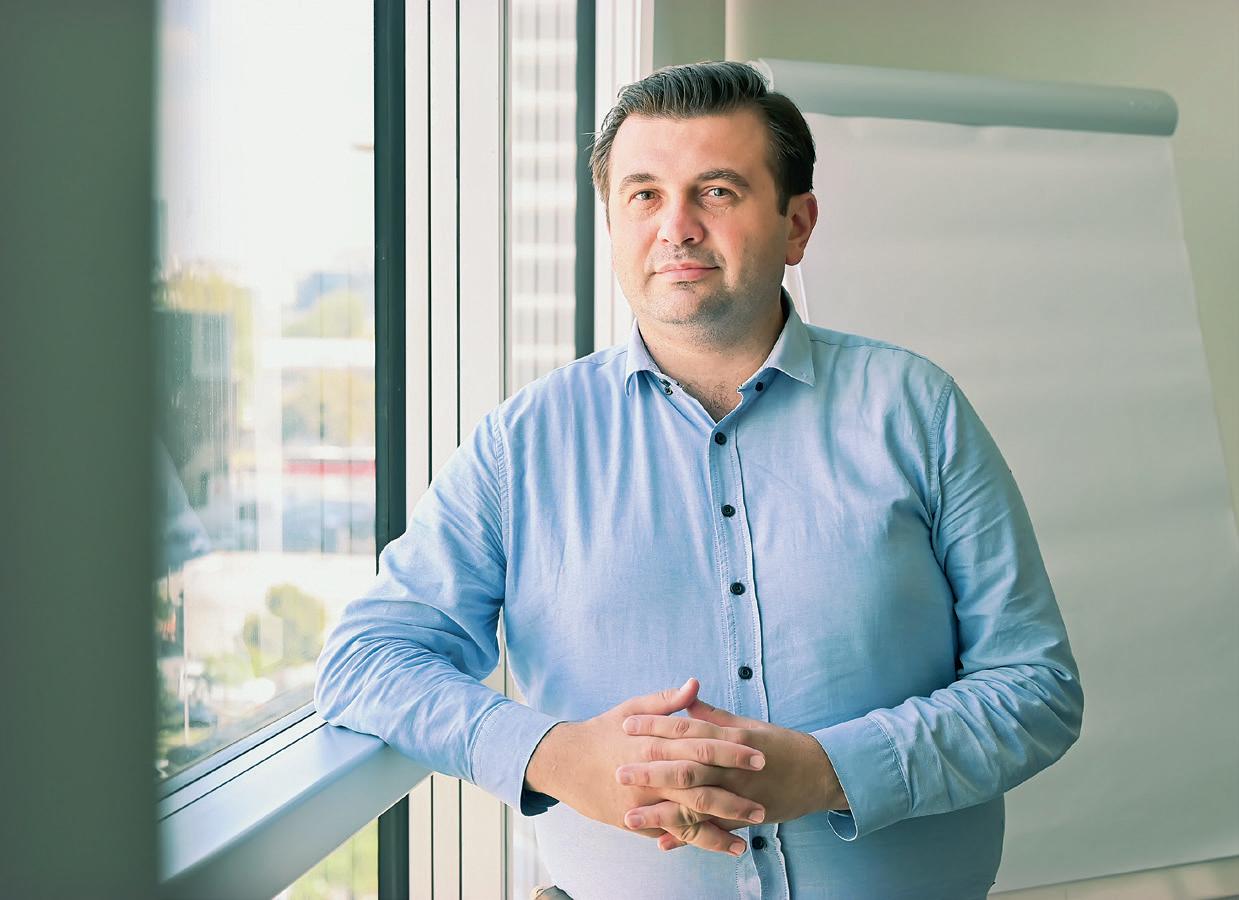
In order to accelerate the green transition, Serbia could improve its regulatory framework in the field of environmental protection by strengthening its legislation and aligning it with EU standards, such as the Air Quality Directive and the Industrial Emissions Directive. This harmonisation process involves enacting new laws and/or amending existing ones across various areas, including the circular economy and renewable energy. To ensure these legislative changes have a real impact, it is necessary to increase institutional capacities. Strengthening the capacities of regulatory bodies, inspection services and the judiciary will ensure the proper and efficient implementation of both current and new regulations.
Tracking the positive effects of the aforementioned measures requires the development of a modern system for continuous environmental monitoring, as
well as regularly reporting to the public on progress in implementing green policies. Additionally, raising environmental awareness through education is crucial and can be achieved by launching campaigns that emphasise the importance of environmental protection and promoting sustainable practices among citizens and businesses.
FIC member companies, particularly large multinationals, have the capacity to influence the advancement of the green transition significantly. Foreign companies bring new technologies, global standards and best practices in areas such as corporate governance and environmental protection. Through partnerships with foreign companies, domestic firms can improve their own operations by adopting the advanced technologies and innovative solutions that these companies introduce to the market. Foreign companies also contribute to the development of the local workforce through the specialised training programmes that they offer their employees. These are the aspects that we at the FIC highlight in particular, as our members, aside from their direct financial contributions, make the greatest impact on the Serbian economy.
We, at the FIC, believe that education is essential to raising environmental awareness, through the launching of campaigns about the importance of environmental protection and promoting sustainable practices among both citizens and businesses
In better utilising growth opportunities in line with Expo 2027 and the EU Growth Plan, the business climate can be improved through measures that ease the investment process and provide security for investors. This includes simplifying bureaucracy for obtaining permits through advanced digital systems that streamline these processes; establishing a stable tax policy that offers incentives to investors, especially in strategically important sectors; implementing effective measures to combat corruption and improve transparency in public procurement and business transactions; investing in the modernisation of transport, energy and digital infrastructure; and enhancing support for SMEs by providing access to favourable loans and subsidies. Improving these aspects will help Serbia create a more favourable business environment and attract more investments.




Propos als for improvement of the business environment in Serbia





MIKE MICHEL FIC President (Yettel Ceo)
The strategic partnership with the European Union on critical mineral raw materials will contribute to Serbia’s long-term economic growth, speedier integration into the EU’s single market and accelerated EU accession KEY MESSAGES
Serbia is an outstanding investment destination. The continuation of structural reforms and the harmonising of national policies with those of the European Union can only increase the competitiveness and attractiveness of the country for further investments


Serbian Minister of Science, Technological Development and Innovation
EXPO 2027 provides an excellent opportunity for our science and innovation ecosystem, including over 700 start-ups in Serbia. This exposition will enable us to present our innovative capacities and achievements

Serbian Minister of Information and Telecommunications
Serbia’s Ministry of Information and Telecommunications aims to propel the country to the highest global standards in electronic communications, thereby contributing to the development of the economy and innovation, as well as the digital society
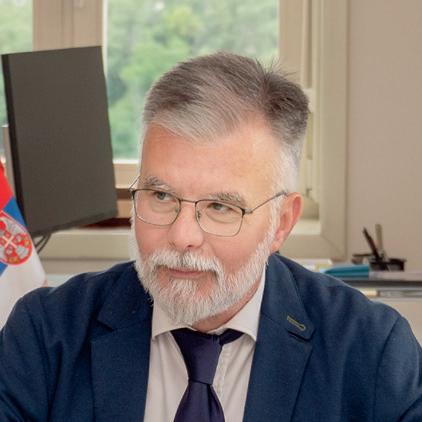

Serbian Minister of Mining and Energy
Serbian Minister of Agriculture, Forestry and Water Management
We will work over the coming years to increase agriculture yields through the expansion of the surface area covered by irrigation and the application of modern technologies, in order for us to leave the generations to come at least as much as we inherited from those who came before us



Director of the Tax Administration of the Republic of Serbia
Governor of the National Bank of Serbia
Serbia should continue to do what it has done over the past 12 years. Economically, it should maintain the macroeconomic and financial stability achieved and continue implementing structural reforms. Judging by economic growth forecasts and the gradual decline in inflation, turbulent times are behind us and new reform challenges lie ahead
Digitalisation and automation processes will contribute to the creation of a modern and efficient Tax Administration, thereby securing sustainable and predictable public finances and providing a digital service that’s adapted to every taxpayer
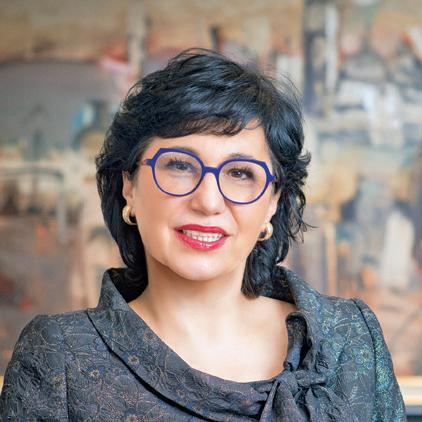

Ambassador and Head of the EU Delegation to Serbia
The EU remains firmly committed to enlargement, and Europe’s Growth Plan for the Western Balkans, including Serbia, underscores this dedication. This plan represents a concrete effort to reinvigorate the enlargement process around the region

World Bank Country Manager for Serbia
Very clear steps exist that would enable Serbia to boost its economic growth rates. They imply the implementing of measures for switching to a fullyfledged market economy, strengthening human capital, institutions and governance, as well as accelerating trade with the region and the EU
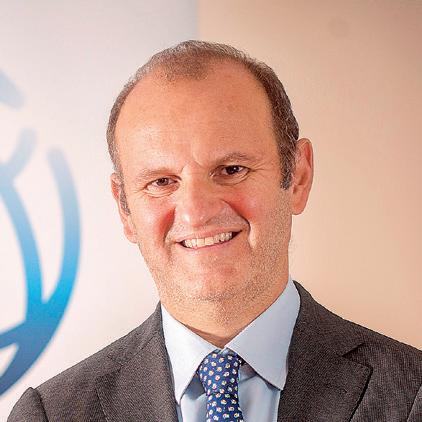

Outgoing European Investment Bank Head of Regional Representation for the Western Balkans
We are at Serbia’s disposal to help on the implementation of important projects that contribute to decarbonisation, improving digital literacy and strengthening economic development and integration into the EU market
Ebrd Regional Director for the Western Balkans
The drive for reforms and identifying partners dedicated to following international best practices has made Serbia one of the countries where we’ve invested the most
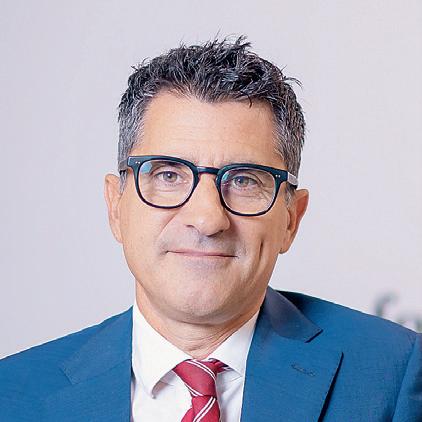

ANA GOVEDARICA
FIC Vice President and Spokesperson (Roche General Manager)
Innovations and new technologies are now viewed in Serbia as an investment, while the business community and the state are jointly establishing long-term sustainable development and inclusive growth strategies
FIC Executive Director

Our strength lies in our members, who unselfishly share their latest knowledge and experience from other economic milieus, as well as initiating practical proposals to speed up Serbia’s development

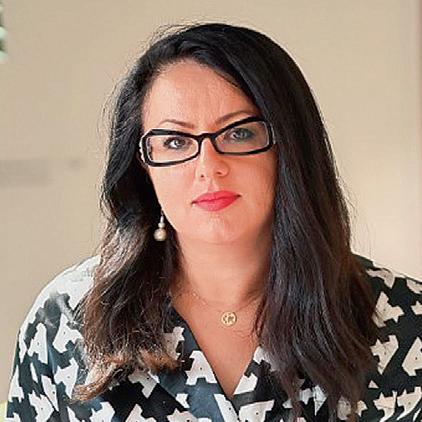
CO-President of the FIC Anti-Illicit Trade & Food Committee (Nestlé Adriatic S D.o.o.)
The food safety system must be improved continuously. Everyone in the supply chain, from primary producers to policymakers, should work on its improvement consistently and uncompromisingly
CO-President of the FIC Anti-Illicit Trade & Food Committee (British American Tobacco)
The efficiency of controls and penalties for illicit trade must be improved continuously to ensure compliance with regulations, fair market competition and equal conditions for all


CO-President of the FIC Financial Services Committee (Banca Intesa A.d. Belgrade)
Through the organising of public events that bring together key stakeholders from the world of public policy and business, and through the work of our committee, we generate new ideas to improve the financial market

CO-President of the FIC Financial Services Committee (Generali Insurance Srbija)
It is crucial for legislators to recognise the importance of digitalisation and actively encourage financial market participants to digitalise their operations as much as possible, while keeping their clients in mind ~ Dušan Lalić


MILENA JAKŠIĆ PAPAC
President of the FIC Human Resources Committee (Karanović & Partners O.a.d.
Among the numerous recommendations for improving the labour legislation framework that are presented in the FIC White Book, we highlight the need for amendments to the Labour Law to allow the electronic signing of documents
President of the FIC Infrastructure and Construction Committee (Sog Law Firm in Cooperation With Kinstellar)
Significant progress has been made when it comes to adapting to the Green Agenda in the construction sector, but there is still much room for improvement in digital transformation

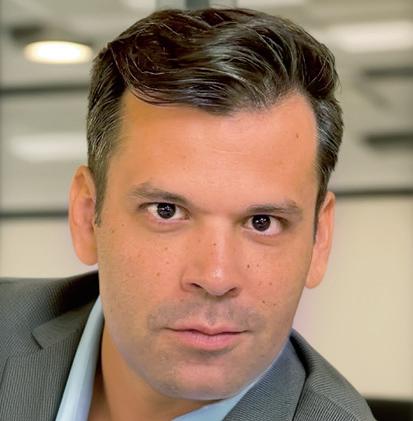
DANILO MIJUŠKOVIĆ
President of the FIC Pharma Industry Committee (Merck)
The pharmaceutical industry in Serbia can offer the state its experience and expertise in order to drive technological advancement in areas such as healthcare digitalisation and the application of artificial intelligence
President of the FIC Taxation Committee (Pricewaterhousecoopers)
Unlike in EU countries, there are no changes to tax regulations on the horizon in Serbia that would support OECD principles and the Green Agenda, nor have significant amendments been made to domestic tax regulations
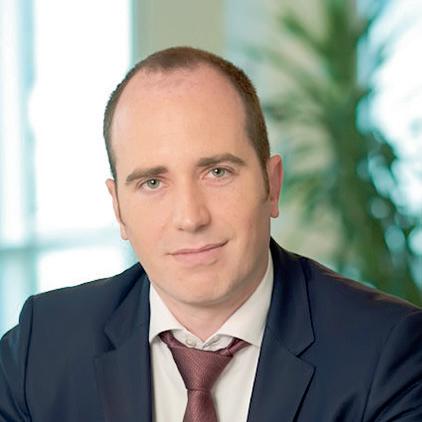

President of the FIC Tourism & Hospitality Committee (Hyatt Regency Belgrade)
Serbia’s tourism and hospitality industry has strong growth potential and opportunities to enhance its global competitiveness

DANIEL ŠUŠNJAR
President of the FIC Telecommunications & Digital Economy Committee (Yettel D.o.o.)
The past year has been marked by substantial progress for the Telecommunications & Digital Economy Committee, reflecting our commitment to drive innovation and regulatory excellence

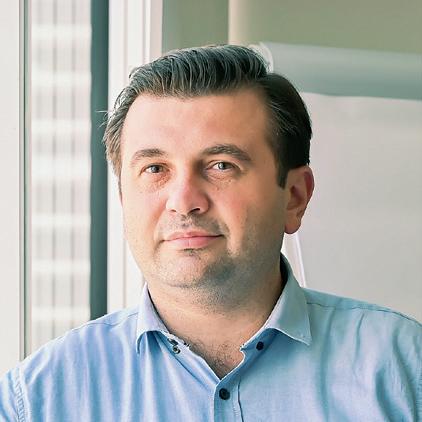
NEBOJŠA LUKAČ
President of the FIC Legal Committee (Independent Attorney At Law, in Cooperation With Pwc)
As promoters of global sustainability standards, FIC members can help Serbia align its business practices with the highest environmental criteria
President of the Foreign Investors Council:
MIKE MICHEL, CEO, Yettel
Vice President of the Foreign Investors Council:
ANA GOVEDARICA, General Manager, Roche
Members of the Board:
MARKO JOVIĆ, Director of Regulatory Affairs and Wholesale, A1 Srbija
FRANCOIS BERISOT, CEO, Belgrade airport
IVAN RAKIĆ
CESA Central Cluster Managing Partner, Ernst & Young
MATTEO COLANGELI, Director, Regional Head of Western Balkans, EBRD
ALESSANDRO BRAGONZI, Head of Regional Representation for the Western Balkans, EIB
DAWID SOLD, Managing Director, G4S Secure Solutions
Dr RONALD SEELIGER, President and CEO, Hemofarm
GORAN PEKEZ, Corporate Affairs and Communications Director in charge of Adriatic region, JT International
MARJANA DAVIDOVIĆ, Country Manager, Nestlé Adriatic Hub South (Serbia, Montenegro, North Macedonia)
ZORAN PETROVIĆ, Chairman of the Managing Board, Raiffeisen banka
MILJAN MILEVIĆ, Managing Director Serbia and Montenegro, SGS Beograd
Foreign Investors Council
Gospodar Jevremova 47, IV floor, 11000 Belgrade, Serbia
Telephone: 011 3281 958/965
E-mail: office@fic.org.rs Web: www.fic.org.rs
Anti-Illicit Trade & Food Committee
Co-President for Anti-Illicit Trade: DRAGAN PENEZIĆ, (British American Tobacco)
Co-President for Food: DRAGANA STIKIĆ, (Nestlé Adriatic S)
Financial Services Committee
Co-President: DANILO MRVALJEVIĆ, (Banca Intesa)
Co-President: DUŠAN LALIĆ, (Generali osiguranje)
Vice President: PREDRAG MILADINOVIĆ, (VP Law Firm)
HR Committee
President: MILENA JAKŠIĆ PAPAC, (Karanović & Partners)
Vice President: ĐORĐE MILOVANOVIĆ, (Yettel)
Infrastructure & Real Estate Committee
President: MARIO KIJANOVIĆ, (SOG in cooperation with Kinstellar)
Vice President: TATJANA ISAKOV, NIS a.d. Novi Sad (Naftna industrija Srbije)
ALEKSANDAR LJUBIĆ, FIC Executive Director; aleksandar.ljubic@fic.org.rs
RENATA PINDŽO, FIC Communication Director; renata.pindzo@fic.org.rs
JELENA LAZAREVIĆ, FIC Regulatory Director; jelena.lazarevic@fic.org.rs
Legal Committee
President: NEBOJŠA LUKAČ, (PricewaterhouseCoopers)
Vice President: DUBRAVKA KOSIĆ, (K&F Advokati)
Pharma Industry Committee
President: DANILO MIJUŠKOVIĆ (Merck)
Vice President: JELENA MLINAREVIĆ (PHOENIX grupa Srbija)
Taxation Committee
President: DRAGAN DRAČA, (PricewaterhouseCoopers)
Vice President: VANJA KORAĆ, (Philip Morris Services)
Telecommunications and Digital Economy Committee
President: DANIEL ŠUŠNJAR, (Yettel)
Vice President: NEDA TESLIĆ, (A1 Srbija)
Tourism & Hospitality Committe
President: ZAFEIRIOS LAMPADARIDIS (Hyatt Regency Beograd)
KOVILJKA NIKOLIĆ, FIC Office Manager; koviljka.nikolic@fic.org.rs
TAMARA KAPOR, FIC Regulatory Associate; tamara.kapor@fic.org.rs




A1 SRBIJA D.O.O.
Milutina Milankovića 1ž, 11070 Beograd
Tel: 060 1234, Fax: 060 1231
E-mail: PR@a1.rs
Web: www.a1.rs
Enrolment date: 2007
ACB D.OO. BEOGRAD – DRUŠTVO ZA POSREDOVANJE U OSIGURANJU
Francuska 37/I floor, 11000 Beograd
Tel: +381 11 7854 600, E-mail: office@acb.rs
Web: www.acb.rs; www.aon.com
Enrolment date: 2023
ADDIKO BANK A.D. BEOGRAD
Milutina Milankovića 7v, 11070 Beograd
Tel: +381 11 2226 000
E-mail: office.rs@addiko.com
Web: www.addiko.rs
Enrolment date: 2002
AFI EUROPE SERBIA D.O.O
Tadije Sondermajera 11a, sprat 17, 11070 Beograd
Tel: 011 2090 525
E-mail: office@afi.global; Web: afieuropeserbia.com
Enrolment date: 2005
ALMA QUATTRO D.O.O. BEOGRAD
Dositejeva 20, 11000 Beograd
Tel: +381 11 2028 900, +381 11 2028 920
E-mail: office@almaquattro.rs
Web: www.almaquattro.rs
Enrolment date: 2020
ARDAGH METAL PACKAGING SERBIA D.O.O.


Omladinskih brigada 88, Airport City Business Park 11070 Beograd, Tel: +381 11 7151 100, E-mail: am.serbia@ardaghgroup.com
Web: www.ardaghgroup.com
Enrolment date: 2020
BALL CORPORATION, BEVERAGE PACKAGING
EMEA, BEOGRAD
Batajnički drum 21A, 11080 Zemun – Beograd
Tel: +381 11 3770 600/602, Fax: +381 11 3770 752
Web: www.ball.com
Enrolment date: 2004
BANCA INTESA A.D. BEOGRAD
Milentija Popovića 7b, 11070 Beograd
Tel: +381 11 3108 888
E-mail: kabinet@bancaintesa.rs
Web: www.bancaintesa.rs
Enrolment date: 2004
BARRY CALLEBAUT SOUTH EAST EUROPE D.O.O.
Karadjordjeva 2-4, 1000 Beograd
Tel: +381 11 3532 805

E-mail: jelena_vujnovic@barry-callebaut.com
Web: www.barry-callebaut.com
Enrolment date: 2020


BAYER D.O.O. BEOGRAD
Omladinskih brigada 88b, 1070 Beograd
Tel: +381 11 2070 200
E-mail: office.support.rs@bayer.com
Web: www.bayer.rs
Enrolment date: 2009
BDK ADVOKATI
Bulevar kralja Aleksandra 28, 11000 Beograd
Tel: +381 11 3284 212, Fax: +381 11 3284 213
E-mail: office@bdkadvokati.com
Web: www.bdkadvokati.com
Enrolment date: 2011
BELAGA MANAGEMENT COMPANY D.O.O

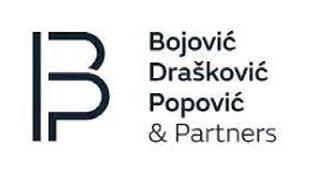


BELGRADE AIRPORT D.O.O.
47 Aerodrom Beograd Street, 11180 Beograd 59
Tel: +381 11 2094 802
E-mail: kabinet@beg.aero, Web: www.beg.aero
Enrolment date: 2019
BOJOVIC DRASKOVIC POPOVIC & PARTNERS A.O.D BEOGRAD
Francuska 27, 1000 Beograd
Tel: +381 11 7850 336
Web: www.bd2p.com, Mail: office@bd2p.com
Enrolment date: 2013
BPI D.O.O. SOMBOR
Venac Radomira Putnika 1, 25000 Sombor
Tel: +381 25 5150 161, +381 25 5150 162
Fax: +381 25 5150 185
Web: www.bpi-holding.com
Enrolment date: 2010
BRITISH AMERICAN TOBACCO VRANJE A.D. VRANJE
Bulevar Milutina Milankovića 1ž, 11070 Beograd
Tel: +381 60 3108 700, Web: www.bat.com
Enrolment date: 2002, Founder


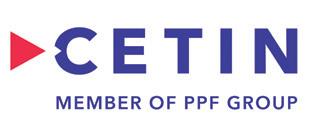
BRITISH-SERBIAN CHAMBER OF COMMERCE
6 Lower Grosvenor Place, SW1W 0EN London, UK
Dositejeva 15, 11000 Beograd
Tel: +44 020 7630 1777, E-mail: office@britserbcham. com Web: www.britserbcham.com
Enrolment date: 2020
CARLSBERG SRBIJA D.O.O.
Proleterska 17, 21413 Čelarevo
Tel: +381 21 7550 600, Fax: +381 21 7550 658
E-mail: info@carlsberg.rs
Web: www.carlsbergsrbija.rs
Enrolment date: 2005
CETIN D.O.O. BEOGRAD – NOVI BEOGRAD
Omladinskih brigada 90, 11070 Beograd
Tel: +381 63 444 222
E-mail: info@cetin.rs
Web: www.cetin.rs; www.cetin.eu
Enrolment date: 2021
CTP INVEST
Megarska 9, 11070 Beograd – CTPark Belgrade City
Tel: +381 65 433 4444
E-mail: petar.kolognat@ctp.eu
Web: www.ctp.eu
Enrolment date: 2019


CWP EUROPE (CWPR SERVICES D.O.O.)
Masarikova 5, floor 20, 11000 Beograd
Tel: +381 11 7850 020
E-mail: office.serbia@cwp.global
Web global: Grid Connected | CWP Global
Enrolment date: 2023
DAD DRÄXLMAIER AUTOMOTIVE D.O.O.
Skladišna hala 1, Zrenjaninski park
Lokacija Bagljaš Aerodrom, 23000 Zrenjanin
Tel: +381 23 519 340
Web: www.draexlmaier.com
Enrolment date: 2017
DATALAB SR D.O.O.
Bul. Arsenija Čarnojevića 99v 11000 Belgrade, Tel: +381 11 404 8604
E-mail: info@datalab.rs
Web: local: www.datalab.rs global: www.datalab.eu
Enrolment date: 2023

Kralja Milana 35, 11000 Beograd
Fax: +381 11 7555 700
E-mail: begbs_hotel@hilton.com
Web: local: Hilton Belgrade global: www.hilton.com/en/
Enrolment date: 2022
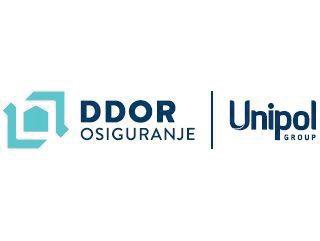
DDOR NOVI SAD A.D.O.
Bulevar Mihajla Pupina 8, 1000 Novi Sad
Tel: +381 21 4886 000, Korisnički centar: 0800 303 301
E-mail: ddor@ddor.co.rs
Web: www.ddor.rs
Enrolment date: 2012
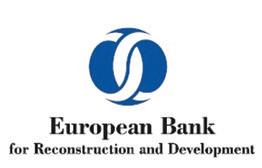

DELHAIZE SERBIA
Jurija Gagarina 14, 11000 Beograd
Tel: 0800 3537 030, Fax: +381 11 7153 910
E-mail: office@delhaize.rs
Web: local: www.maxi.rs global: www.aholddelhaize.com
Enrolment date: 2023

DELOITTE ADVISORY D.O.O.
Terazije 8, 1000 Beograd
Tel: +381 11 3812 100, Fax: +381 11 3812 112
E-mail: ceyuinfo@deloittece.com
Web: Deloitte Serbia
Enrolment date: 2003
DELTA HOLDING DOO
Vladimira Popovića 8a,11070 Beograd
Tel: +381 11 2011 611, +381 11 2011 921
E-Mail: office@deltaholding.rs
Web: www.deltaholding.rs
Enrolment date: 2014
DEUTSCH-SERBISCHE WIRTSCHAFTSKAMMER
(AHK SERBIEN)



Topličin venac 19a, 11000 Beograd
Tel: +381 11 2028 010, Fax: +381 11 3034 780
E-mail: info@ahk.rs, Web: www.serbien.ahk.de/sr; www.serbien.ahk.de, Enrolment date: 2014
EKO SERBIA A.D.
Member of HelleniQ Energy
Tošin bunar 274a,11070 Novi Beograd
Tel: +381 11 2061 500,E-mail: office@hellenic-petroleum.rs
Web: www.ekoserbia.com
Enrolment date: 2004
ERNST & YOUNG CONSULTING D.O.O. BEOGRAD
Vladimira Popovića 8a, 11070 Beograd
Tel: +381 11 2095 800
E-mail: ey.office@rs.ey.com
Web: www.ey.com/sr_rs
Enrolment date: 2004
ERSTE BANK A.D. NOVI SAD
Bulevar oslobođenja 5, 21000 Novi Sad
E-mail: info@erstebank.rs, Erste Poslovni centar, Bulevar Milutina Milankovića 3a, 11070 Novi Beograd
Tel: 0800 201 201, +381 60 4848 000
Web: www.erstebank.rs, Enrolment date: 2005
EURO LITHIUM BALKAN D.O.O. VALJEVO


Divci b.b. 14222 Valjevo
Tel: +381 69 1508 190
E-mail: info@elbplus.rs
Web: www.elbplus.com; www.elbplus.rs
Enrolment date: 2023
EUROBANK DIREKTNA A.D. BEOGRAD
Vuka Karadžića 10, 11000 Beograd
Tel: 0800 1111 44
E-mail: office@eurobank-direktna.rs
Web: www.eurobank-direktna.rs
Enrolment date: 2003
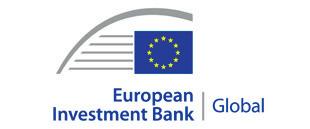
EUROPEAN INVESTMENT BANK
Vladimira Popovića 38-40
11070 Novi Beograd
Tel: +381 11 3121 756
Web: www.eib.org
Enrolment date: 2017
EUROTELESITES D.O.O. BEOGRAD
Milutina Milankovića 3v, 11070 Novi Beograd
E-mail: office.serbia@eurotelesites.com
Web: www.eurotelesites.rs
Enrolment date: 2023





EVROPSKA BANKA ZA OBNOVU I RAZVOJ
Španskih boraca 3
11070 Beograd
Tel: +381 11 2120 530
Web: www.ebrd.com
Enrolment date: 2016
EXLRT D.O.O.
Mornarska 7, 21000 Novi Sad
Tel: +381 21 6301 548, +381 21 6392 826
E-mail: info@exlrt.com; office@exlrt.com
Web: www.exlrt.com
Enrolment date: 2010
FCA SRBIJA D.O.O. KRAGUJEVAC Kosovska 4 34000 Kragujevac Web: www.fiatsrbija.rs; www.fiat.rs Enrolment date: 2011
FERRING PHARMACEUTICALS D.O.O.
BEOGRAD-STARI GRAD
Gospodar Jevremova 47, 11000 Beograd
Tel: +381 11 4048 800
Web: www.ferring.com
Enrolment date: 2018
FRESENIUS MEDICAL CARE SRBIJA D.O.O.
Beogradski put bb, 26300 Vršac
Tel: +381 11 3951 000, Fax: +381 11 3951 009
E-mail: office.srb@freseniusmedicalcare.com
Web: www.freseniusmedicalcare.com
Enrolment date: 2013
FRIKOM D.O.O.
Zrenjaninski put bb, 11213 Beograd
Tel: +381 11 2074 100, Fax: +381 11 2074 148
E-mail: office@frikom.rs
Web: www.frikom.rs
Enrolment date: 2019
G4S SECURE SOLUTIONS D.O.O.
Viline vode 6, 11000 Beograd
Tel: +381 11 2097 900, Fax: +381 11 2097 946
E-mail: office@rs.g4s.com
Web: www.g4s.rs
Enrolment date: 2009
GEBRÜDER WEISS D.O.O. DOBANOVCI



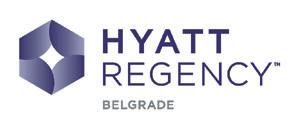
Beogradska 85, 11272 Dobanovci
Tel: +381 11 3715 200, Fax: +381 11 3715 201
E-mail: office.beograd@gw-world.com
Web: www.gw-world.com/rs; www.gw-world.com/at Enrolment date: 2020
GENERALI OSIGURANJE SRBIJA A.D.O. Španskih boraca 3, 11070 Novi Beograd
Tel: +381 11 2220 555
Web: www.generali.rs; www.generali.com
Enrolment date: 2016
GRUNDFOS SRBIJA D.O.O.
Obilazni put Sever 21, 22320 Inđija
Tel: +381 22 367 300, Fax: +381 22 367 302
E-mail: grundfossrbija@grundfos.com
Web: www.grundfos.rs; www.grundfos.com
Enrolment date: 2013
HAD BMP A.D. BEOGRAD
(HYATT REGENCY BEOGRAD)
Milentija Popovića 5, 11000 Beograd
Tel: +381 11 301 1234
E-mail: belgrade.regency@hyatt.com
Web: local: hyattregencybelgrade.com
global: www.hyatt.com Enrolment date: 2022
HALKBANK A.D. BEOGRAD
Milutina Milankovića 9e, 11070 Novi Beograd
Tel: +381 11 204 11 81
E-mail: office@halkbank.rs
Web: www.halkbank.rs
Enrolment date: 2024



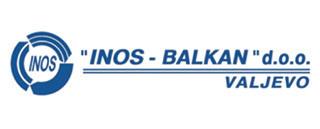


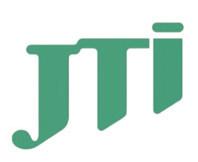
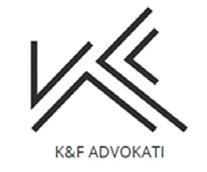



HEMOFARM A.D.
Beogradski put bb, 26300 Vršac
Tel: +381 11 3811 200
E-mail: svakodobro@hemofarm.com
Web: www.hemofarm.rs
Enrolment date: 2013
HUAWEI TECHNOLOGIES D.O.O.
Omladinskih brigada 90D
11070 Beograd
Web: www.huawei.com
Enrolment date: 2020
IKEA SRBIJA D.O.O.
Astrid Lindgren 11 11231 Beograd
Web: www.ikea.com
Enrolment date: 2008
INOS BALKAN D.O.O.
Mirka Obradovića BB, 14000 Valjevo
Tel: +381 14 221 560
E-mail: contact@inosbalkan.com Web: www.inosbalkan.com
Enrolment date: 2017
INTESA LEASING D.O.O. BEOGRAD
Milentija Popovića 7b, 11070 Beograd
Tel: +381 11 2025 400
E-mail: ilbhead@intesaleasing.rs
Web: www.intesaleasing.rs
Enrolment date: 2010
JELEN DO D.O.O. (CARMEUSE SERBIA)
Jelen Do bb, 31215 Jelen Do, Požega
Tel: +381 31 590 599, Fax: +381 31 590 570
E-mail: jelen-do@carmeuse.rs
Web: www.carmeuse.com
Enrolment date: 2015
JT INTERNATIONAL A.D. SENTA
Subotički drum 17, 24400 Senta
Tel: +381 11 2050 300
Fax: +381 11 2050 301
Web: www.jti.com
Enrolment date: 2003
K&F ADVOKATI
Knez Mihailova 17, 11000 Beograd
Tel: +381 11 3345 195
E-mail: office@kfadvokati.com
Web: www.kfadvokati.com
Enrolment date: 2021
KARANOVIĆ & PARTNERS O.A.D.
Resavska 23, 11000 Beograd
Tel: +381 11 3094 200, Fax: +381 11 3094 223
E-mail: serbia@karanovicpartners.com
Web: www.karanovicpartners.com
Enrolment date: 2003
KENTKART SOUTHEAST EUROPE D.O.O.
Makenzijeva 24, 11000 Beograd
Tel: +381 11 7155 171, Fax: +381 11 7155 171
E-mail: office@kentkart.rs
Web: www.kentkart.rs
Enrolment date: 2014
KLEEMANN LIFTOVI D.O.O.
Obradovića Sokak 50, 22310 Šimanovci
Tel: +381 22 409 000
E-mail: serbia@kleemannlifts.com
Web: www.kleemannlifts.com
Enrolment date: 2019
KNAUF INSULATION D.O.O.
Batajnički drum 16b, 11080 Beograd
Tel: +381 11 3310 800, Fax: +381 11 3310 801
E-mail: office.belgrade@knaufinsulation.com
Web: knauf.com/sr-RS
Enrolment date: 2011


KONCERN BAMBI A.D.
Đorđa Stanojevića 14, 3rd floor, 11070 Beograd
Đure Đakovića bb, 12000 Požarevac
Tel: +381 11 2222 555, E-mail: office@bambi.rs
Web: local: www.bambi.rs global: www.bambi.rs/en
Enrolment date: 2023
KONSTRUKTOR KONSALTING
Oslobođenja 10, 11000 Beograd, Rakovica
Tel: +381 11 2562 231
E-mail: office@konstruktorgrupa.com
Web: www.konstruktorgrupa.com
Enrolment date: 2018

KPMG D.O.O. BEOGRAD
Milutina Milankovića 1j, 11070 Beograd
Tel: +381 11 2050 500, Fax: +381 11 2050 550
E-mail: info@kpmg.rs
Web: www.kpmg.rs
Enrolment date: 2002
LAW OFFICE MIROSLAV STOJANOVIC IN COOPERATION WITH WOLF THEISS

Poslovni centar Ušće, Bulevar Mihajla Pupina 6, 11070 Beograd, Tel: +381 11 3302 900, Fax: +381 11 3302 925, E-mail: beograd@wolftheiss.com
Web: www.wolftheiss.com Enrolment date: 2003
LEITNERLEITNER CONSULTING D.O.O. BEOGRAD
Kneza Mihaila 1-3, 11000 Beograd
Tel: +381 11 6555 105, E-mail: beograd.office@ leitnerleitner.com Web: https://www.leitnerleitner.rs/ serbia/sr/about-us https://www.leitnerleitner.com/de/at Enrolment date: 2020
LUKOIL SRBIJA D.O.O. BEOGRAD





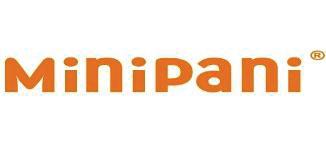
Bulevar Mihajla Pupina 165d, 11070 Beograd
Tel: +381 11 2220 200, Call center: 0800 222 882
Fax: +381 11 2220 294
E-mail: office@lukoil.rs Web: www.lukoil.rs
Enrolment date: 2009
MARSH D.O.O. ZA POSREDOVANJE U OSIGURANJU BEOGRAD
Omladinskih brigada 88a, 11070 Novi Beograd
Tel: +381 11 3130 409 E-mail: marsh.serbia@marsh.com
Web: https://www.marsh.com/rs/en/home.html; http:// www.mmc.com/ Enrolment date: 2019
MERCK D.O.O.
Omladinskih brigada 90v, 11070 Beograd
Tel: +381 11 2175 761, Fax: +381 11 2176 781
E-mail: merck@merck.rs
Web: www.merck.rs; www.merckgroup.com
Enrolment date: 2020
MESSER TEHNOGAS A.D.
Banjički put 62, 11000 Beograd
Tel: +381 11 3537 200 Fax: +381 11 3537 291
E-mail: postoffice@messer.rs
Web: www.messer.rs
Enrolment date: 2002 Founder
METROPOL PALACE D.O.O.
Bulevar kralja Aleksandra 69, 11000 Beograd
Tel:+381 11 3333 100
E-mail: reception@metropolpalace.com
Web: www.metropolpalace.rs
Enrolment date: 2017
MINI PANI D.O.O.
Hipodromska 2d, 24000 Subotica
Tel: +381 24 621 521 Fax: +381 24 621 522
E-mail: info@minipani.com
Web: www.minipani.com
Enrolment date: 2012
MK GROUP
Bulevar Arsenija Čarnojevića 59b, 11070 Belgrade
Tel: +381 11 3539 555
E-mail: info@mkgroup.rs
Web: local: www.mkgroup.rs global: mkgroup.rs/en/
Enrolment date: 2023




MORAVACEM D.O.O.
Branka Ristića 8, 35254 Popovac
Tel: +381 35 572 200 Fax: +381 35 572 207
E-mail:general-info@moravacem.rs
Web: www.moravacem.rs; www.crh.com
Enrolment date: 2016 Founder
NESTLÉ ADRIATIC S D.O.O.
Železnička 131, 11271 Beograd-Surčin
Tel: +381 11 2019 301 Fax: +381 11 3132 022
E-mail: info@rs.nestle.com
Web: www.nestle.rs
Enrolment date: 2002 Founder
NIS A.D. NOVI SAD
(NAFTNA INDUSTRIJA SRBIJE)
Narodnog fronta 12, 21000 Novi Sad
Tel.: +381 21 4811 111
E-mail: office@nis.rs Web: www.nis.rs
Enrolment date: 2011
NLB KOMERCIJALNA BANKA AD BEOGRAD
Svetog Save 14, 11000 Beograd

Tel: 011/3080 100 Fax: 011/3441 335
E-mail: kontakt.centar@nlbkb.rs
Web: www.nlbkb.rs
Enrolment date: 2022

NOKIA SOLUTIONS AND NETWORKS SERBIA D.O.O. BEOGRAD
Đorđa Stanojevića 14, 11070 Beograd
Belgrade Office Park, Building II, First Floor
Tel: +381 11 2281 920 Web: nokia.com
Enrolment date: 2009


OGRANAK SERBIA PRIME SITE ONE AG BEOGRAD
Velisava Vulovića 51, 11000 Beograd
Tel: +381 60 8800 106 Fax: +381 11 3441 335
Web: local: www.serbiaprimesiteone.com global: www.jangroup.ch
Enrolment date: 2022
OTP BANKA SRBIJA A.D. NOVI SAD
Trg slobode 5, 21000 Novi Sad Tel: +381 21 421 077, +381 11 3011 555 Fax: +381 11 3132 885 E-mail: Retail banking stanovnistvo@otpbanka.rs Corporate clients privreda@otpbanka.rs Web: www.otpbanka.rs Enrolment date: 2002 Founder
OTP LEASING SRBIJA

Headquarters: Bulevar Zorana Đinđića 50 a/b
Post and work with clients: Bulevar Mihajla Pupina 111, 11070 Beograd Tel: +381 11 2221 369 Fax: +381 11 2221
388 E-mail: otpleasing.srbija@otpsrbija.rs Web: www. otpleasingsrbija.rs Enrolment date: 2011
PEPSICO


Đorđa Stanojevića 14, 11070 Beograd Tel: +381 11 3637 000 Fax: +381 11 3637 069
E-mail: belgrade.office@pepsico.com
Web: www.pepsico.com; www.pepsico.rs; LinkedIn: PepsiCoZB Enrolment date: 2009
PERNOD RICARD SRBIJA D.O.O.
Bulevar oslobođenja 211, 11000 Beograd
E-mail: ser.info@pernod-ricard.com
Web: https://www.pernod-ricard.com/sr/ locations/serbia
Enrolment date: 2003
PETRIKIĆ & PARTNERI A.O.D. IN COOPERATION
WITH CMS REICH-ROHRWIG HAINZ
Krunska 73, 11000 Beograd
Tel: +381 11 3208 900 Fax: +381 11 3208 930
E-mail: belgrade@cms-rrh.com
Web: www.cms-rrh.com Enrolment date: 2004
PHILIP MORRIS SERVICES D.O.O. BEOGRAD
Bulevar Zorana Đinđića 64a, 11070 Beograd
Tel: +381 11 2010 800
Web: www.pmi.com
Enrolment date: 2004
PHOENIX GRUPA SRBIJA
Bore Stankovića 2, 11030 Beograd
Tel: +381 11 3538 100
E-mail: office@phoenixpharma.rs
Web: www.phoenixpharma.rs
Enrolment date: 2016


PRICEWATERHOUSECOOPERS D.O.O.
Airport City Belgrade, Omladinskih brigada 88a 11070 Beograd Tel: +381 11 3302 100
Fax: +381 11 3302 101E-mail: rs_pwc_office@pwc.com
Web: www.pwc.rs
Enrolment date: 2002 Founder
PROCREDIT BANK
Milutina Milankovića 17, 11000 Beograd
Tel: +381 11 2077 906
E-mail: srb.info@procredit-group.com
Web: www.procreditbank.rs
Enrolment date: 2004
RAIFFEISEN BANKA A.D. BEOGRAD
Đorđa Stanojevića 16, 11070 Beograd
Tel: +381 11 3202 100
E-mail: info@raiffeisenbank.rs
Web: www.raiffeisenbank.rs
Enrolment date: 2002
RAIFFEISEN LEASING D.O.O.


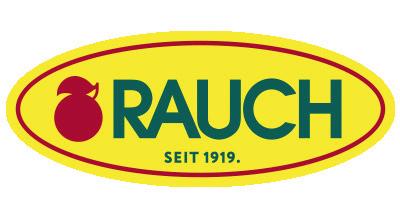


Đorđa Stanojevića 16, 11070 Beograd
Tel: +381 11 2207 400 Fax: +381 11 2289 007
E-mail: info.leasing@raiffeisen-leasing.rs
Web: www.raiffeisen-leasing.rs
Enrolment date: 2003
RAJIĆEVA MS D.O.O. BEOGRAD (HOTEL MAMA SHELTER)
Knez Mihailova 54A, 11000 Beograd
Tel: +381 11 3333 000 E-mail: belgrade@mamashelter.com
Web: mamashelter.com/belgrade/ Enrolment date: 2022
RAUCH SERBIA D.O.O.
Šesta Lička 2, 15220 Koceljeva Tel: +381 15 361 800; +381 11 265 2225 E-mail: office.serbia@rauch.cc Web: www.rauch.cc Enrolment date: 2011
RIO TINTO
Rio Sava Exploration d.o.o. Milutina Milankovića 1i, 11070 Beograd Tel: +381 11 4041 430 Web: www.riotinto.com; www.riotintoserbia.com Enrolment date: 2004
ROCHE D.O.O.
Vladimira Popovića 8a, 11070 Beograd Tel: +381 11 2022 803 Fax: +381 11 2022 808
E-mail: serbia.office@roche.com
Web: www.rochesrbija.rs; www.roche.com
Enrolment date: 2013
SAVA NEŽIVOTNO OSIGURANJE A.D.O. BEOGRAD
Bulevar vojvode Mišića 51, 11000 Beograd
Tel: +381 11 777 39 39
E-mail: info@sava-osiguranje.rs
Web: www.sava-osiguranje.rs Enrolment date: 2015
SECURITAS SERVICES D.O.O. BEOGRAD
Autoput za Zagreb 18, 11080 Beograd
Tel: +381 11 2284 051
E-mail: office@securitas.co.rs
Web: securitas.co.rs; securitas.com Enrolment date: 2024


SGS BEOGRAD D.O.O.
Jurija Gagarina 7b, 11070 Beograd
Tel: +381 11 7155 275, +381 11 7155 277
Fax: +381 11 2284 241
E-mail: sgs.beograd@sgs.com
Web: www.sgs.rs Enrolment date: 2016
SIEMENS D.O.O. BEOGRAD
Omladinskih brigada 90v, 11070 Beograd
Tel: +381 11 2096 001 Fax: +381 11 2096 007
E-mail: office.rs@siemens.com
Web: local: www.siemens.rs global: www.siemens.com
Enrolment date: 2023

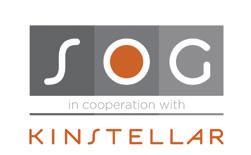

SLADARA SOUFFLET SRBIJA D.O.O.
Industrijska zona 2, 21400 Bačka Palanka
Tel: +381 21 752 910
Fax: +381 21 6042 399
Web: www.soufflet.com
Enrolment date: 2004
SOG IN COOPERATION WITH KINSTELLAR
Bulevar Mihajla Pupina 6/IV, 11070 Beograd
Tel: +381 11 3210 200
E-mail: office@sog.rs
Web: www.kinstellar.com/locations/detail/belgrade-serbia
Enrolment date: 2023
STMG CONSULTANCY D.O.O.
Nevesinjska 7, 11000 Beograd, Tel: +381 11 3535 400
E-mail: info@stmgconsultancy.com, sasa.trajkovic@ stmgconsultancy.com
Web: www.stmgconsultancy.com
Enrolment date: 2006
STRAUSS ADRIATIC D.O.O.
Miloša Obilića 41, 22310 Šimanovci
Tel: +381 22 40 80 00, Fax: +381 22 4080 67
E-mail:info@strauss-group.rs
Web: local: www.strauss-group.rs global: www.strausscoffee.com Enrolment date: 2023
TARKETT D.O.O. BAČKA PALANKA
Industrijska zona 14, 24000 Bačka Palanka
E-mail: info.tarkettdoo@tarkett.com
Web: https://www.tarkett.rs/; www.tarkett-group.com
Enrolment date: 2024
TELEKOM SRBIJA A.D. BEOGRAD

Takovska 2
11000 Beograd
E-mail: fic.telekom@telekom.rs
Web: www.telekom.rs
Enrolment date: 2007
TETRA PAK PRODUCTION D.O.O. BEOGRAD
Milutina Milankovića 9ž, sprat 2, 11070 Beograd
Tel: +381 11 2017 333
Fax:+381 11 2017 380
Web: www.tetrapak.com/en-rs
Enrolment date: 2002 Founder
THE COCA-COLA COMPANY

(BARLAN S&M D.O.O.)
Batajnički drum 18, 11080 Beograd
Tel: +381 11 3081 100 Fax: +381 11 3081 166
E-mail: jtrninic@coca-cola.com
Web: coca-cola.rs Enrolment date: 2002


THE INTERNATIONAL SCHOOL OF BELGRADE
Temišvarska 19, 11000 Beograd
Tel: +381 11 2069 999 Fax: +381 11 2069 944
E-Mail: isb@isb.rs Web: www.isb.rs
Enrolment date: 2014
TIGAR TYRES D.O.O. PIROT PREDUZEĆE ZA PROIZVODNJU GUMA
Nikole Pašića 213, 18300 Pirot
Tel: +381 10 2157 000 E-mail: office.serbia@michelin.com
Web: www.michelin.rs
Enrolment date: 2009
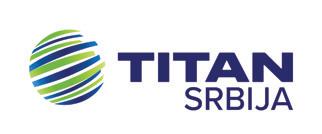
TITAN CEMENTARA KOSJERIĆ
Živojina Mišića 50, 31260 Kosjerić
Tel: +381 31 590 300
E-mail: cemkos@titan.rs
Web: www.titan.rs
Enrolment date: 2004
TOYO TIRE SERBIA D.O.O. INĐIJA
Industrijska 3 no. 5, 22320 Inđija
Tel: +381 66 8087 898
E-mail: nevena.lestaric@toyotires.rs
Web: TOYO TIRES – Srbija
Enrolment date: 2021







TRACE GROUP HOLD PLC OGRANAK BEOGRAD
Kneza Miloša 9/V, 11000 Beograd
Tel: +38118 517000
Web: www.tracebg.com
Enrolment date: 2023
UNICREDIT BANK SRBIJA JSC
Rajićeva 27-29, 11000 Beograd Jurija Gagarina 12, Belgrade Business Center 11070 Beograd
Tel: +381 11 3777 888 E-mail: kontakt@unicreditbank.rs
Web: www.unicreditbank.rs
Enrolment date: 2013 Founder
UNIFIEDPOST SOLUTIONS D.O.O.
Tošin bunar 185, 11070 Beograd
Tel: +381 11 7150 748
E-mail: office.rs@unifiedpost.com
Web: www.unifiedpost.rs
Enrolment date: 2019
VP LAW FIRM
Teodora Drajzera 34, 11000 Beograd
Tel: +381 11 2642 257
E-mail: info@vp.rs
Web: www.vp.rs Enrolment date: 2023
WEST PHARMACEUTICAL SERVICES BEOGRAD
D.O.O.
Crvenka 76, 26220 Kovin
Tel: +381 13 2156 101
E-mail: kovin.office@westpharma.com
Web: www.westpharma.com Enrolment date: 2020
WIENER STÄDTISCHE OSIGURANJE A.D.O. BEOGRAD
Trešnjinog cveta 1, 11070 Beograd
Tel: 0800 200 800; +381 11 220 9800
E-mail: office@wiener.co.rs
Web: www.wiener.co.rs Enrolment date: 2003
YAZAKI SERBIA
Nova 7 bb, 15000 Sabac
Tel: +381 15 7195 241
E-mail: Ysd.Office@yazaki-europe.com
Web global: www.yazaki-europe.com
Enrolment date: 2022
YETTEL BANK A.D. BEOGRAD
Omladinskih brigada 88, 11070 Beograd Korisnički servis: 063 9005
E-mail: officebanka@yettelbank.rs; banka@yettelbank.rs Web: www.yettelbank.rs
Enrolment date: 2015

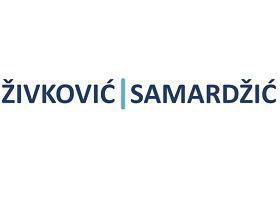
YETTEL D.O.O. Omladinskih brigada 90 11073 Beograd
Mob: +381 63 9000
Web: www.yettel.rs Enrolment date: 2006
ZIVKOVIC SAMARDZIC A.O.D. BEOGRAD
Makedonska 30, 11000 Beograd
Tel: +381 11 2636 636 Fax: +381 11 2635 555
E-mail: office@zslaw.rs
Web: www.zslaw.rs Enrolment date: 2011

